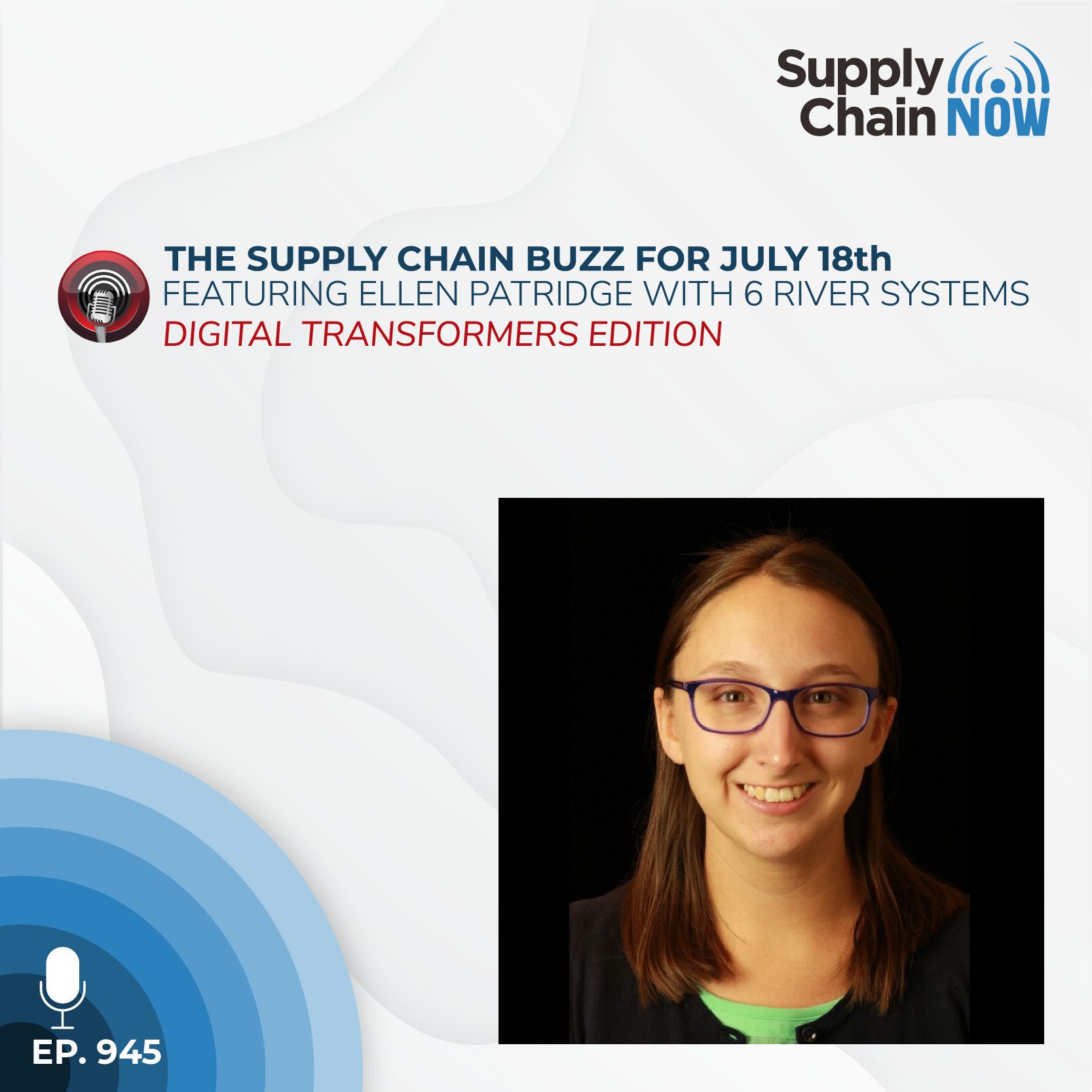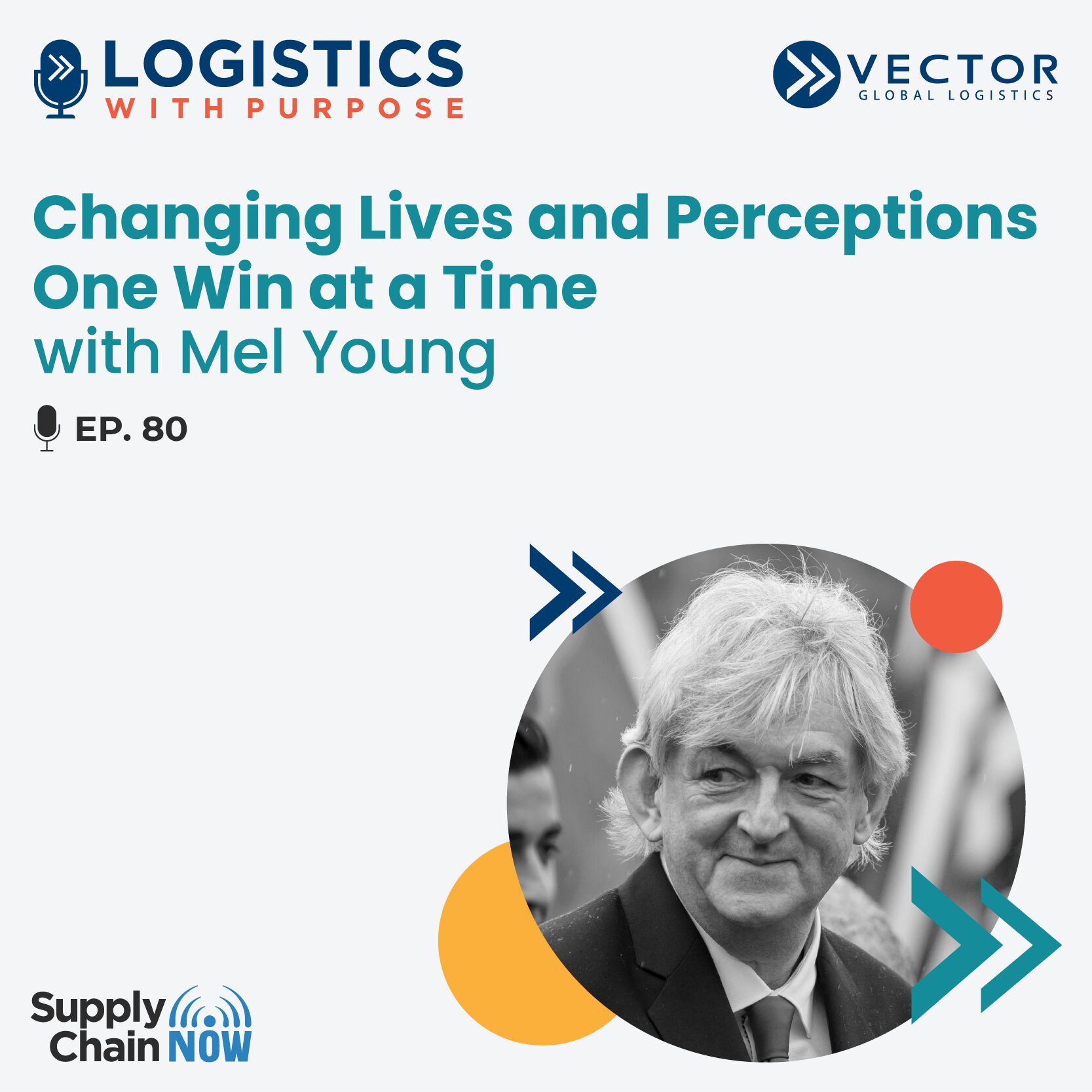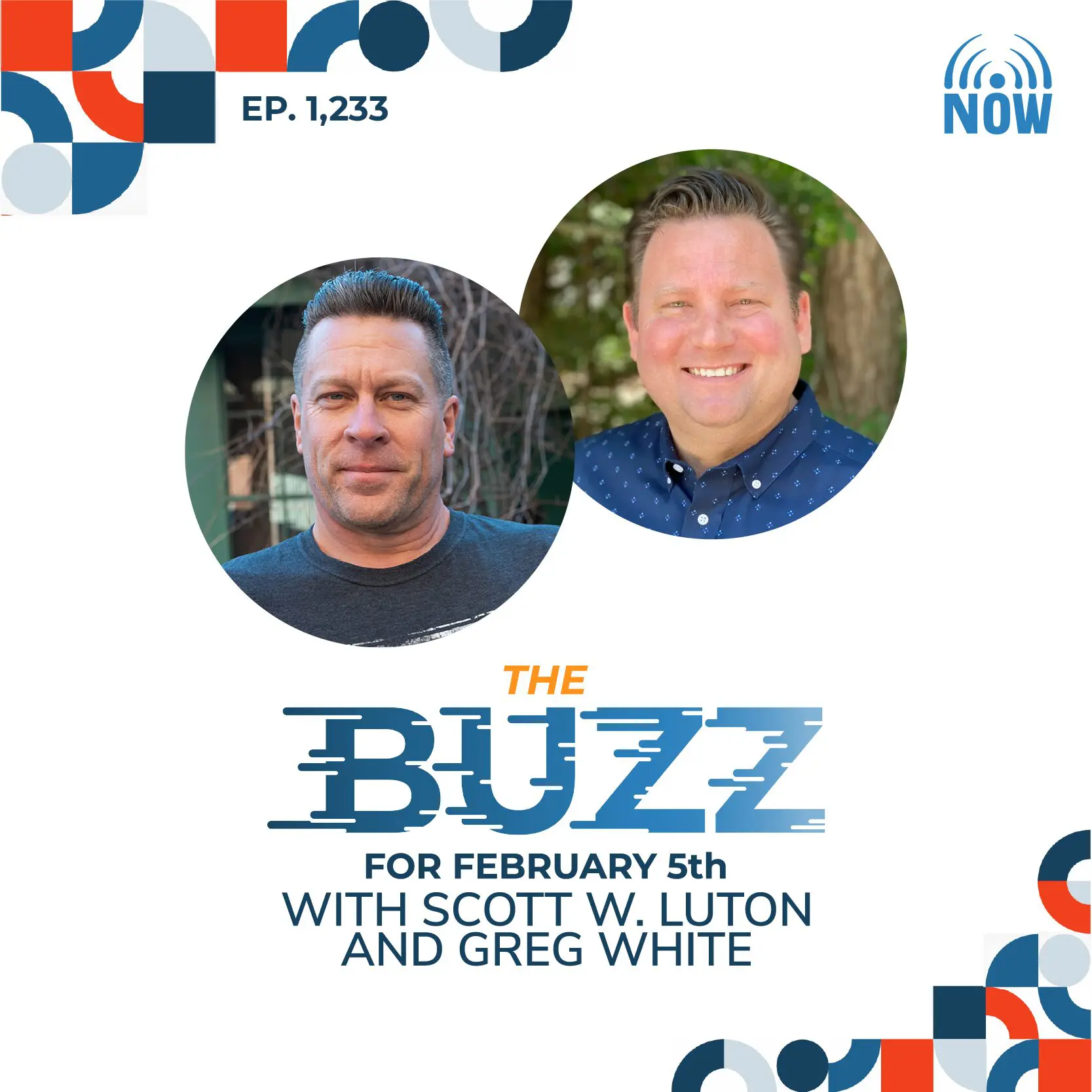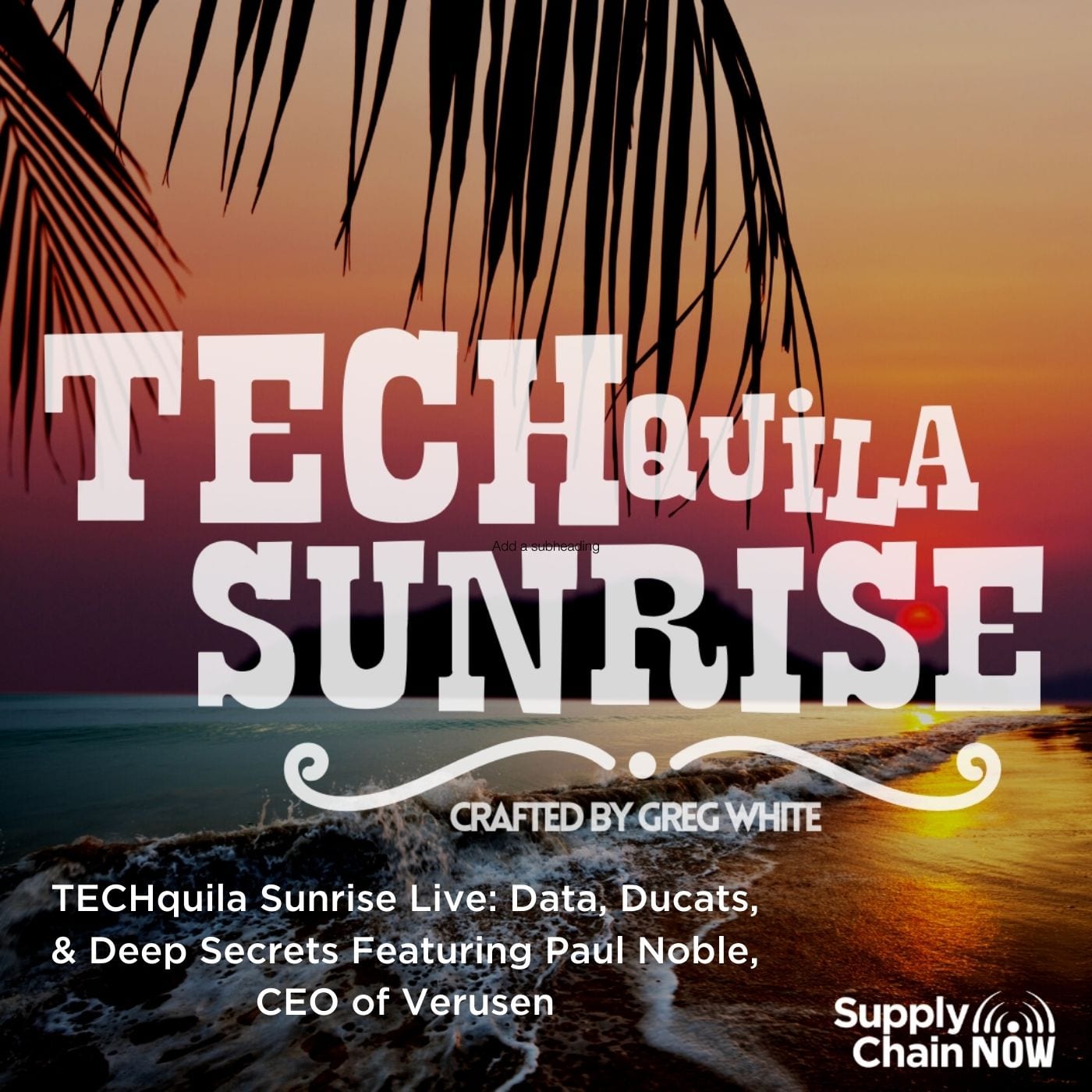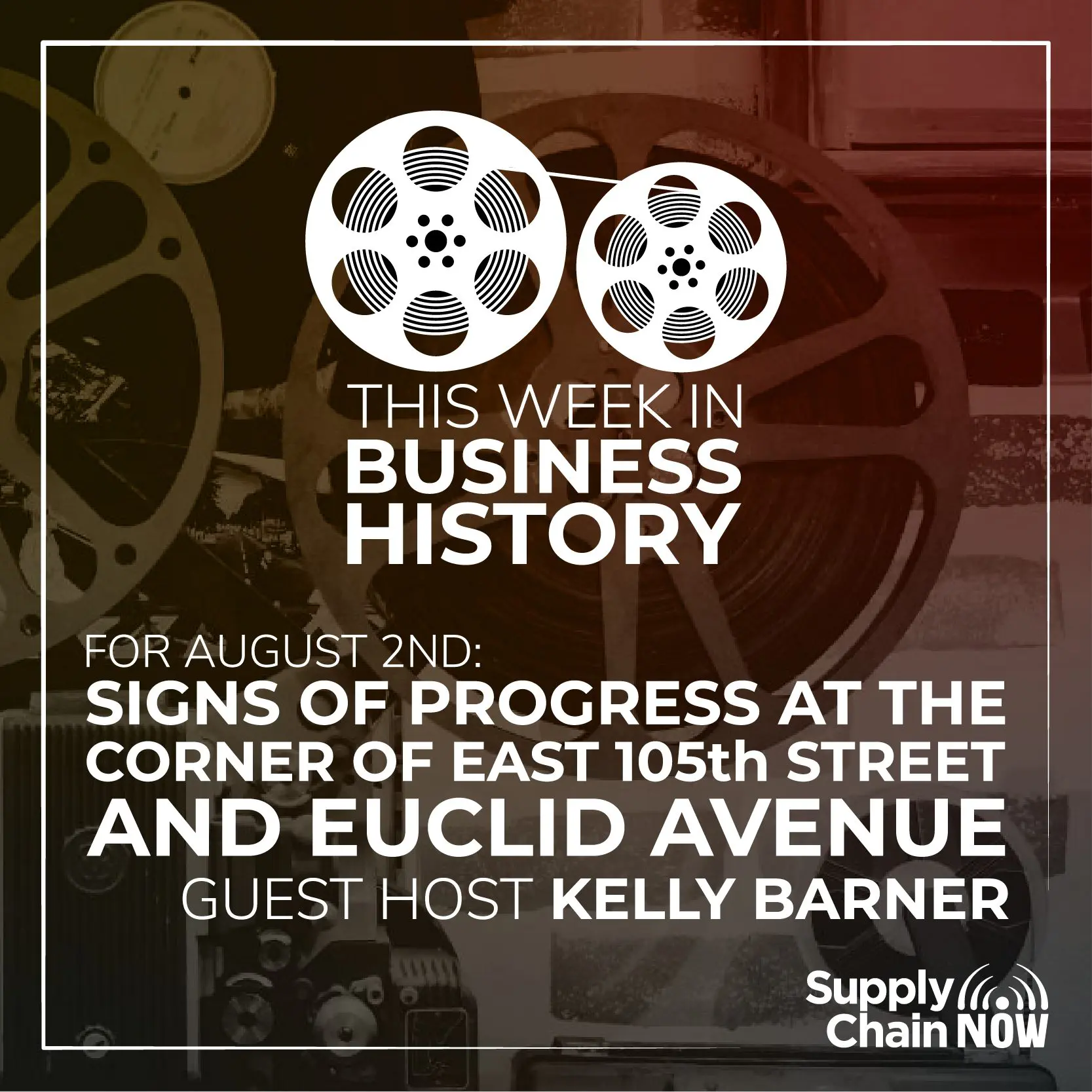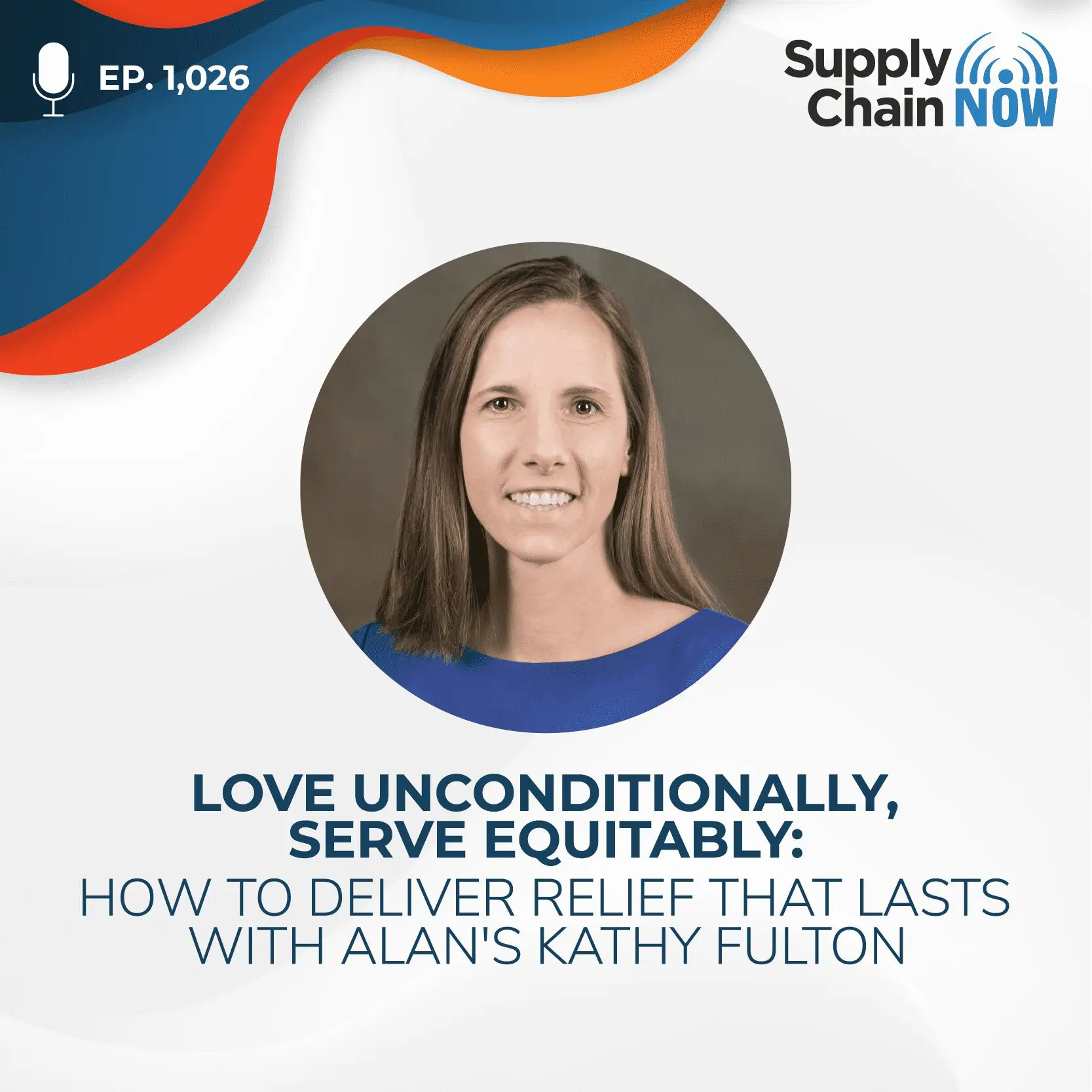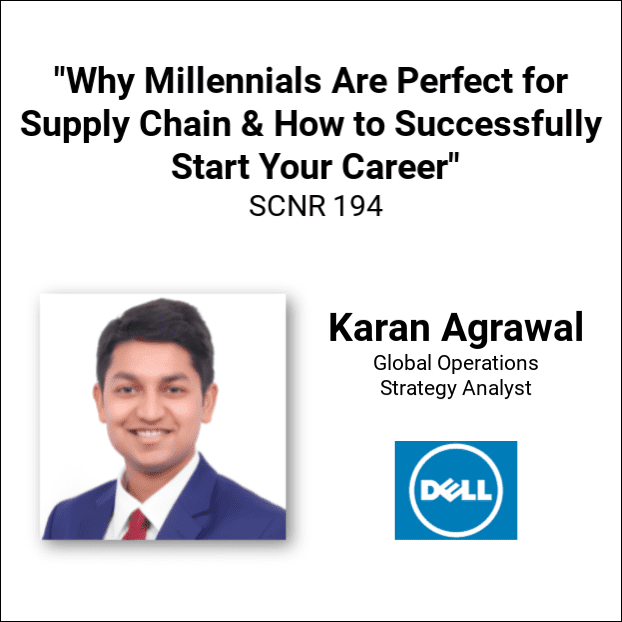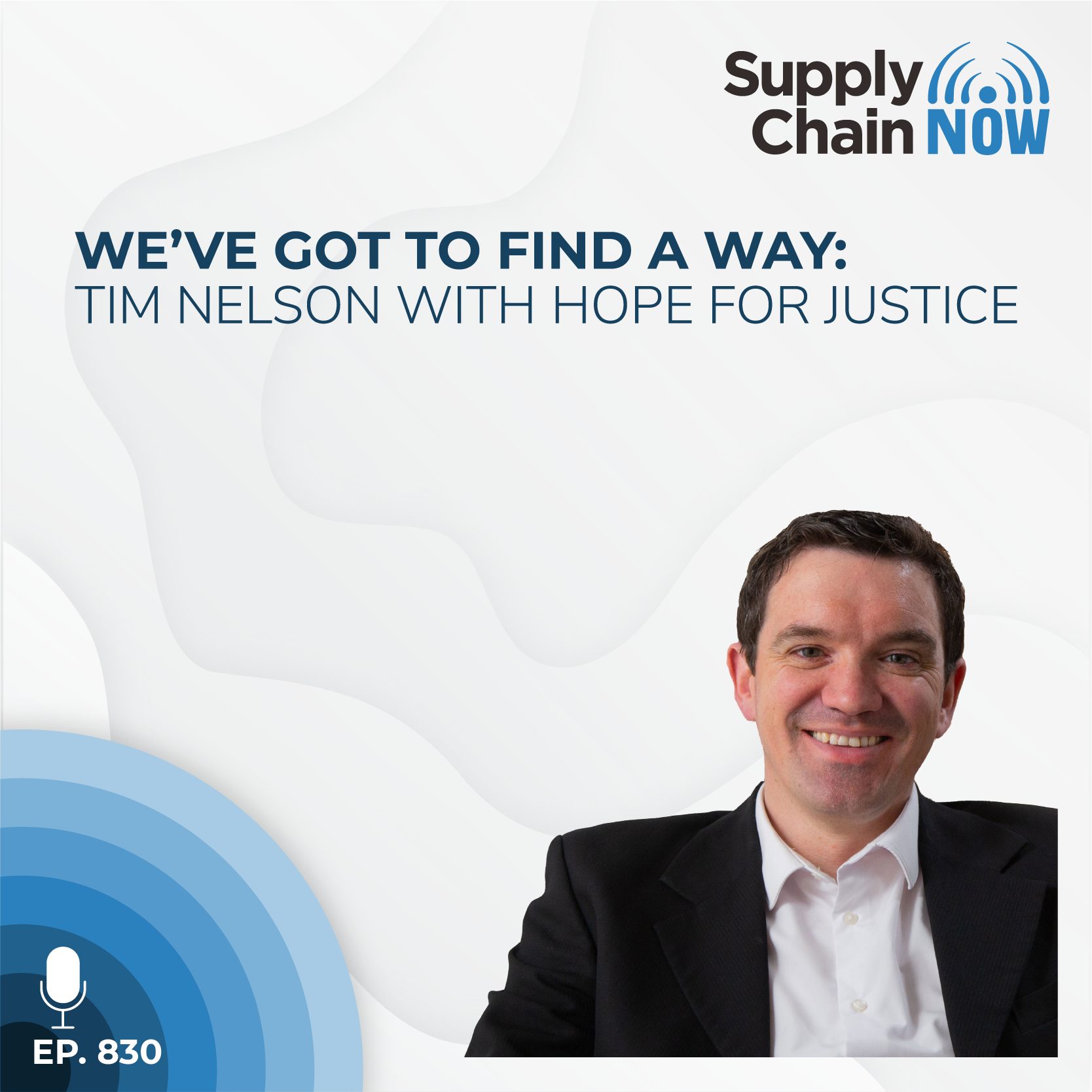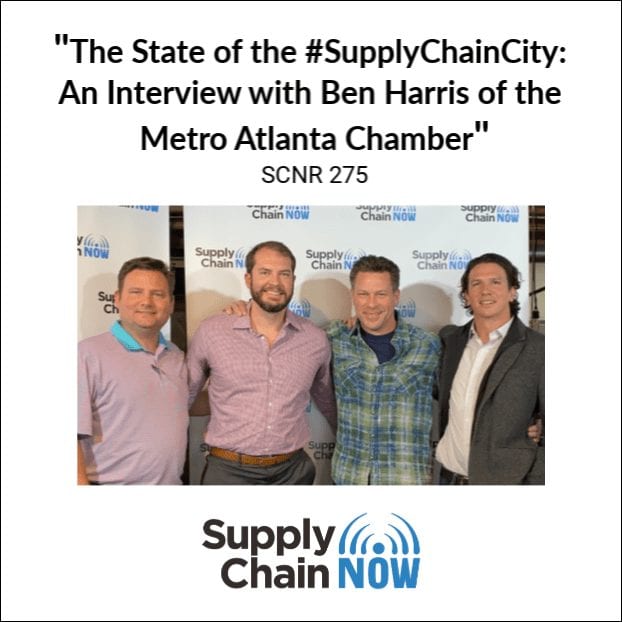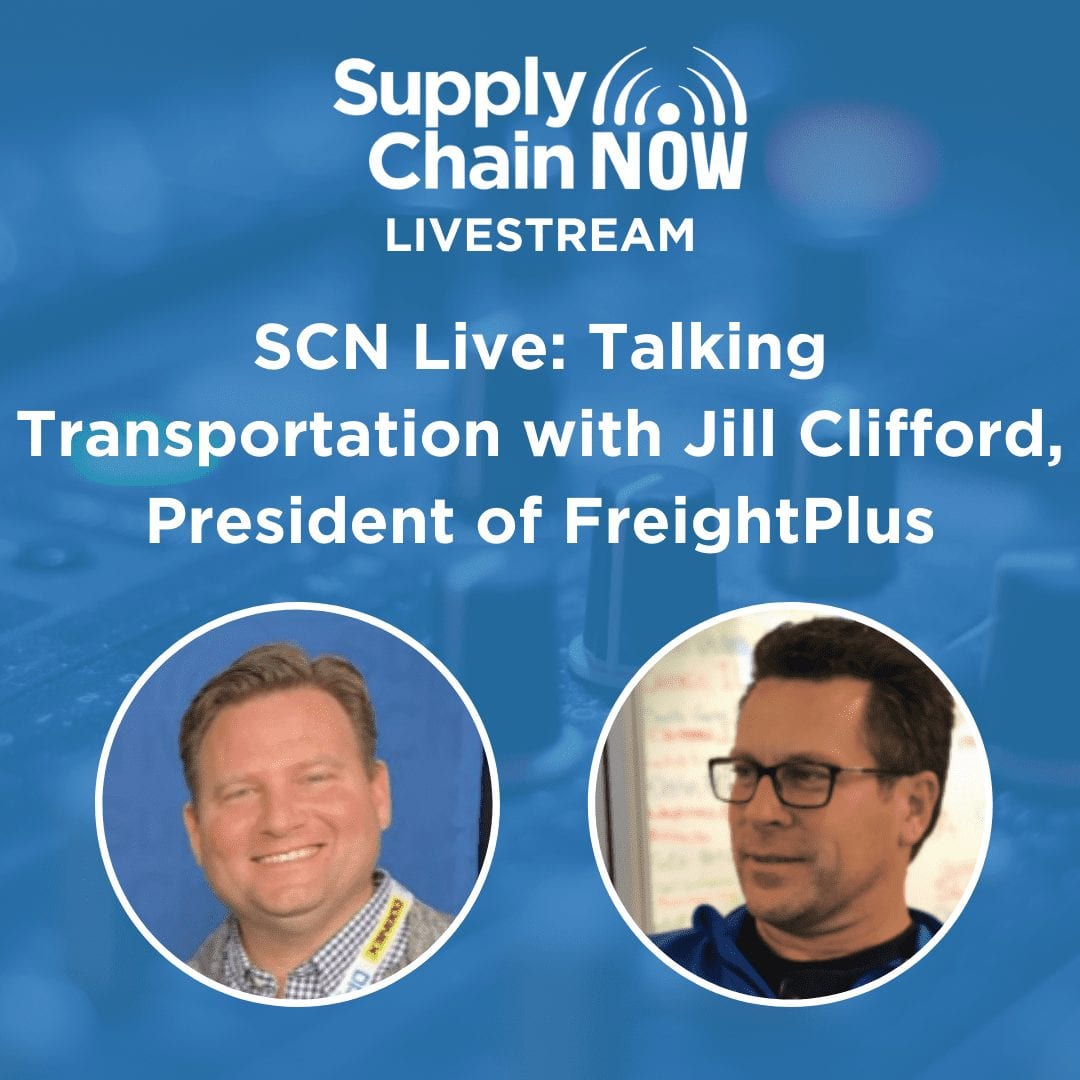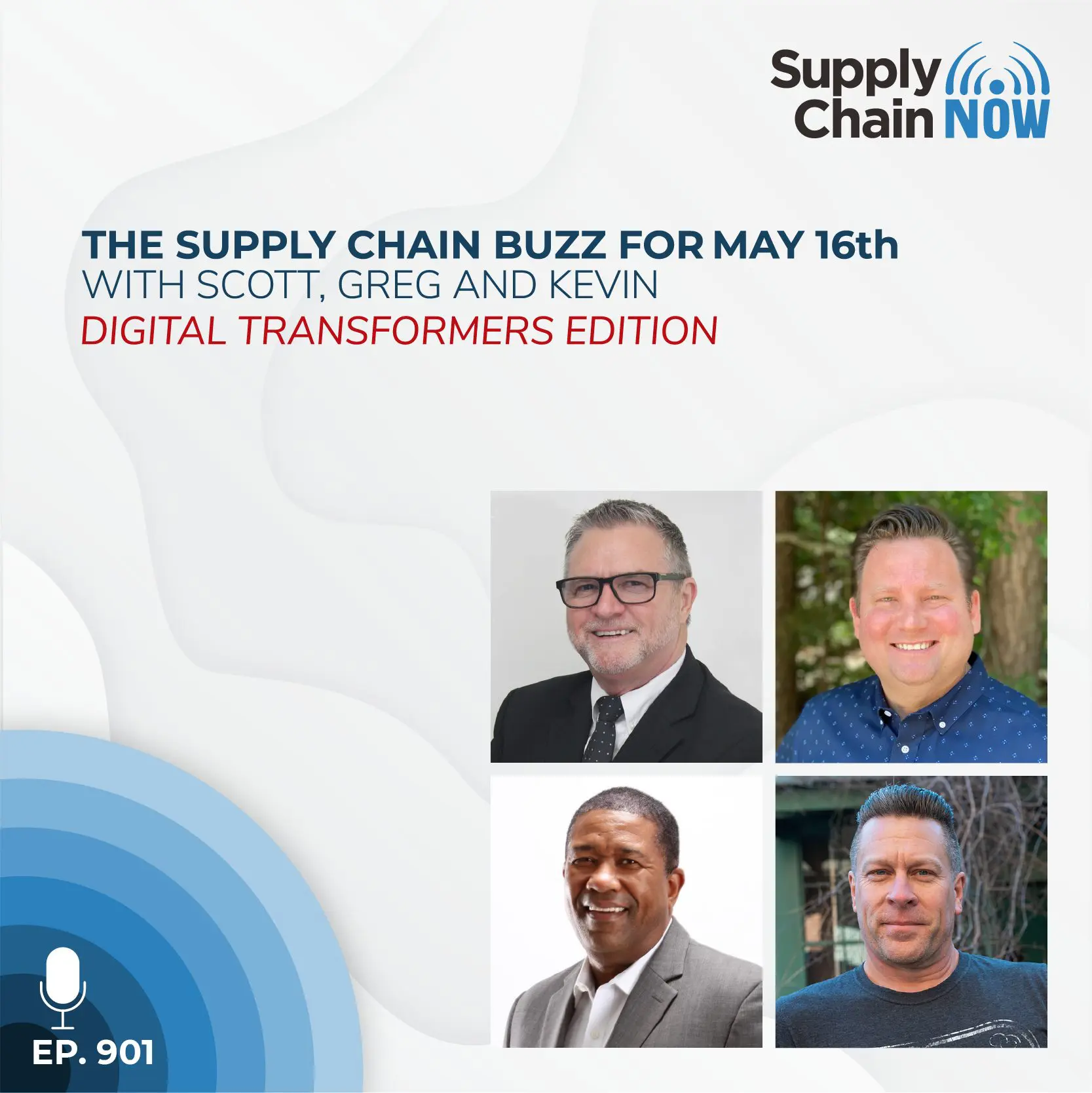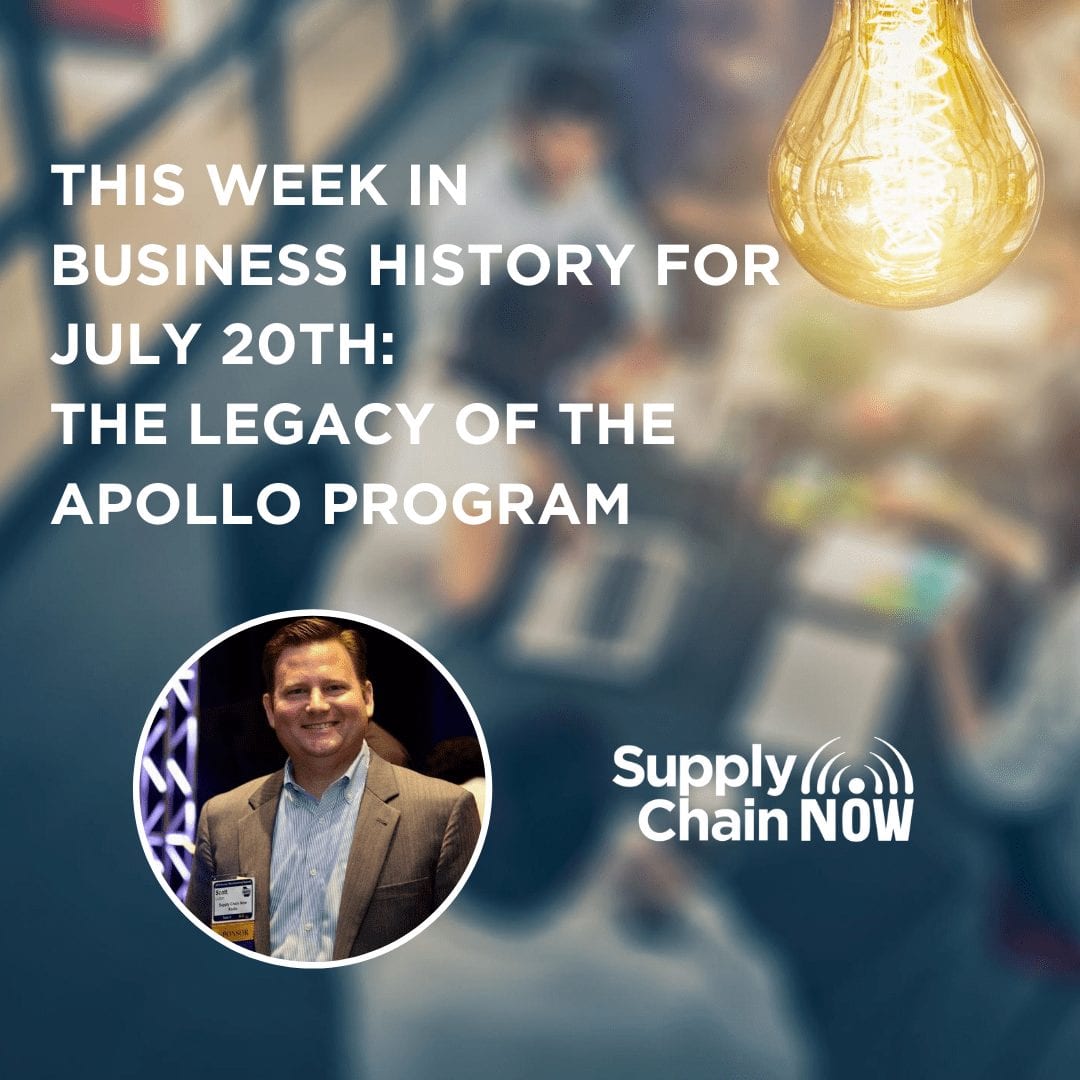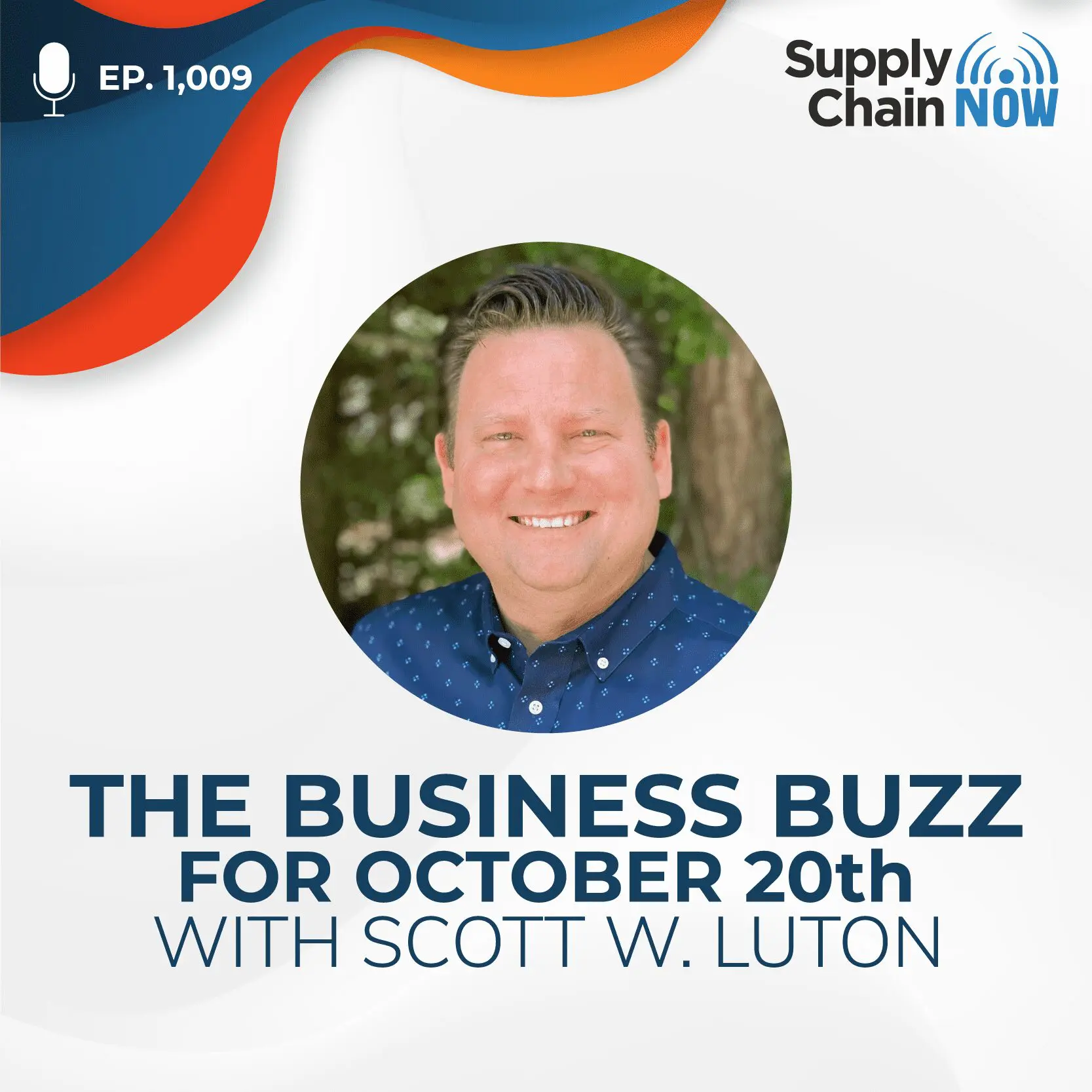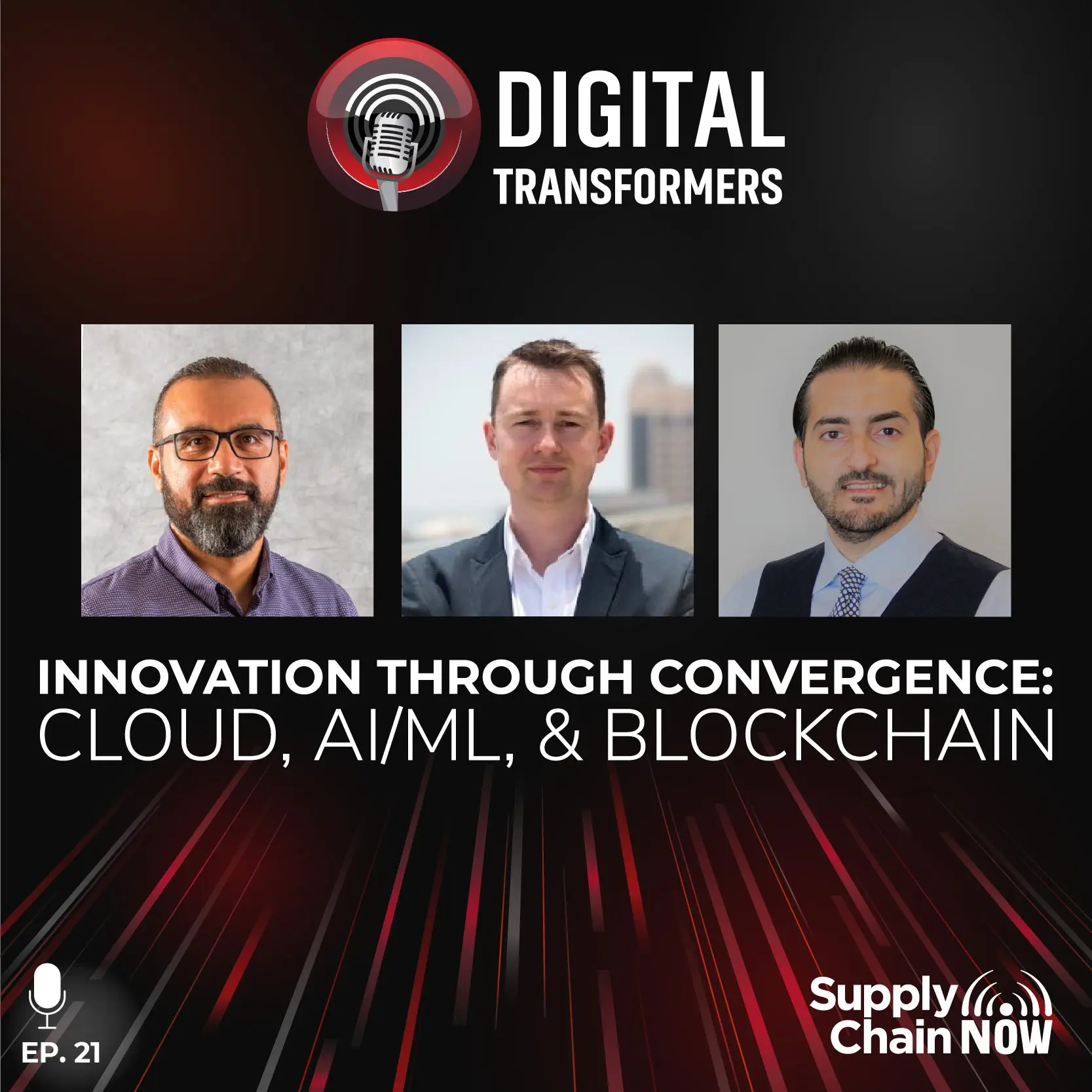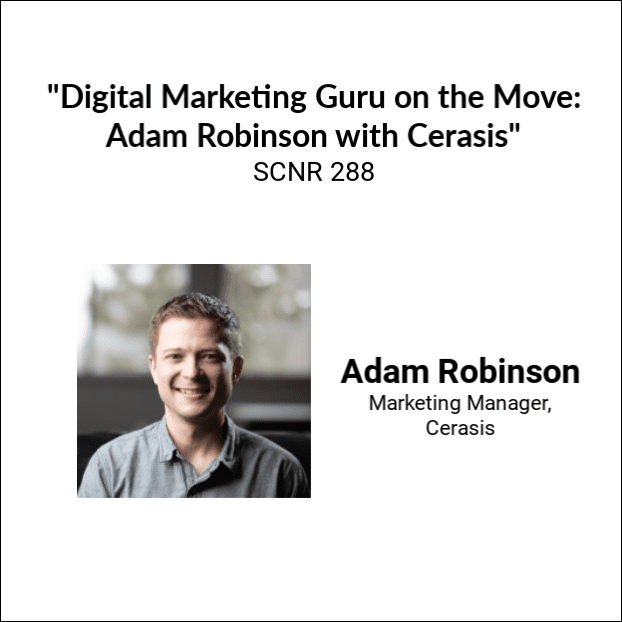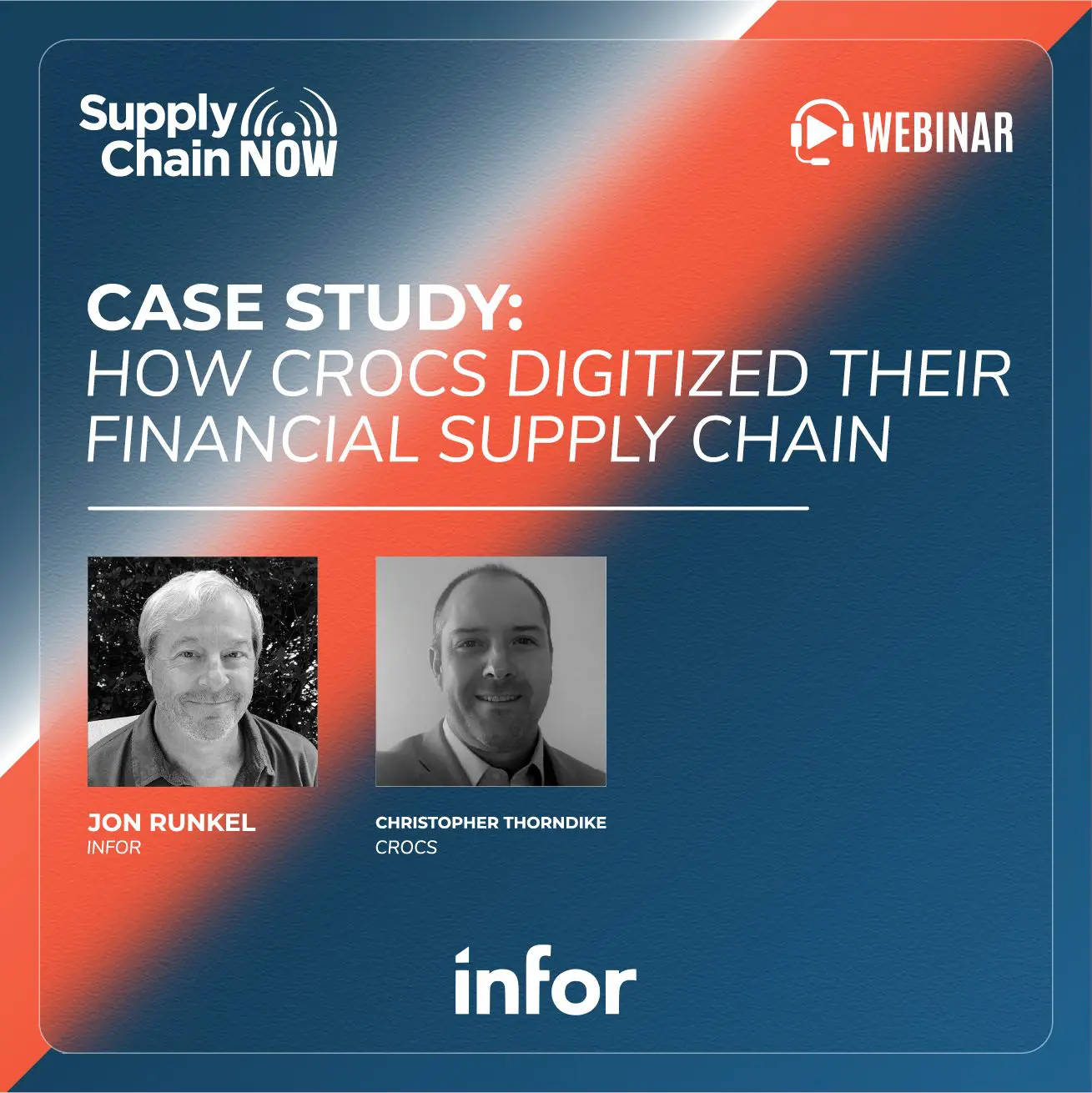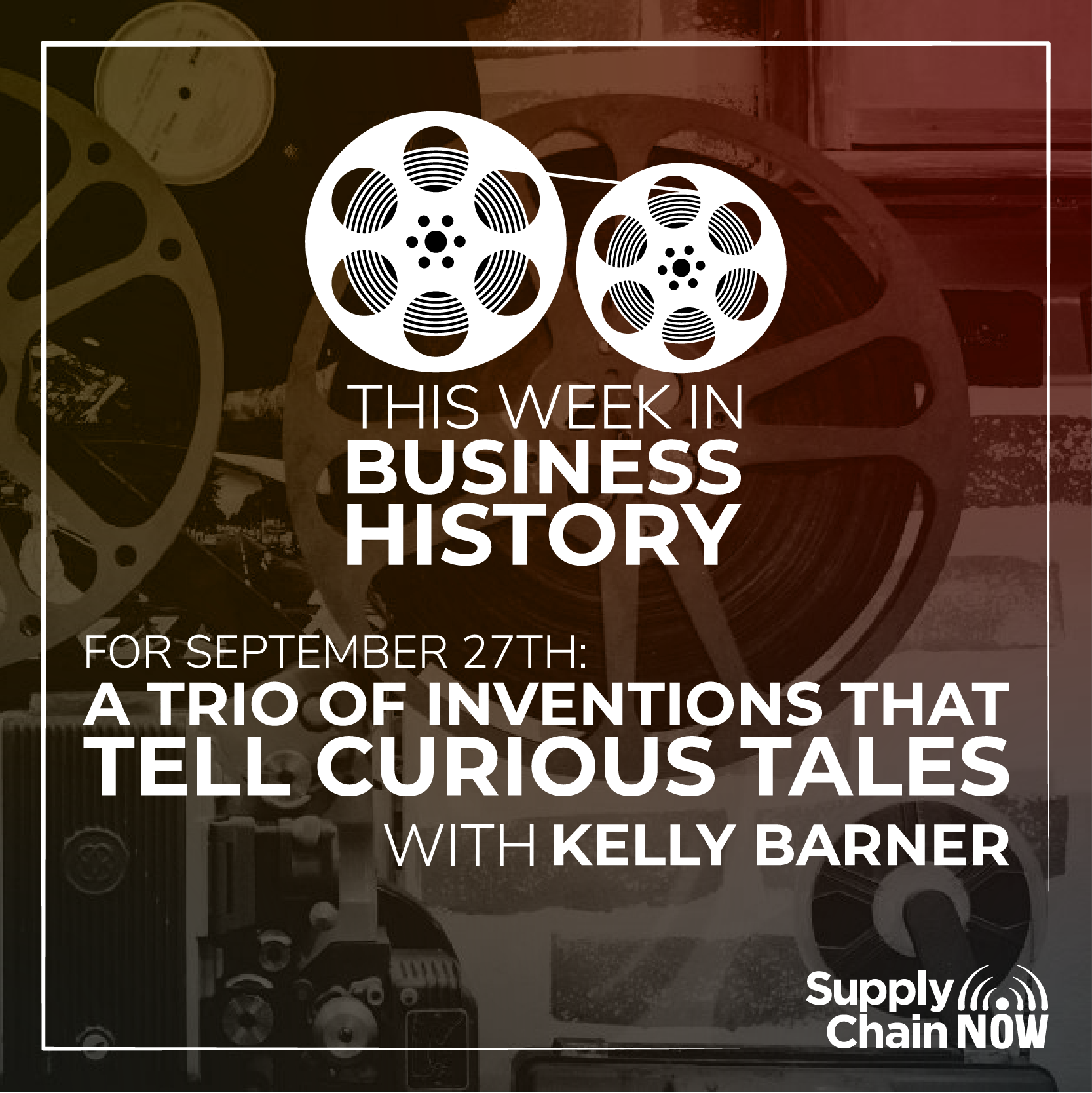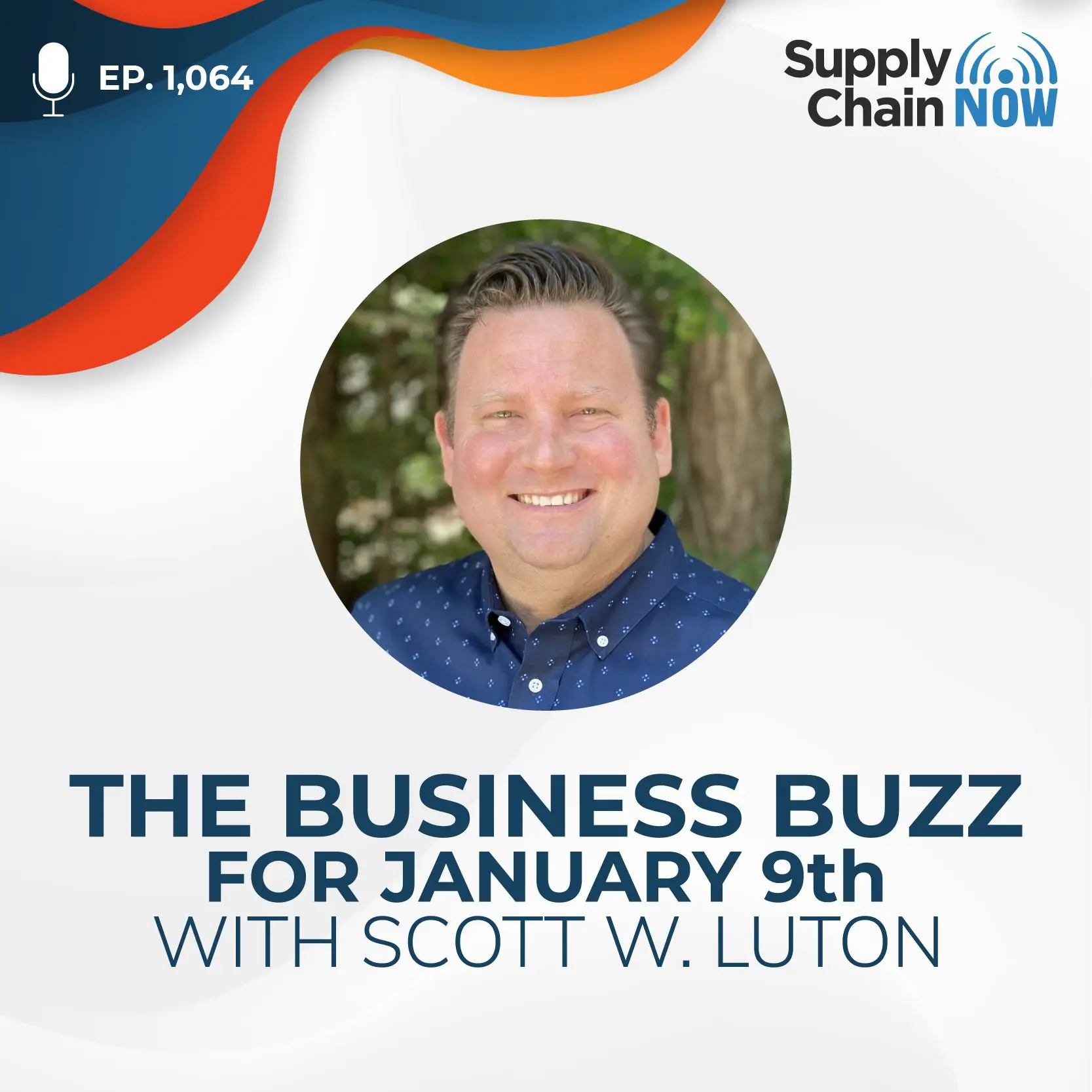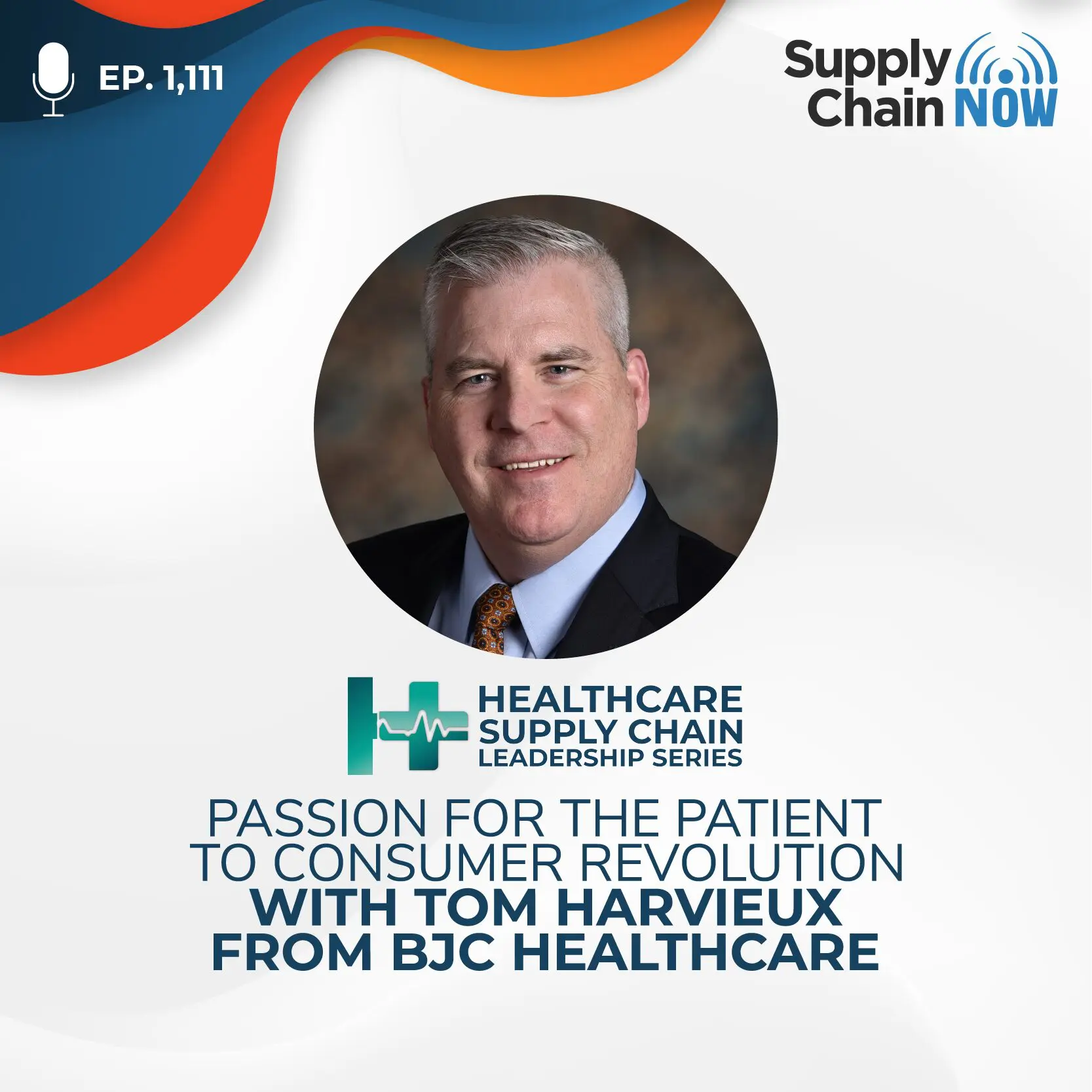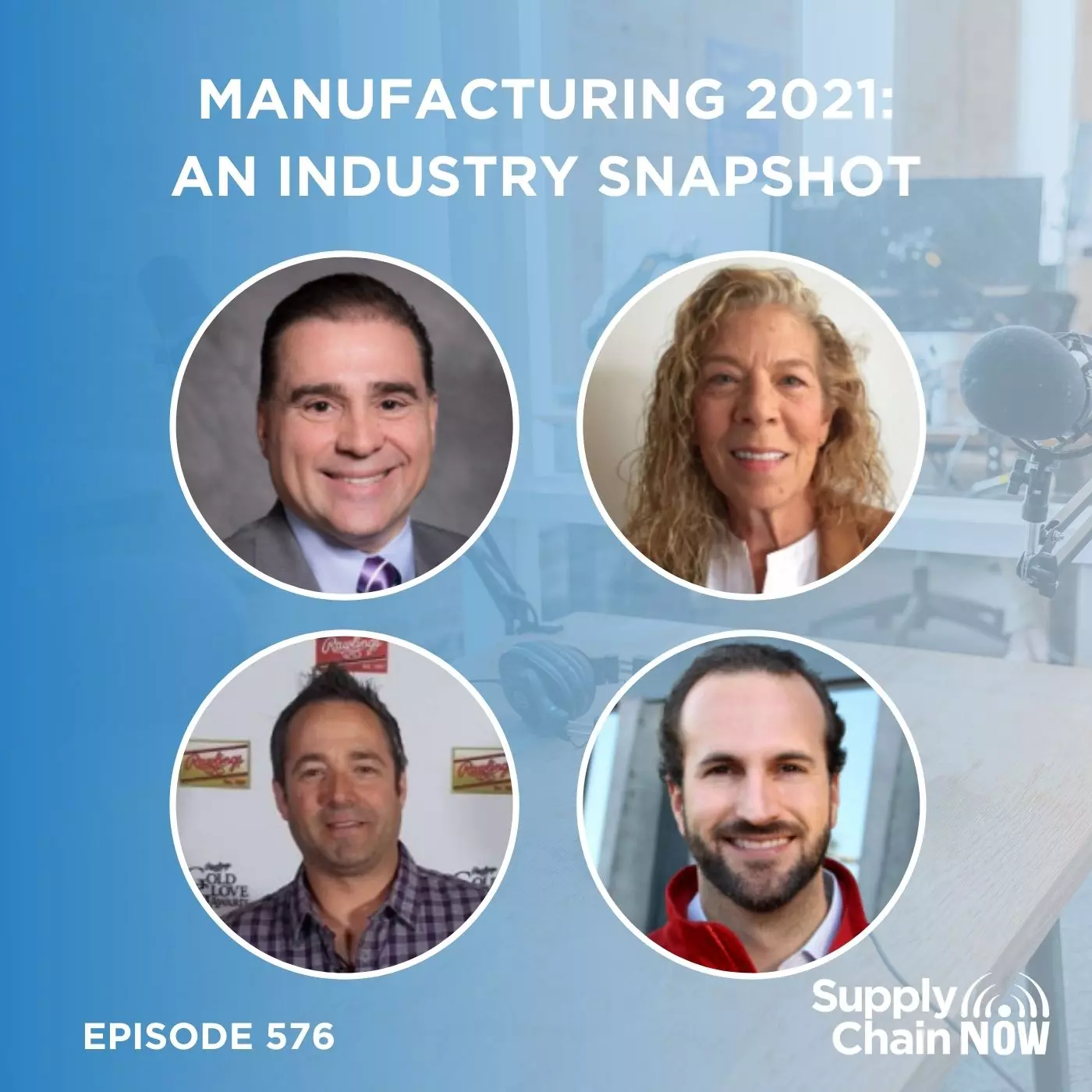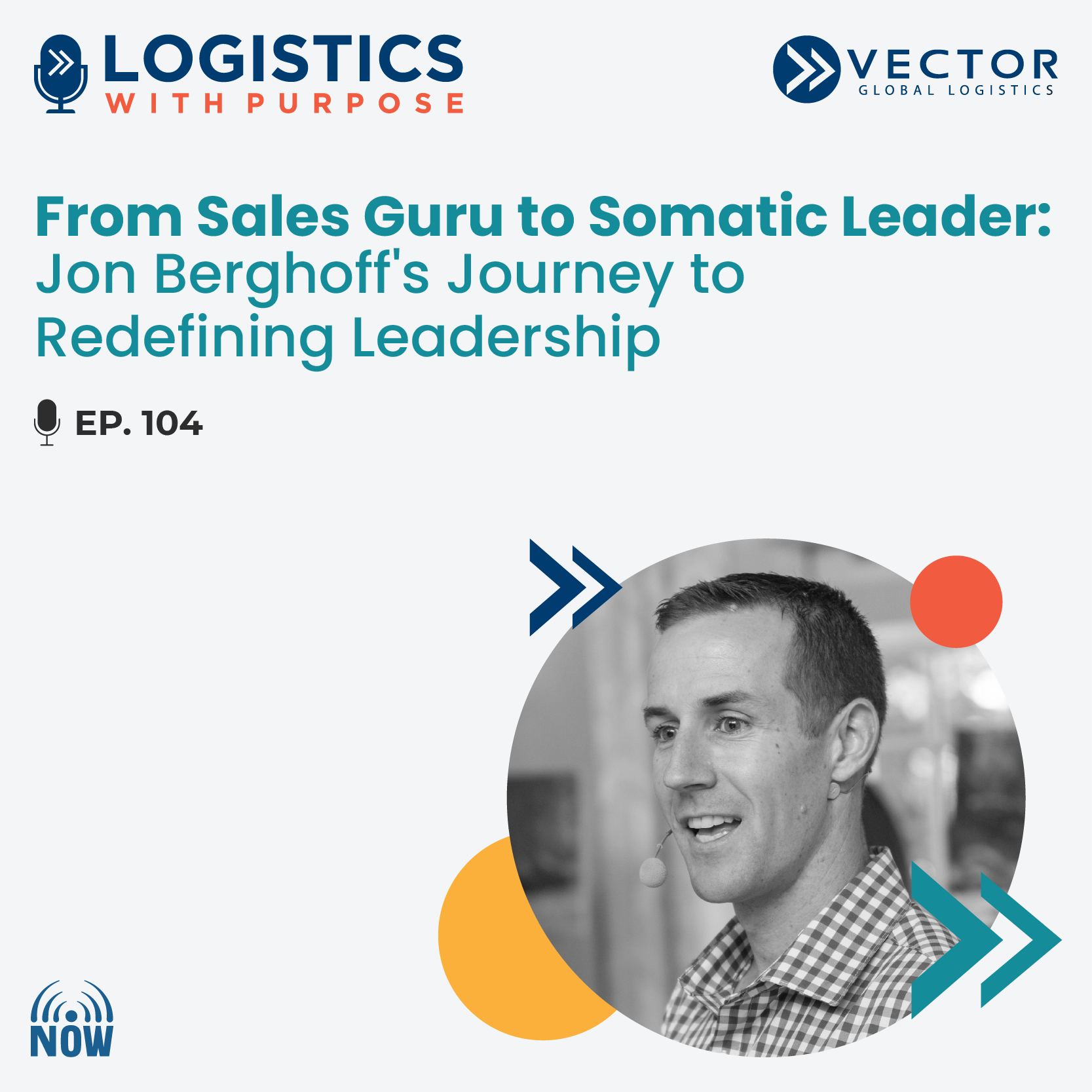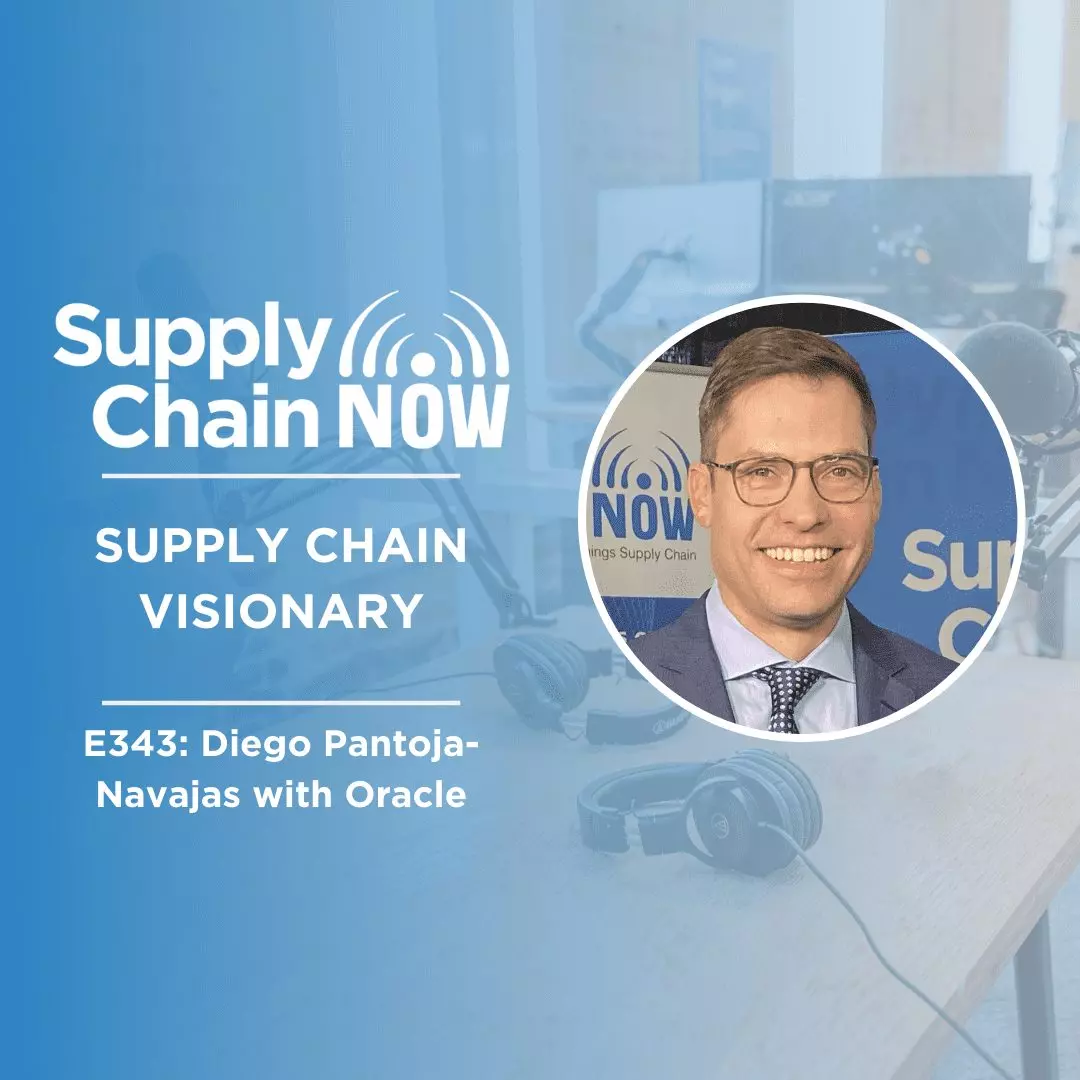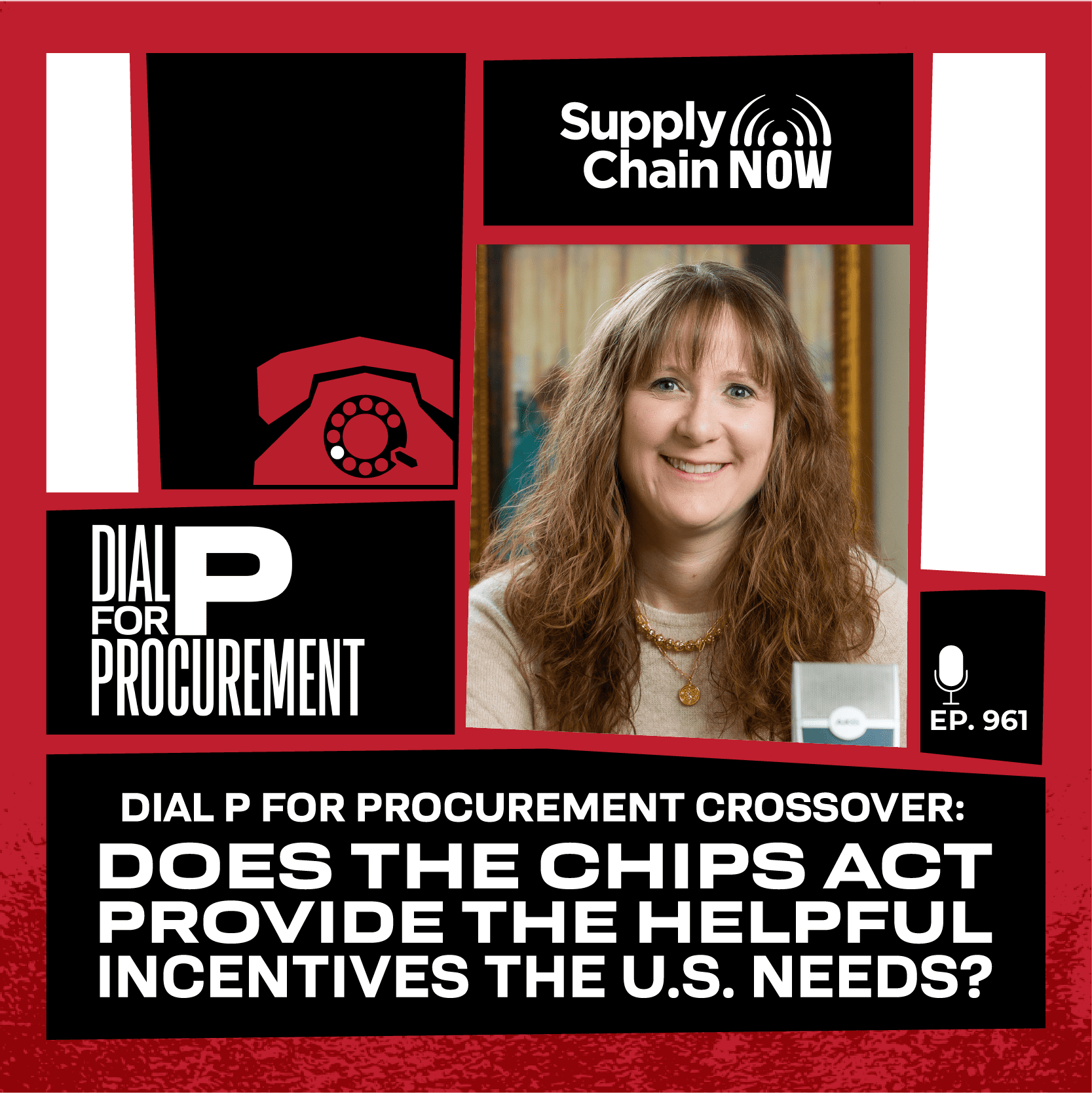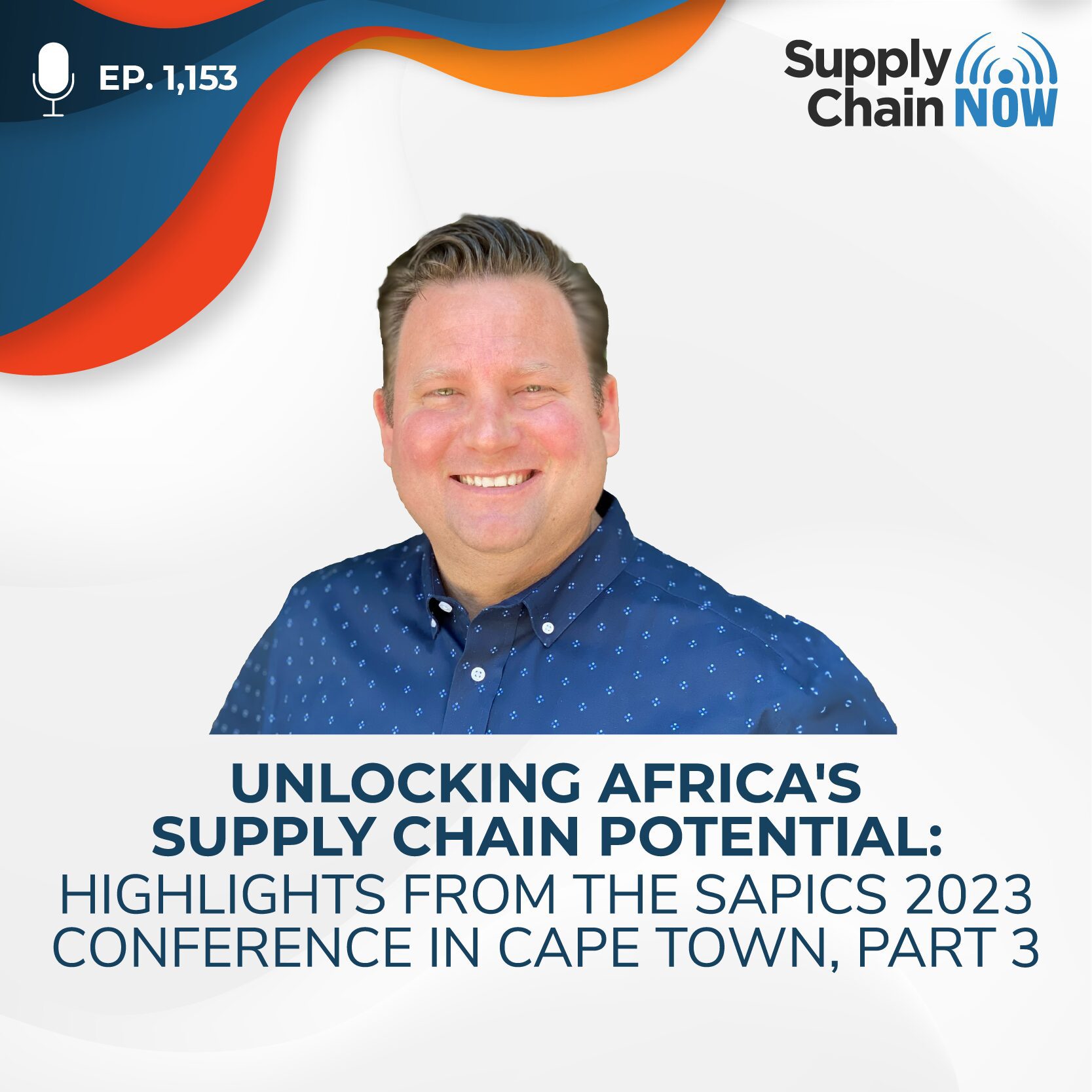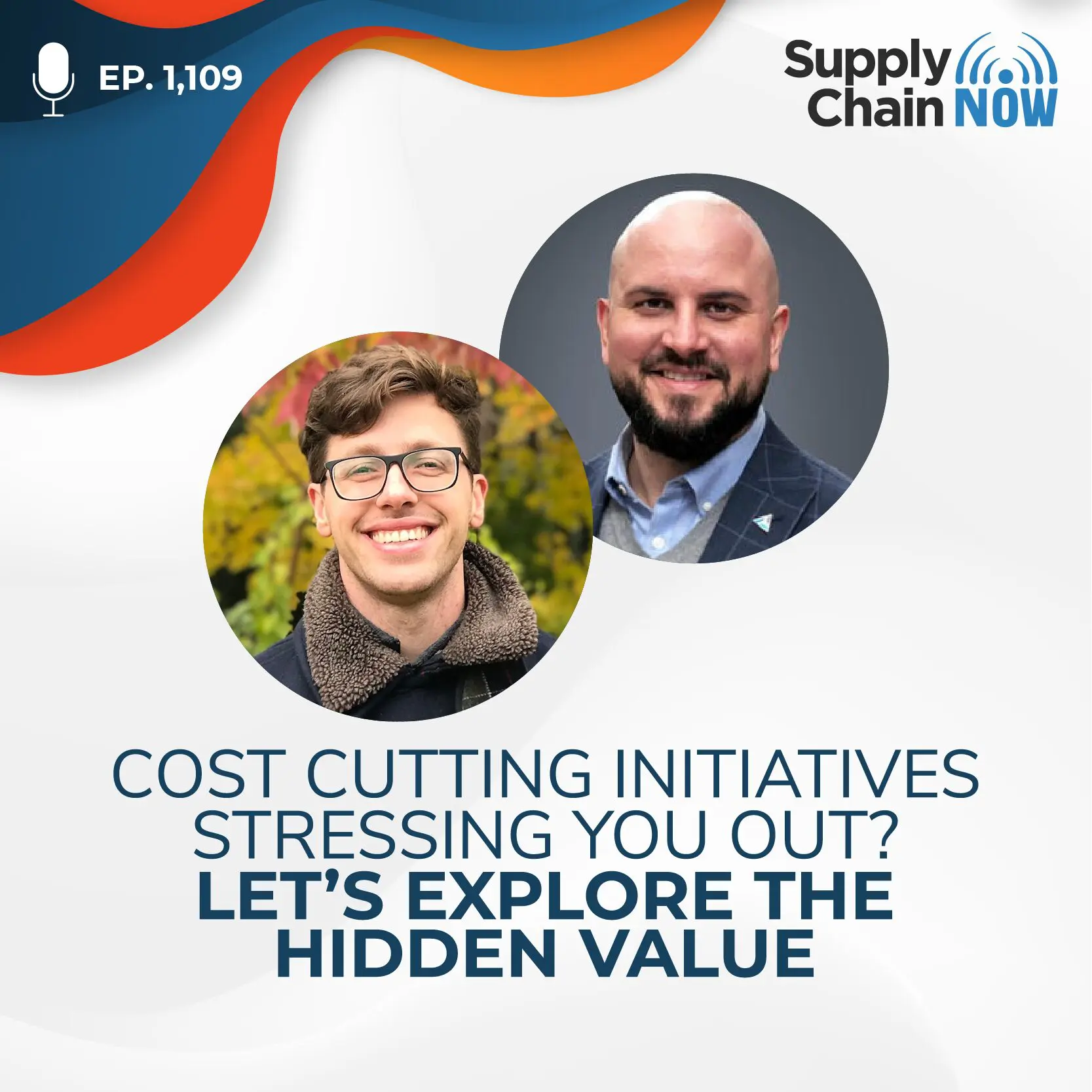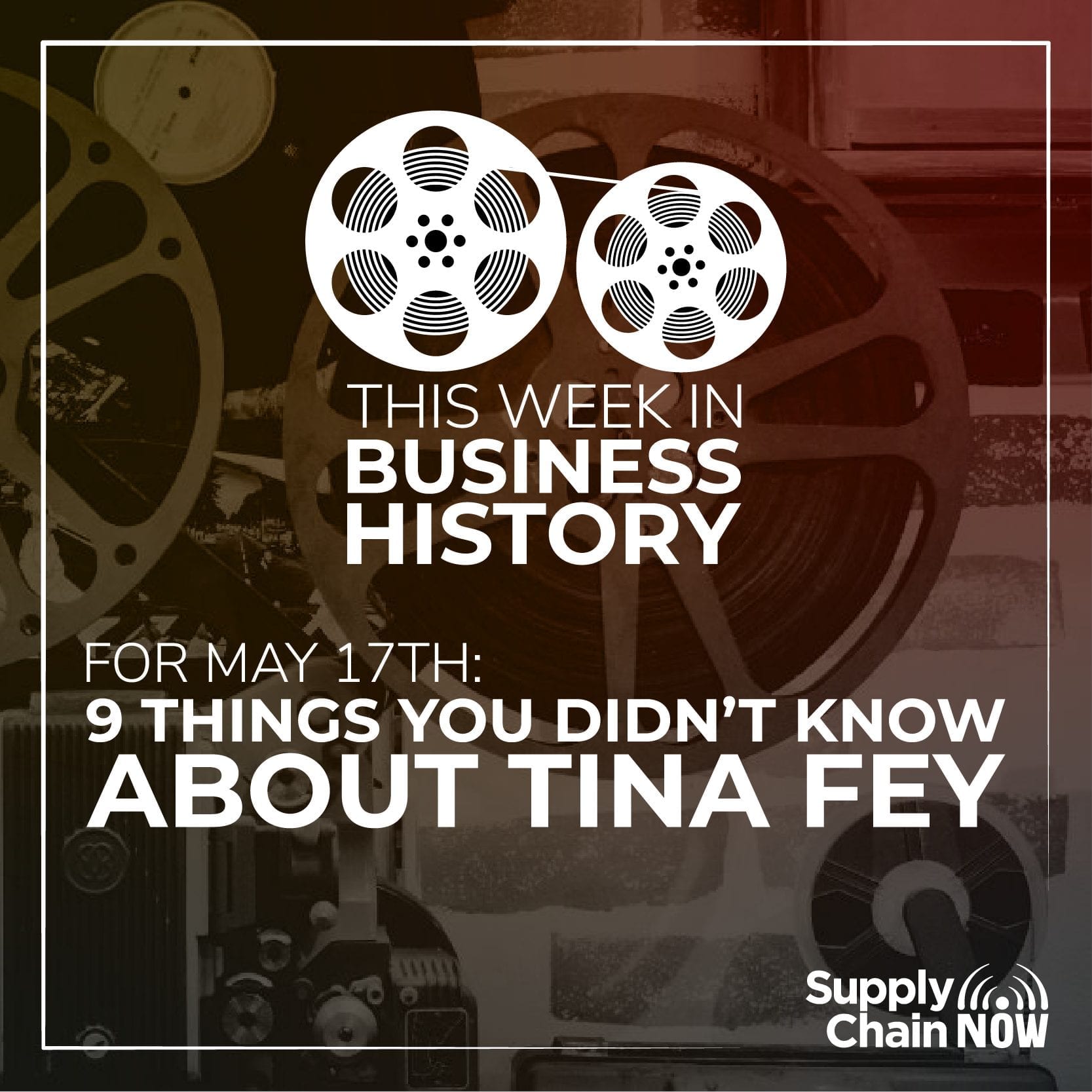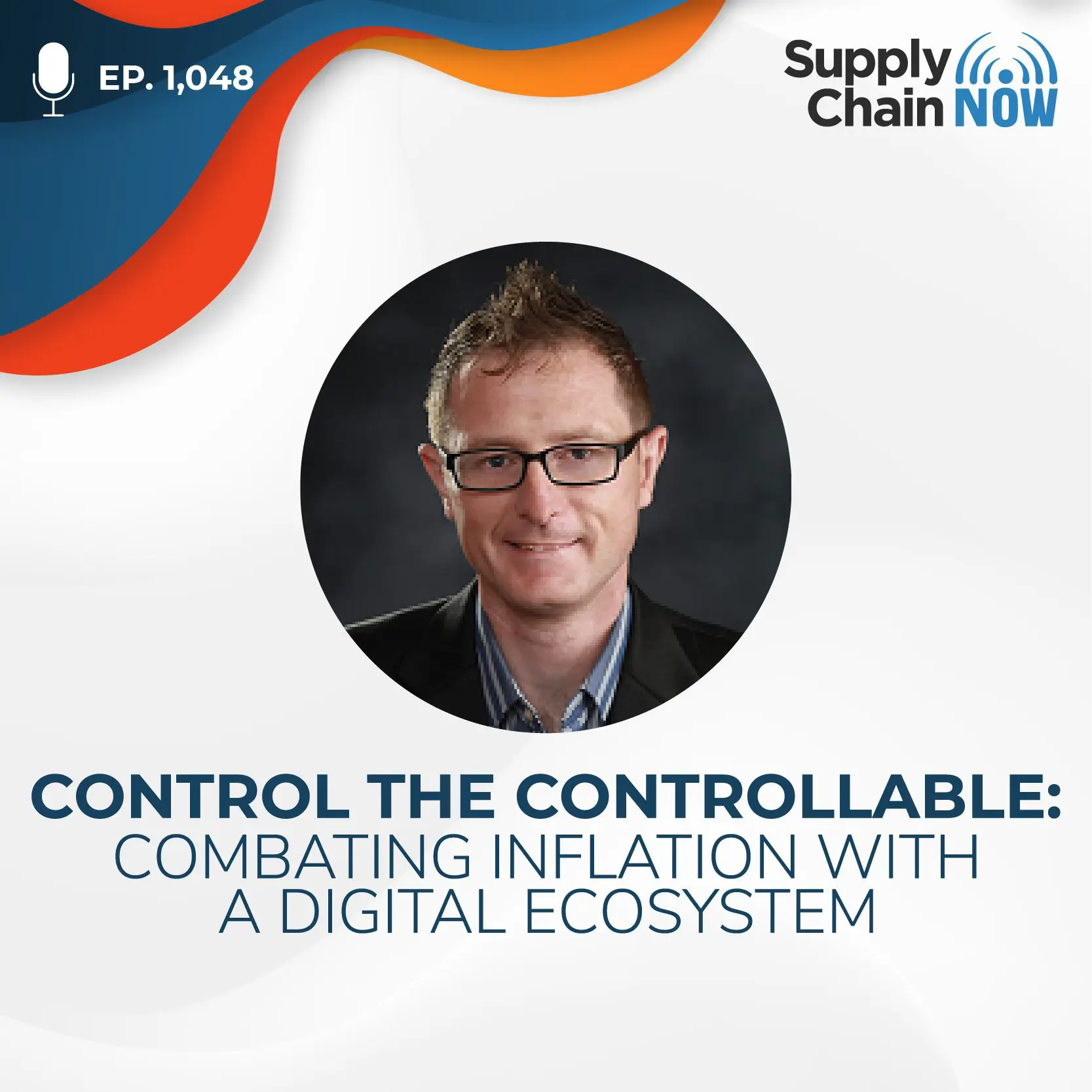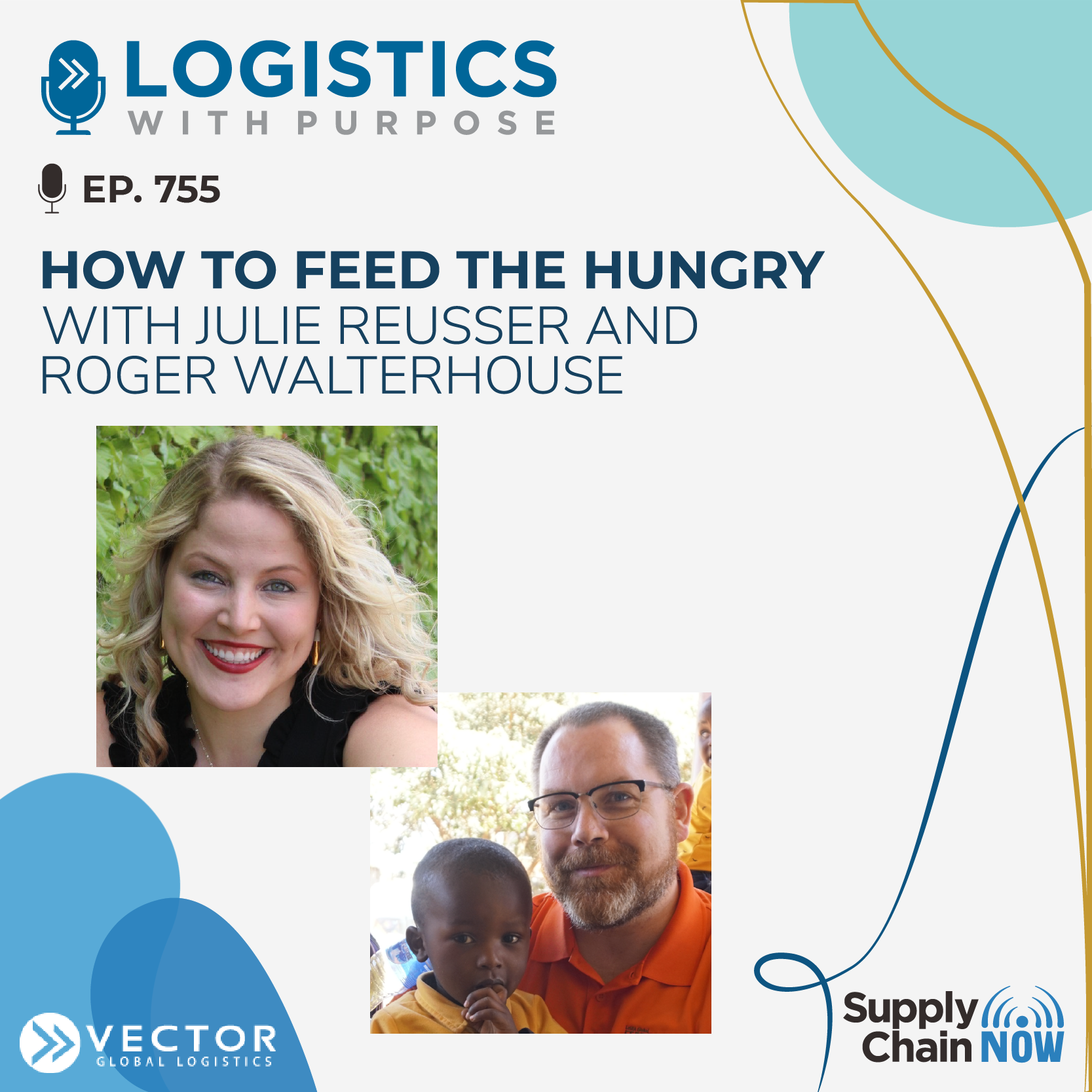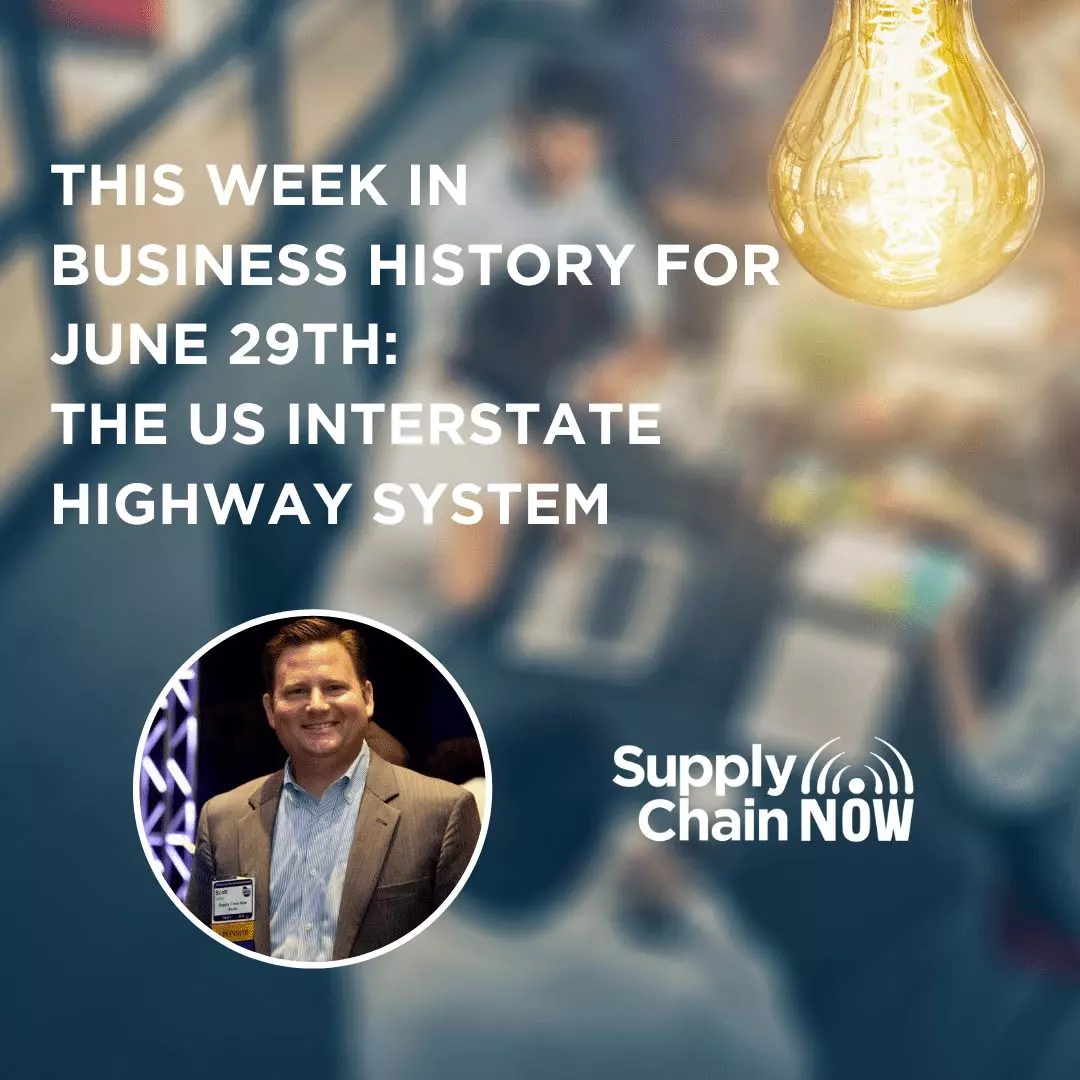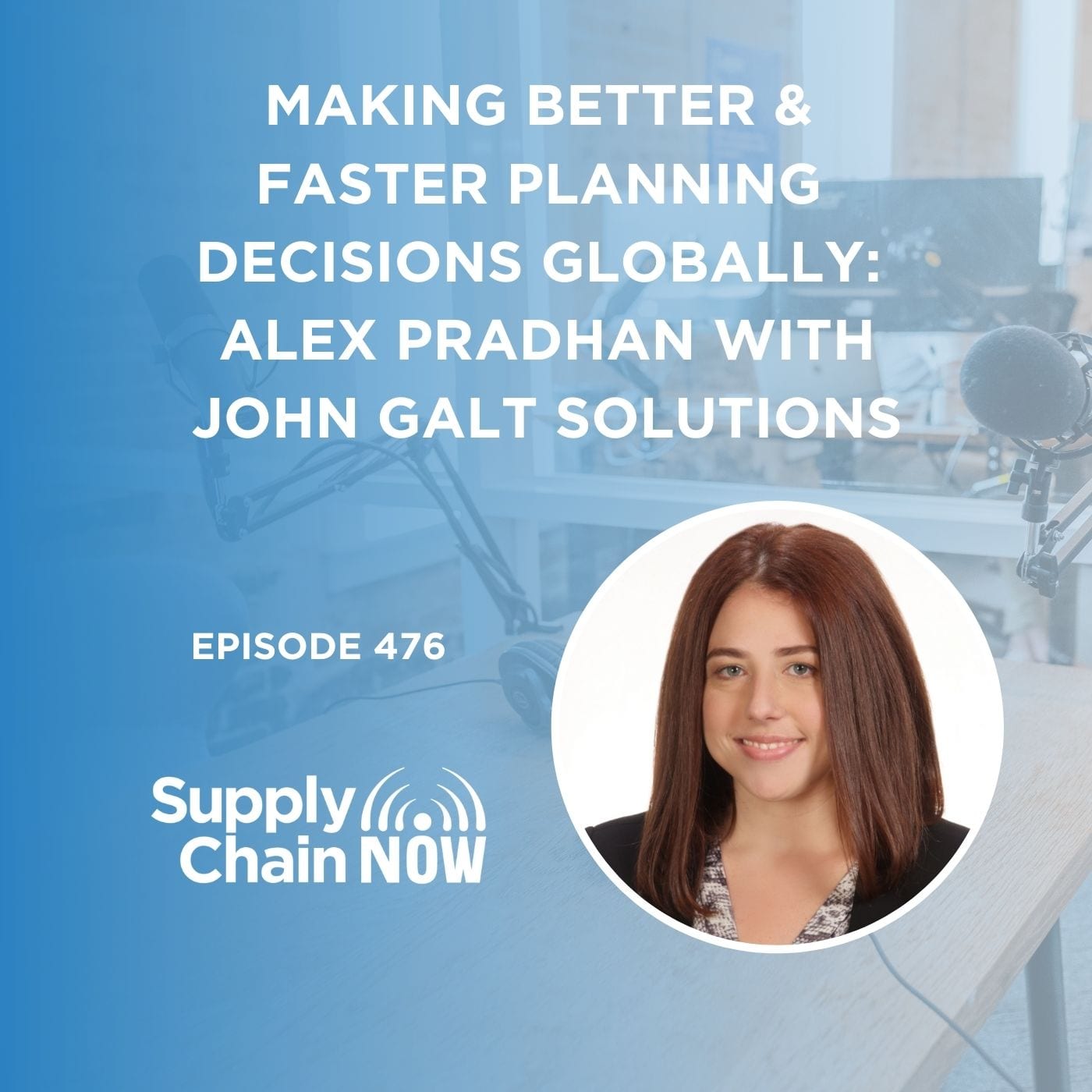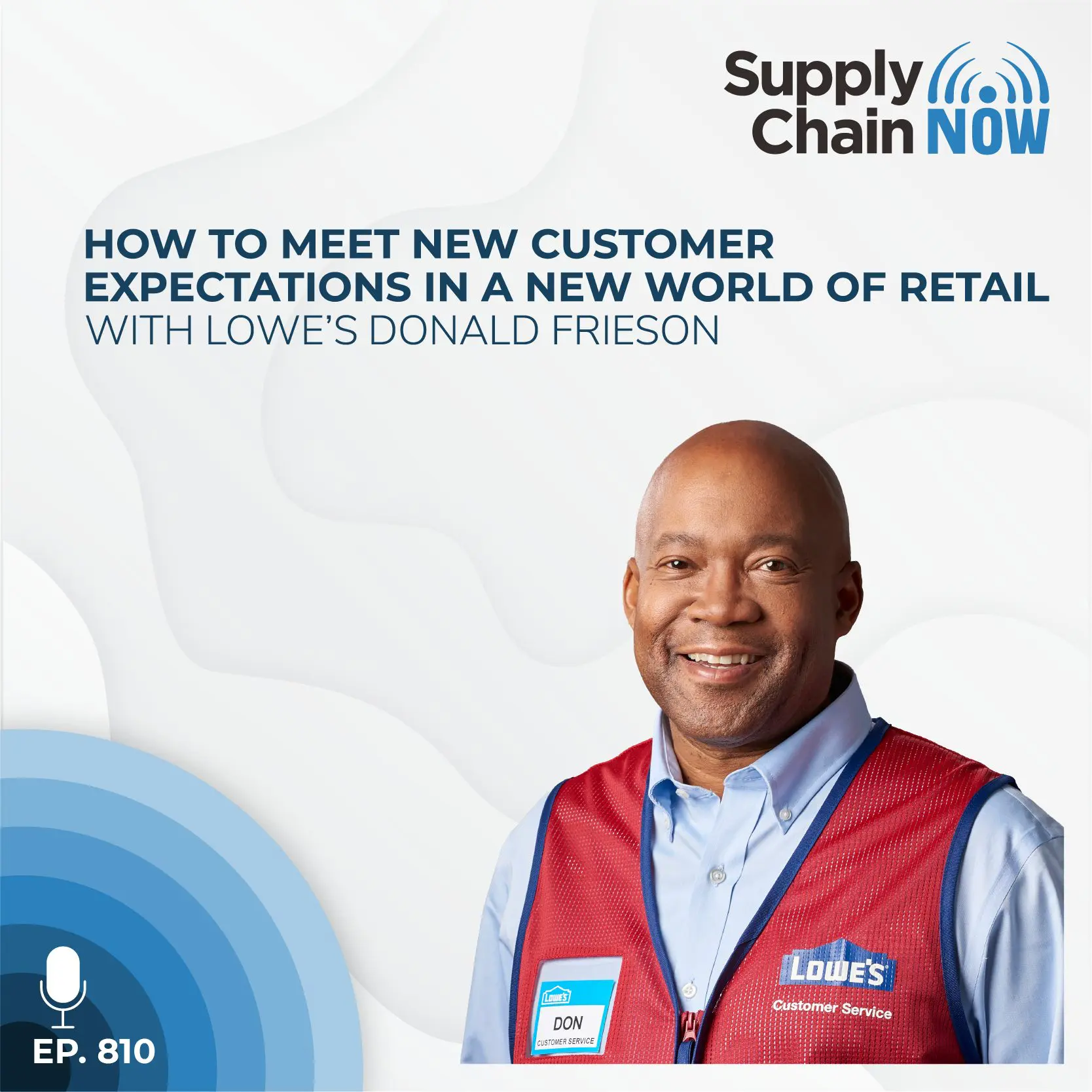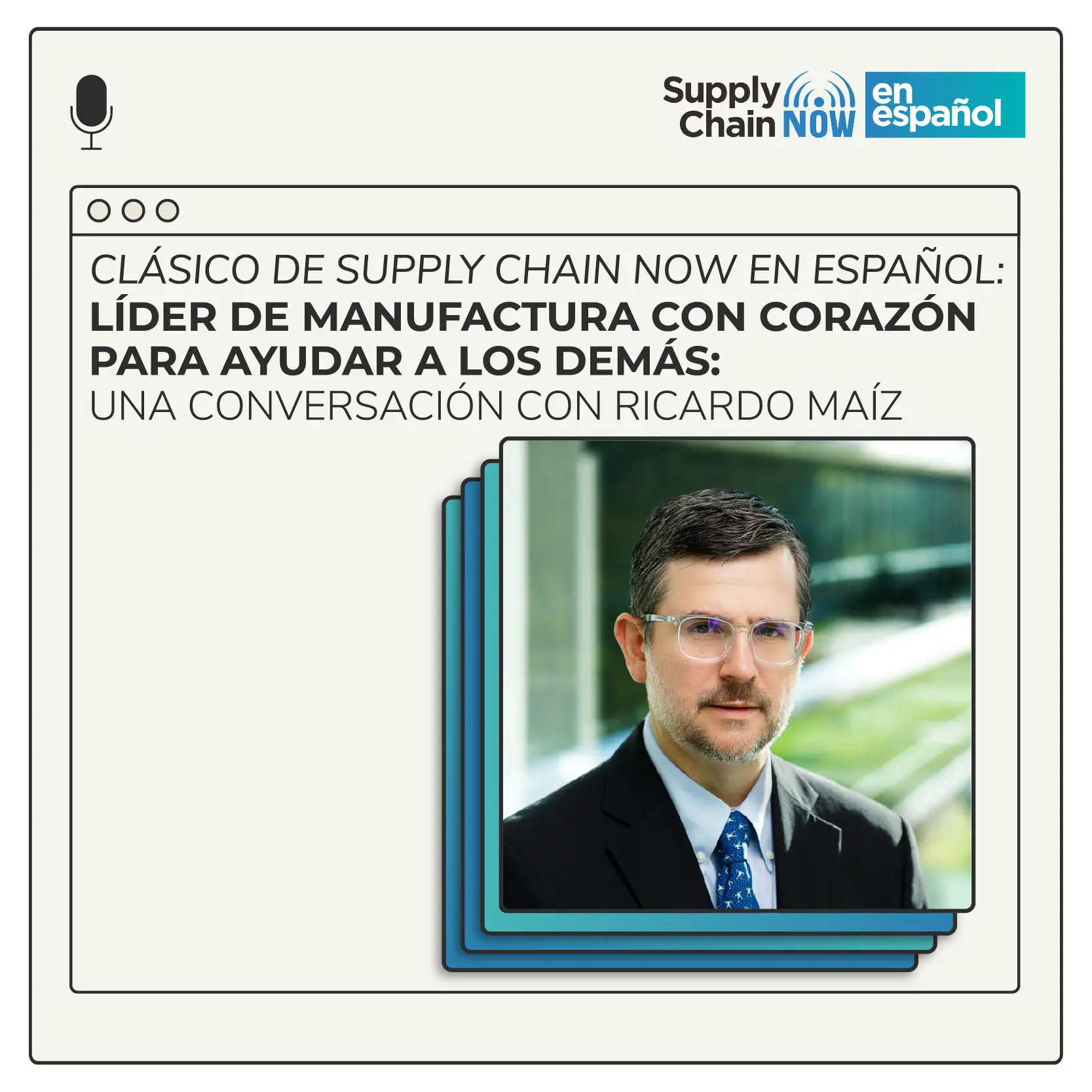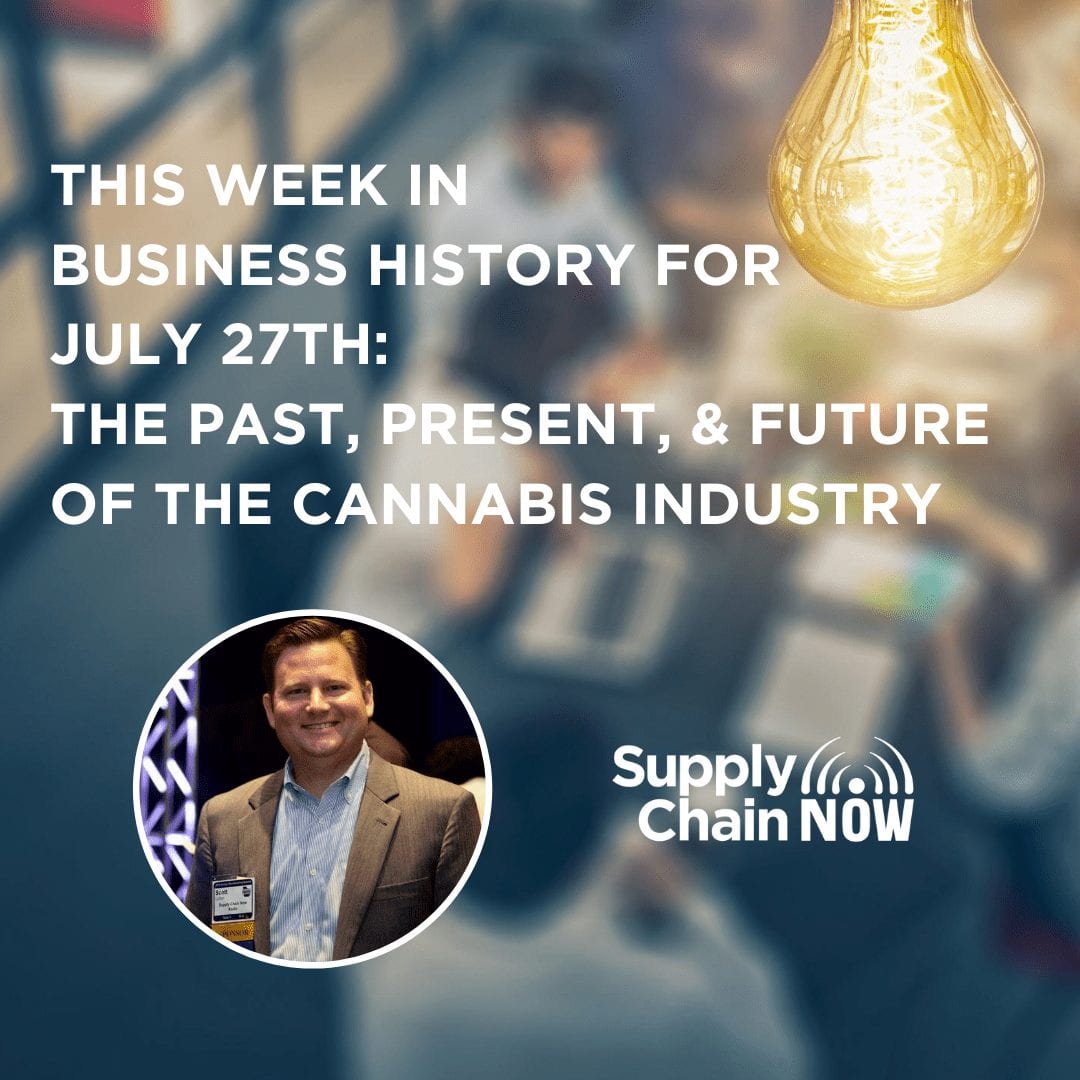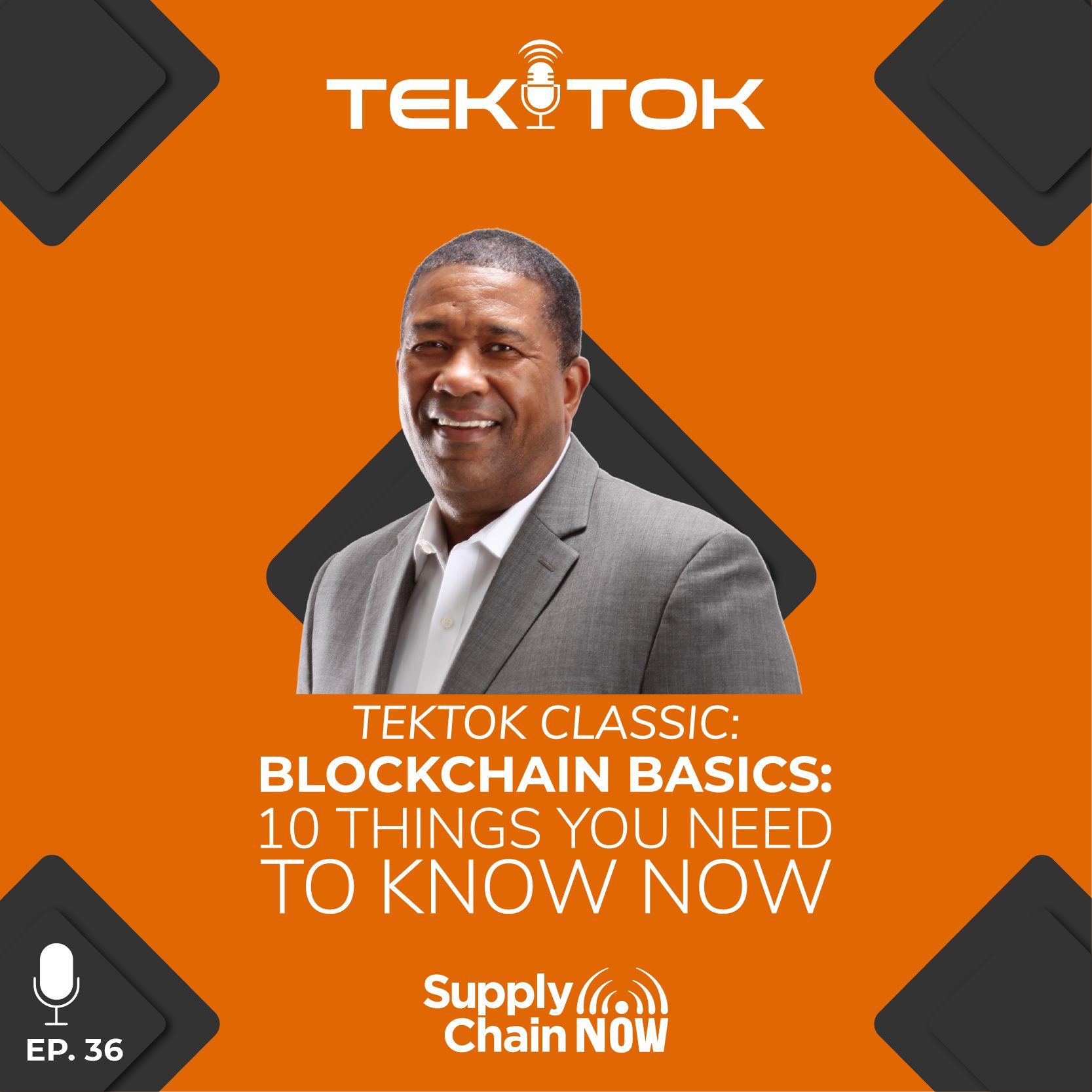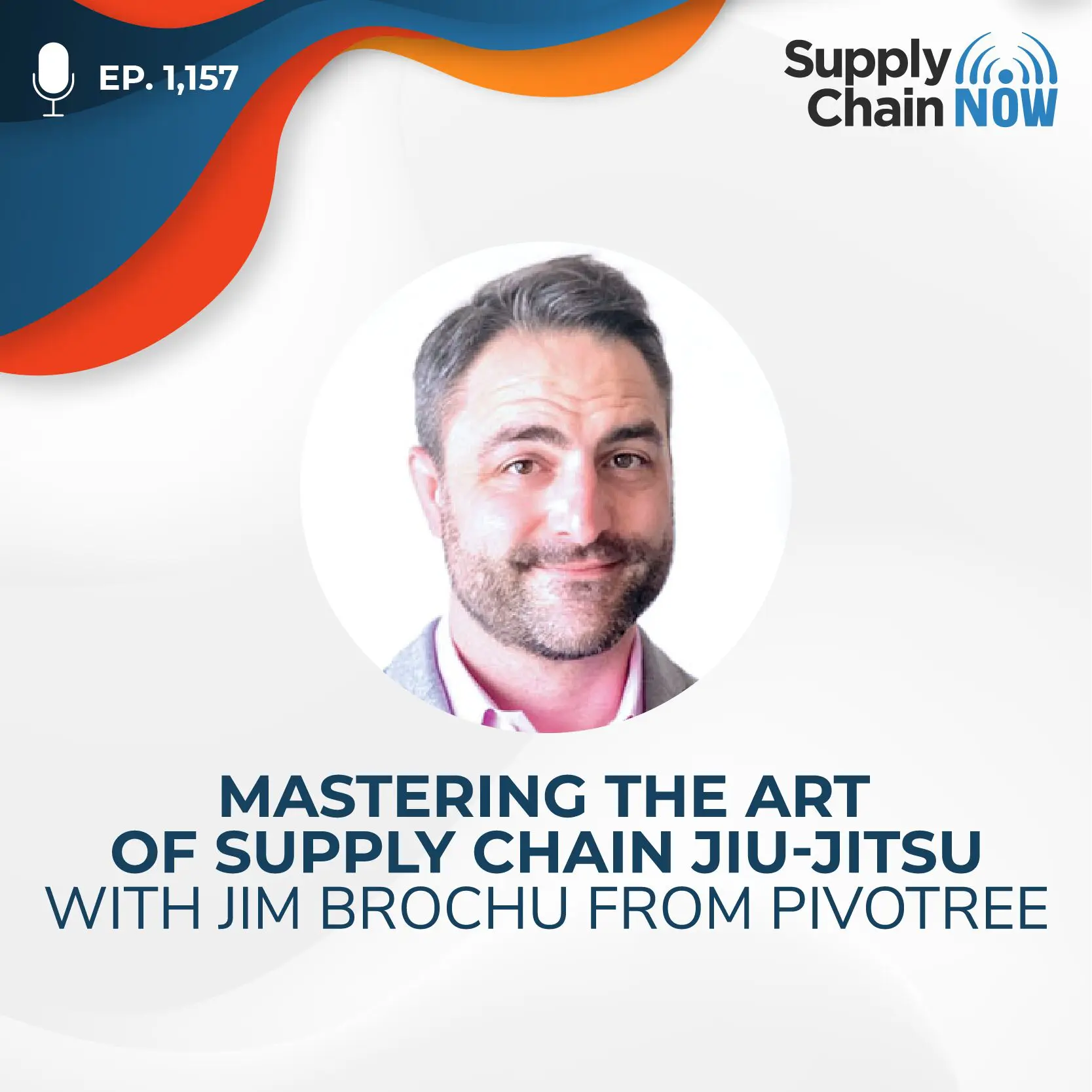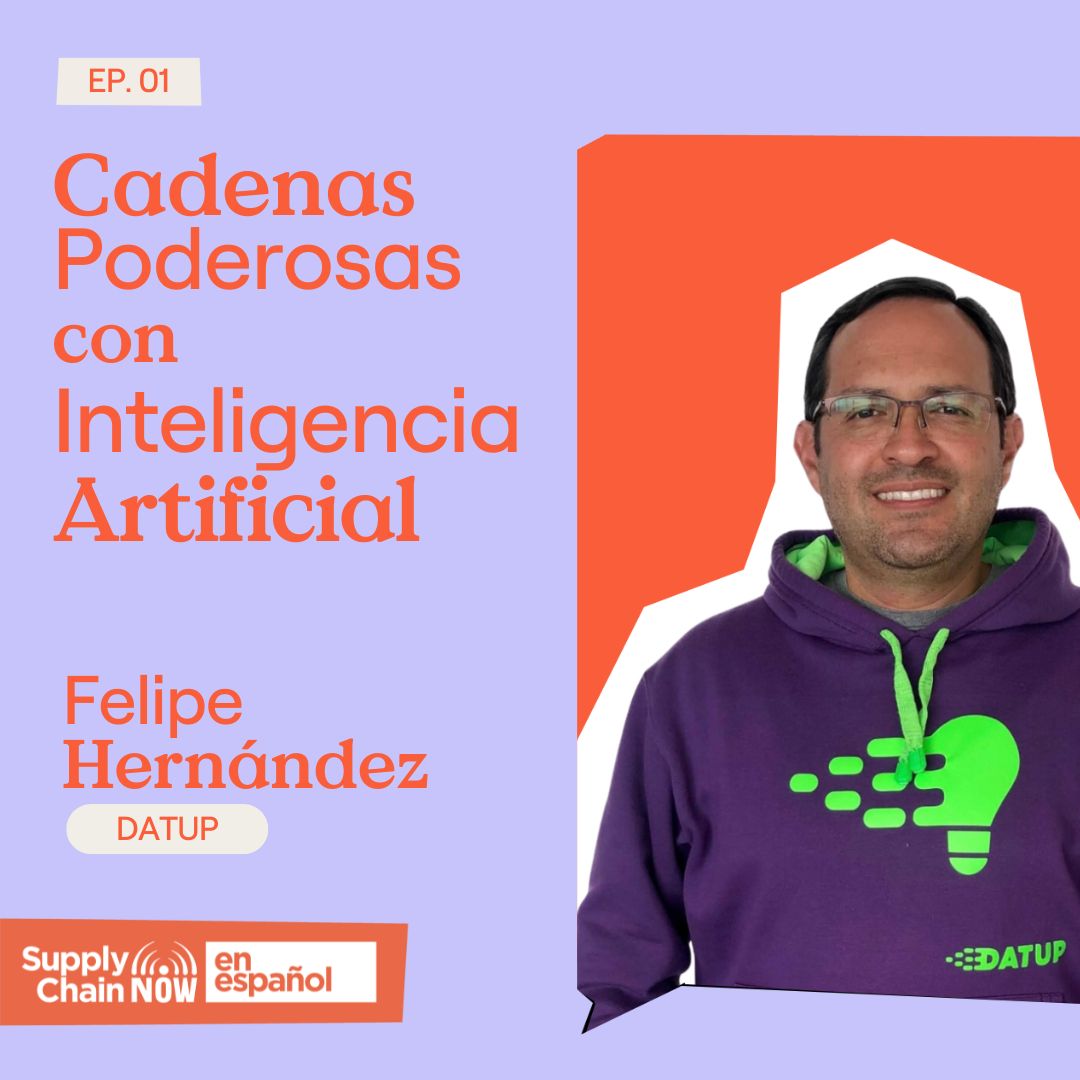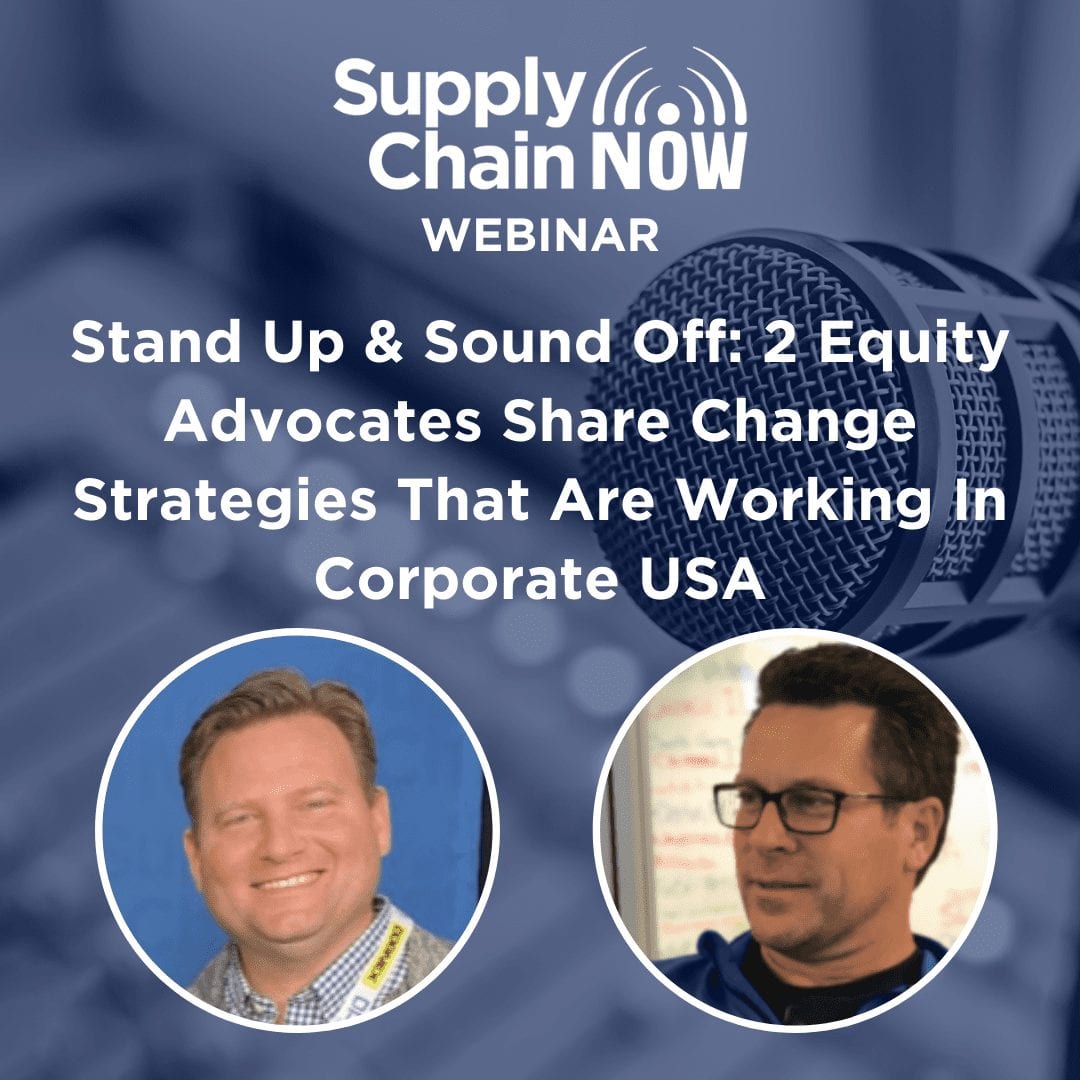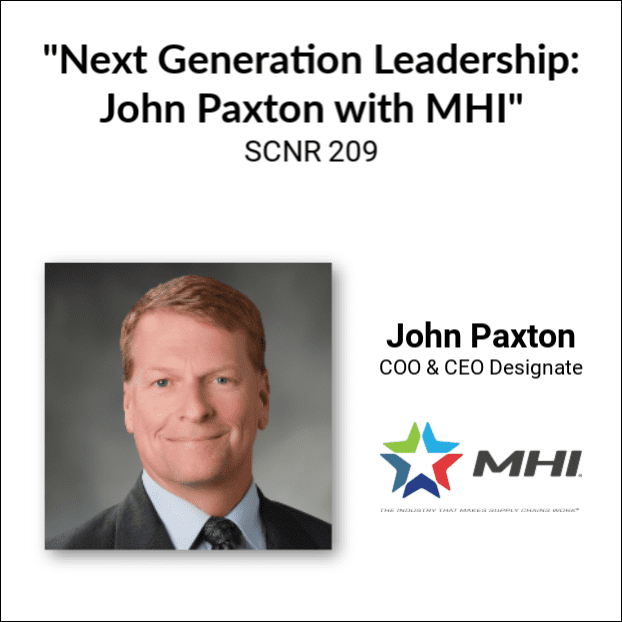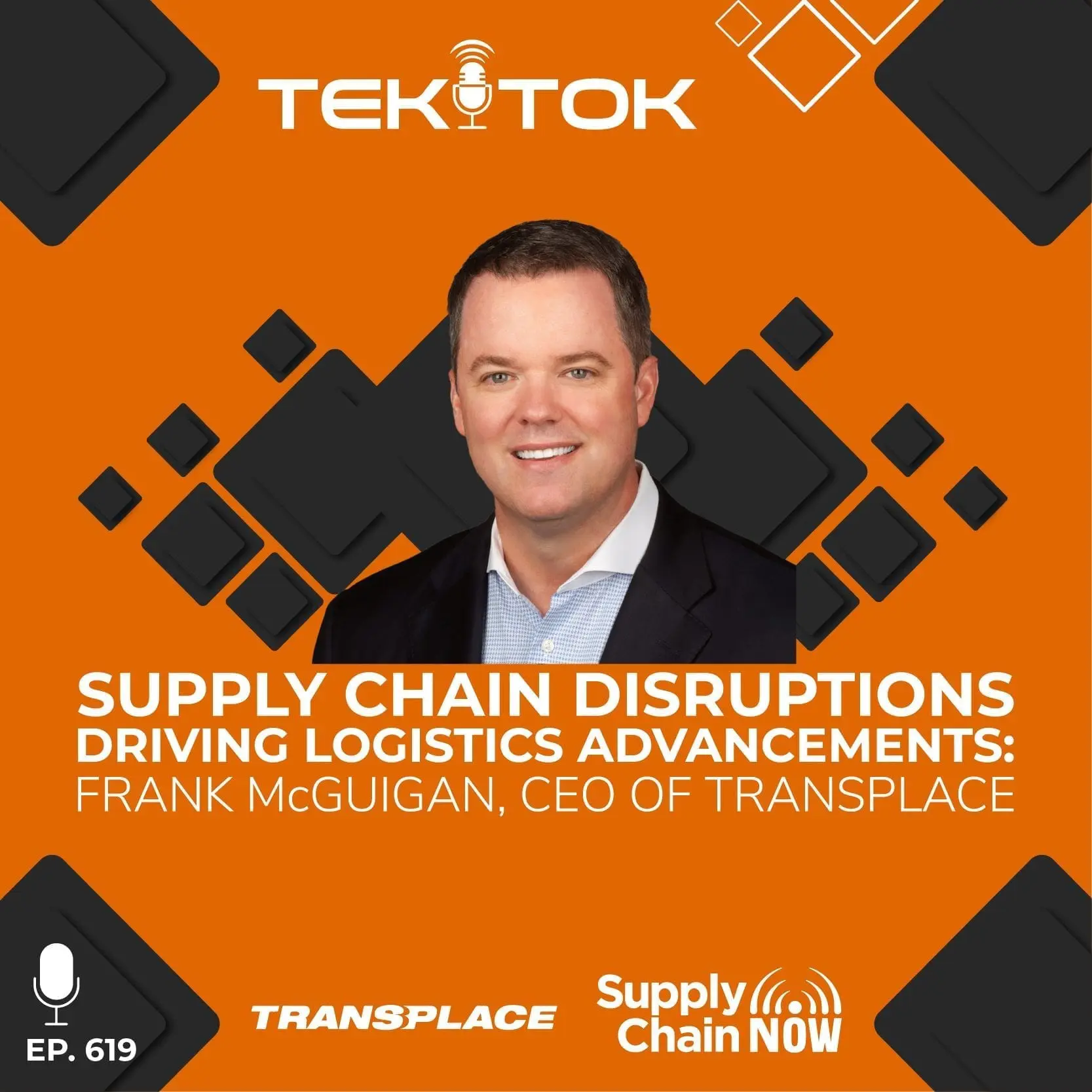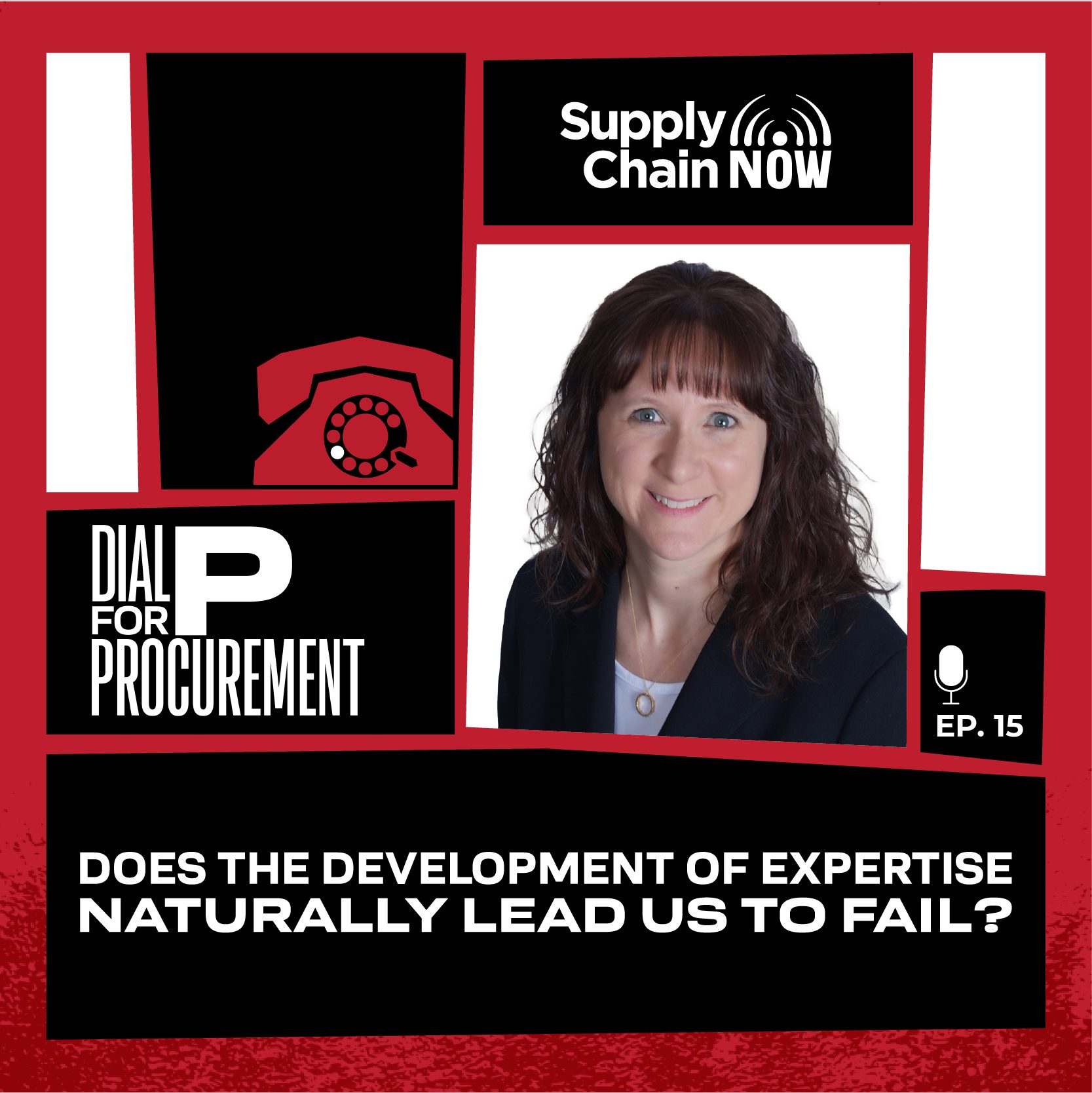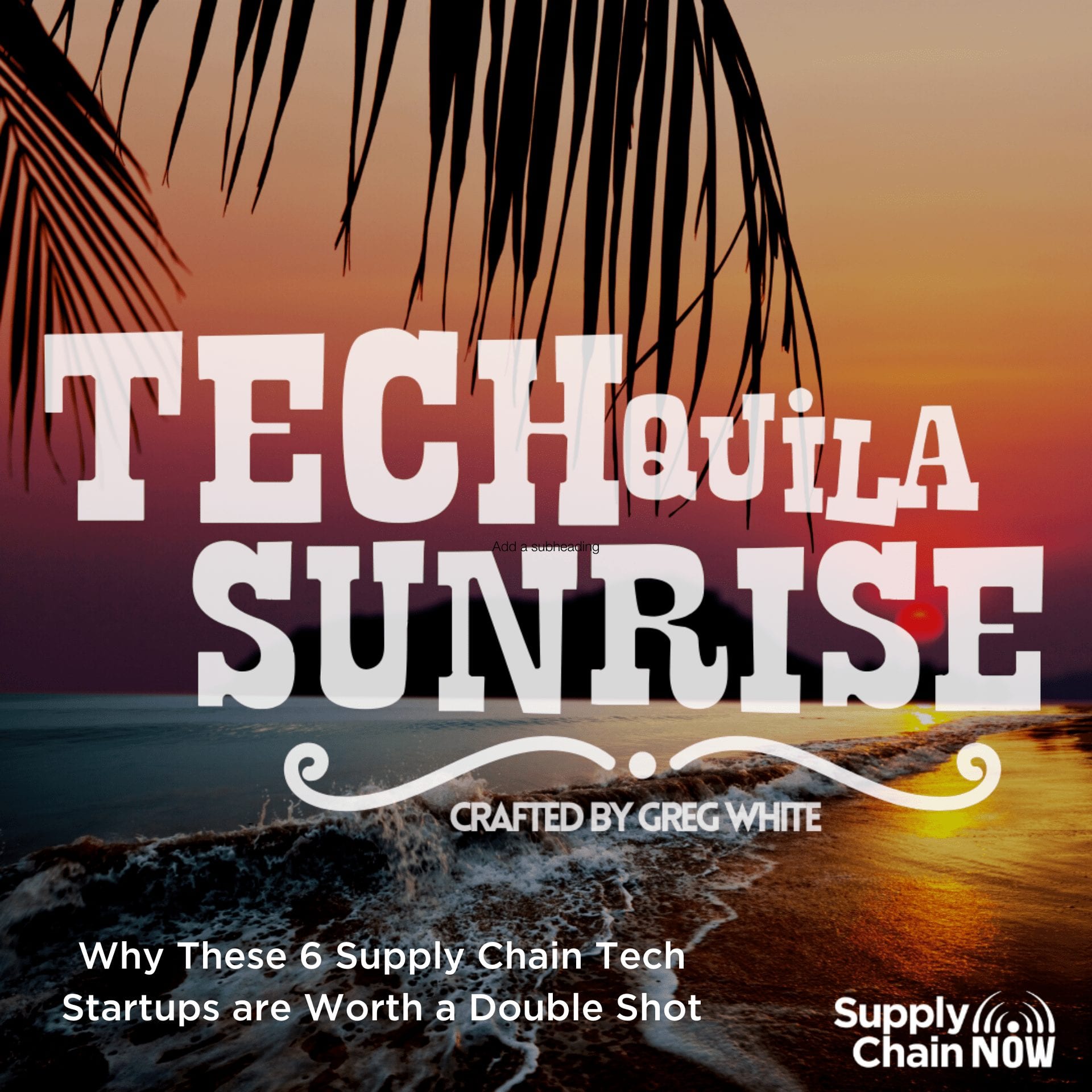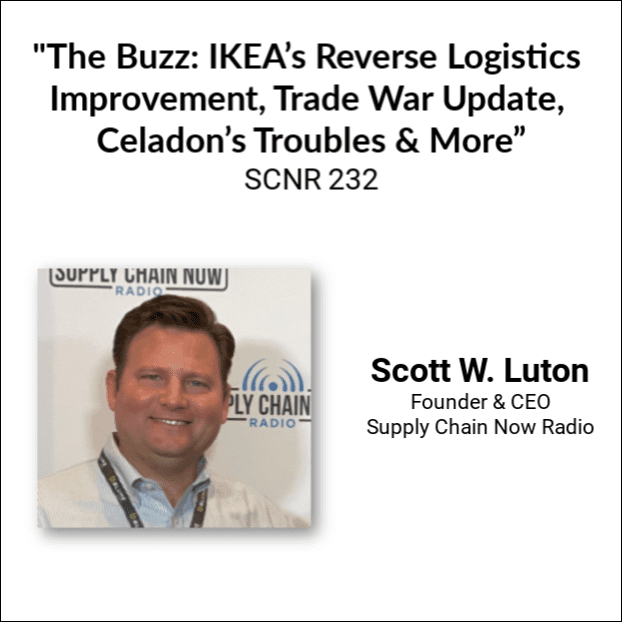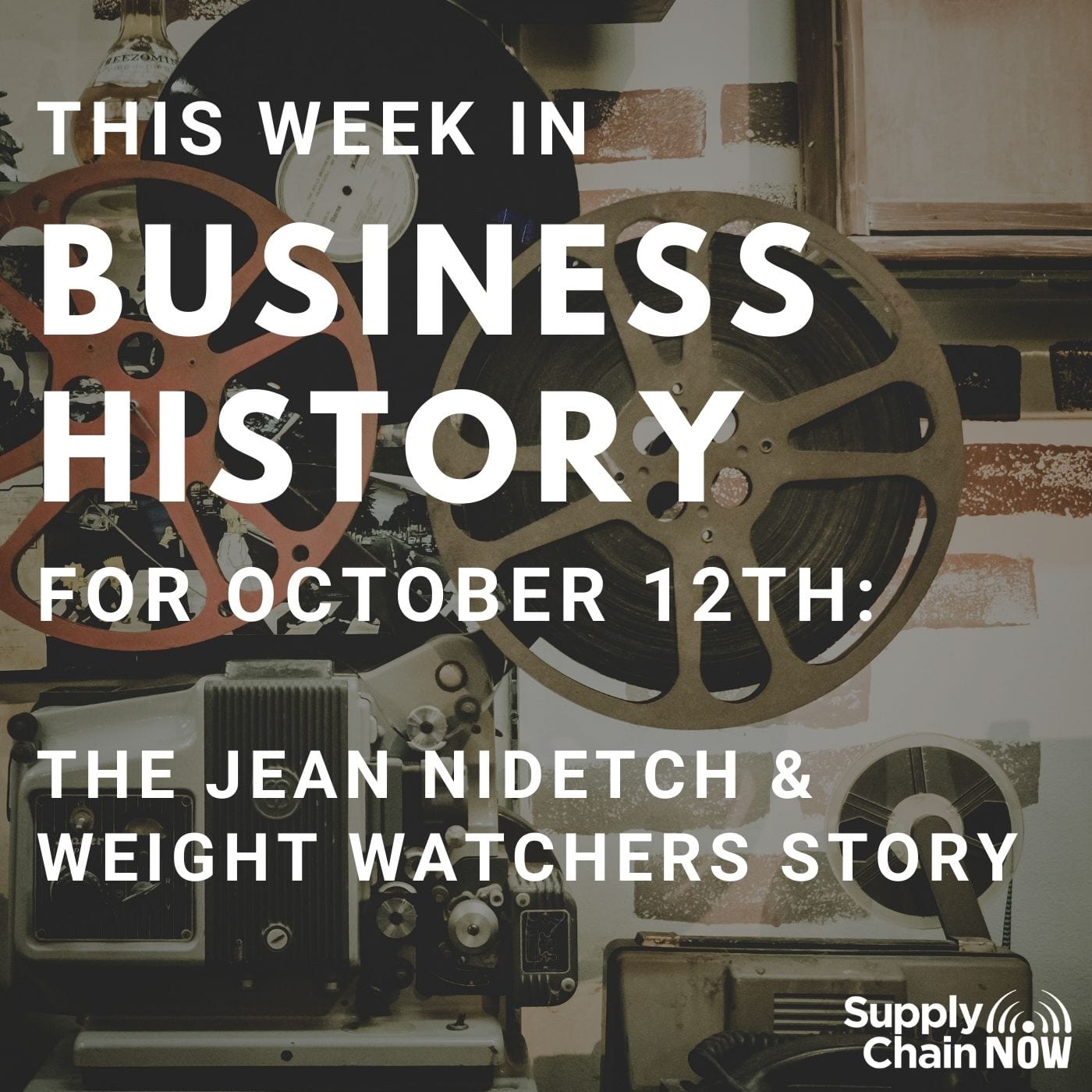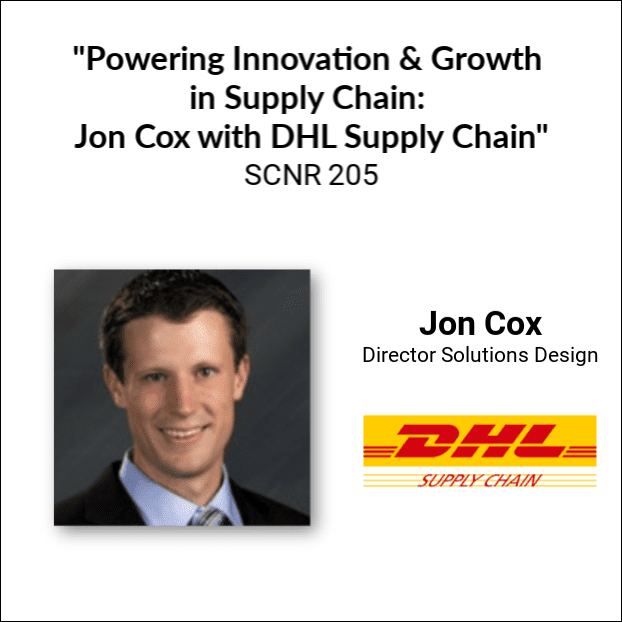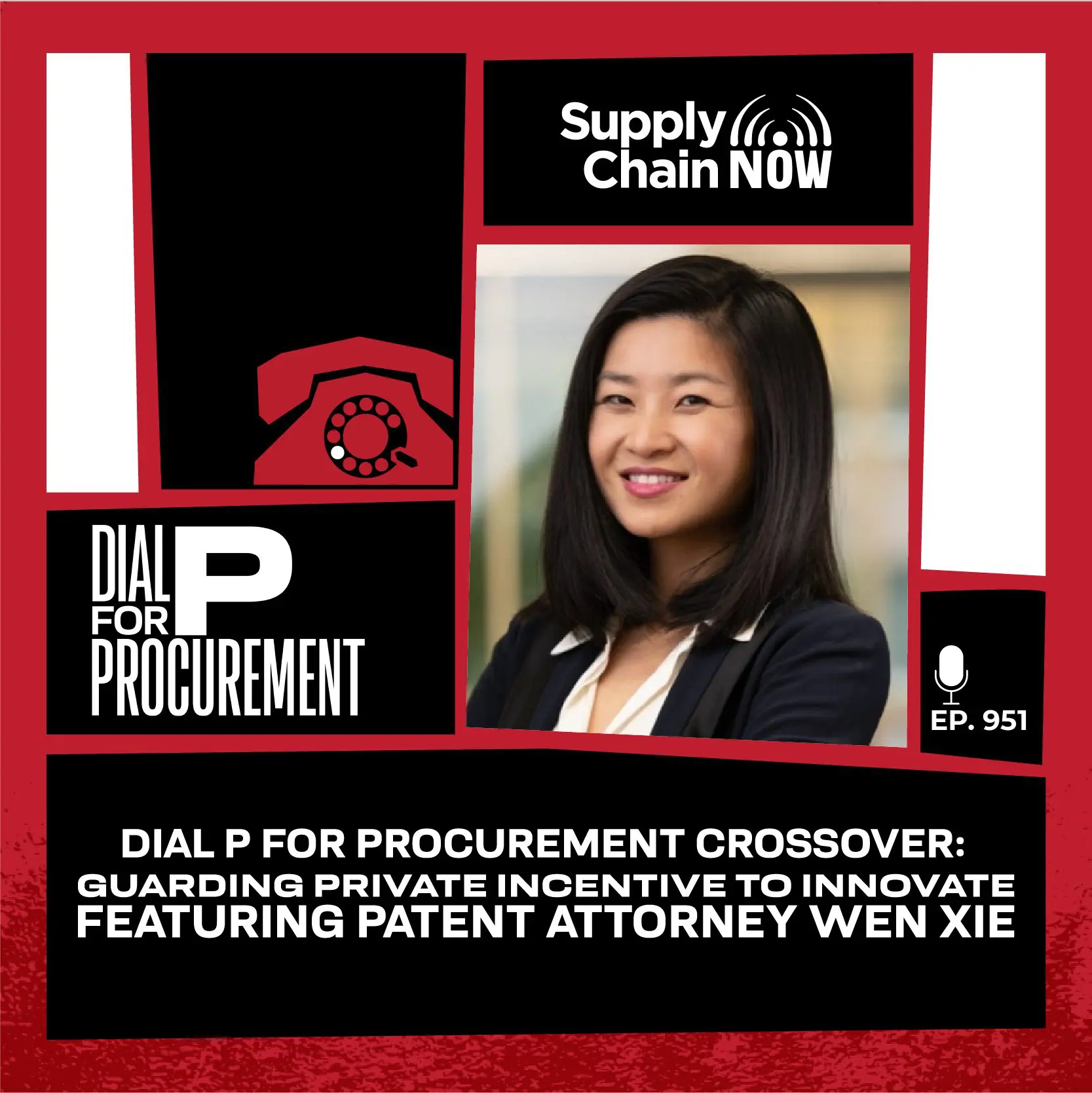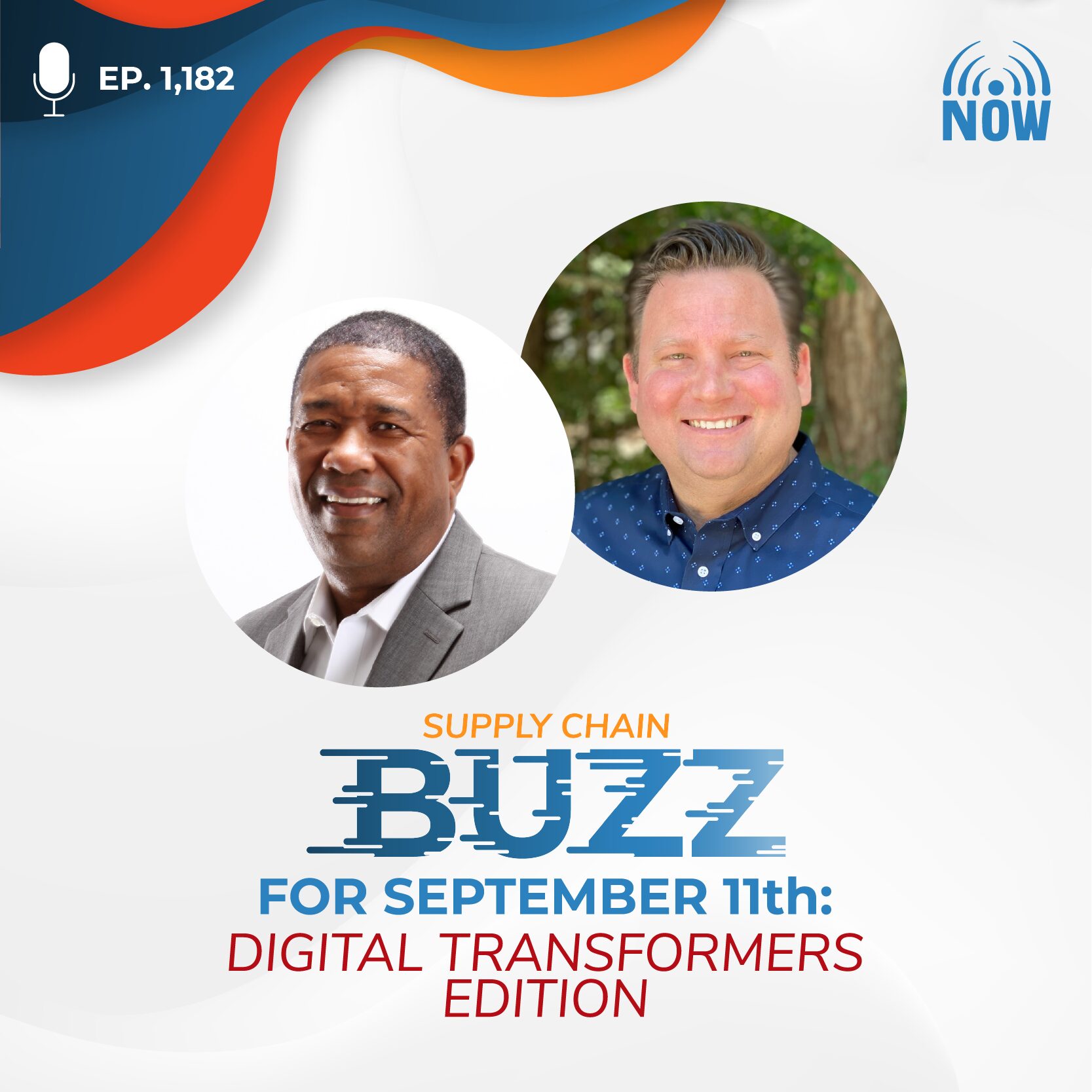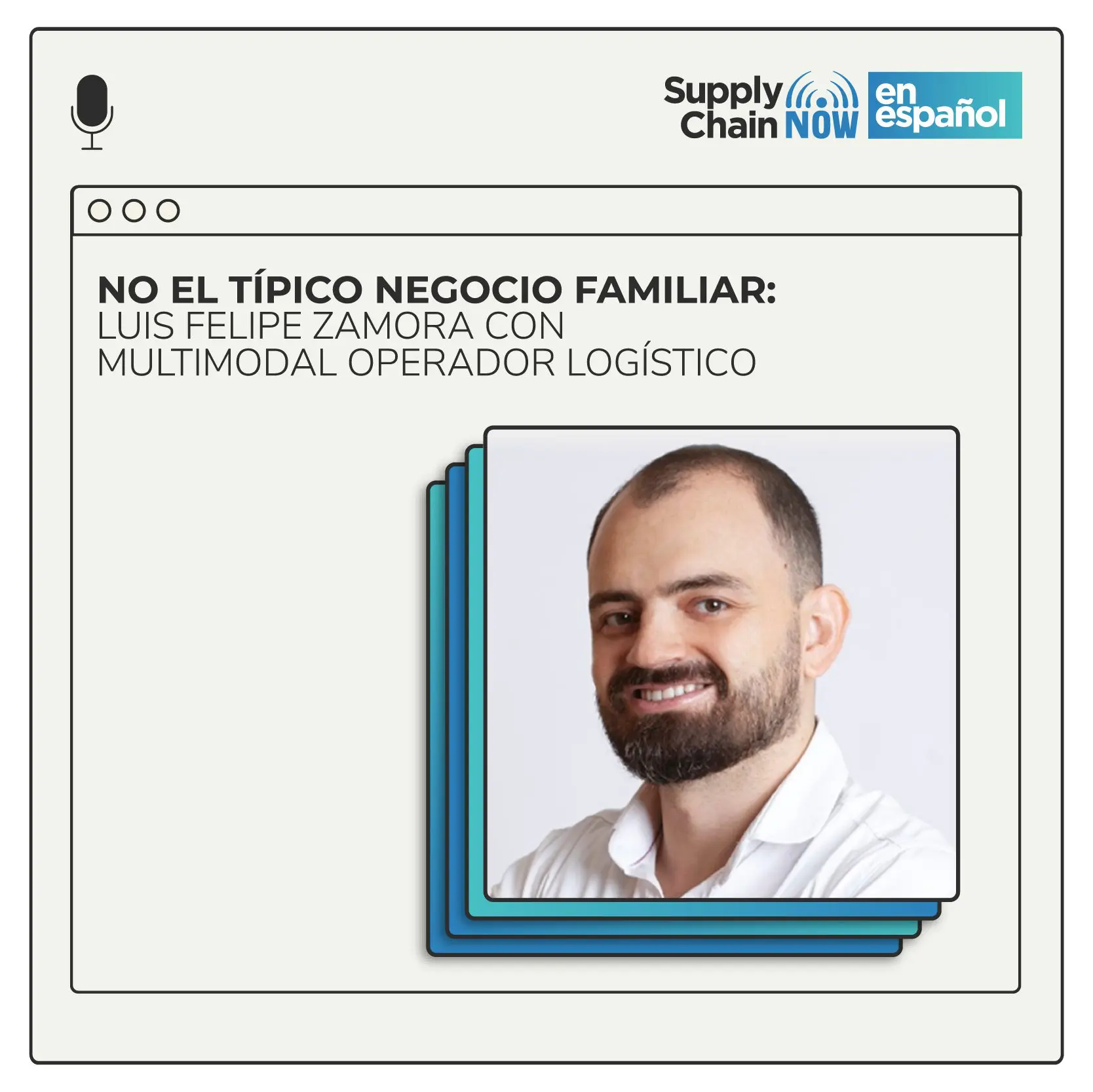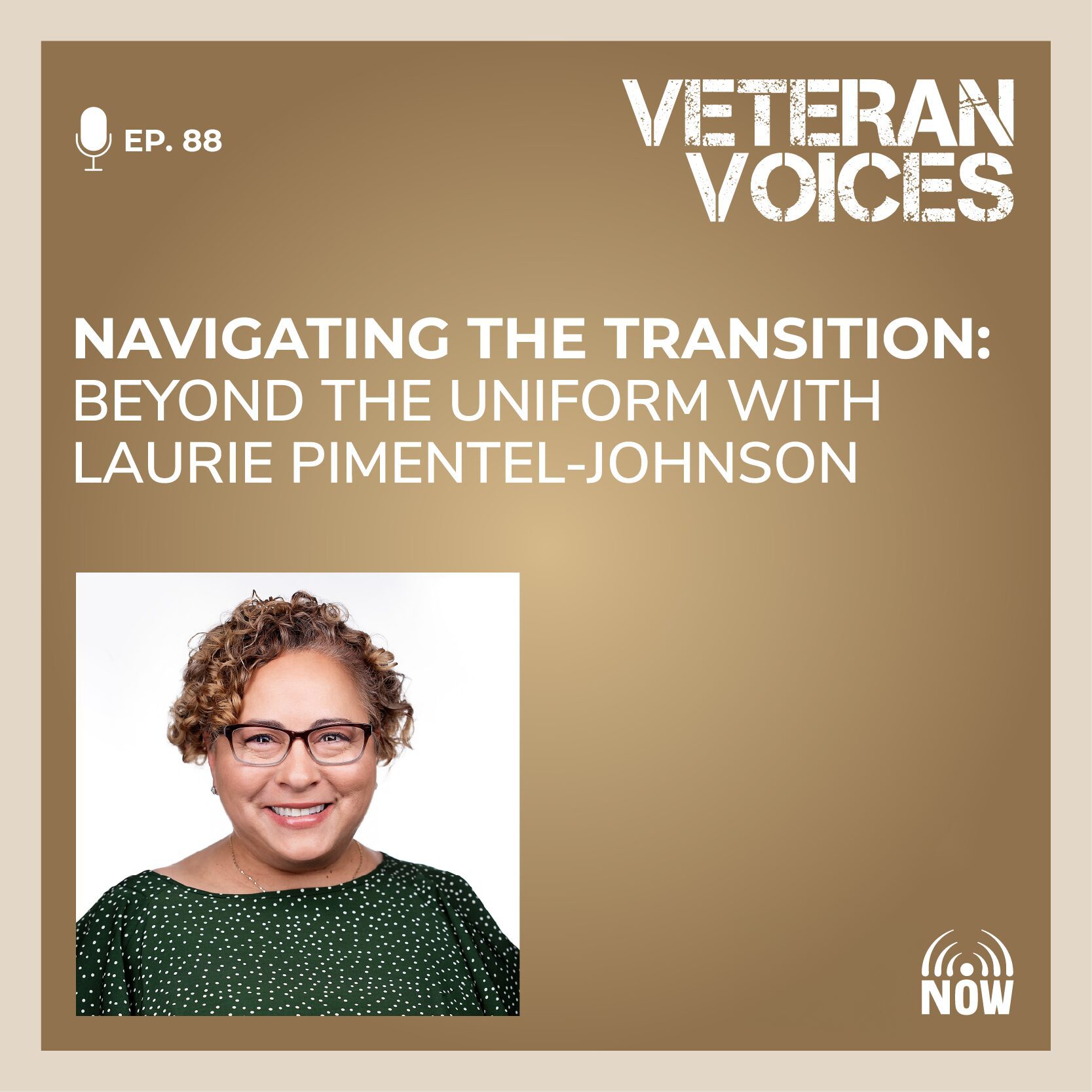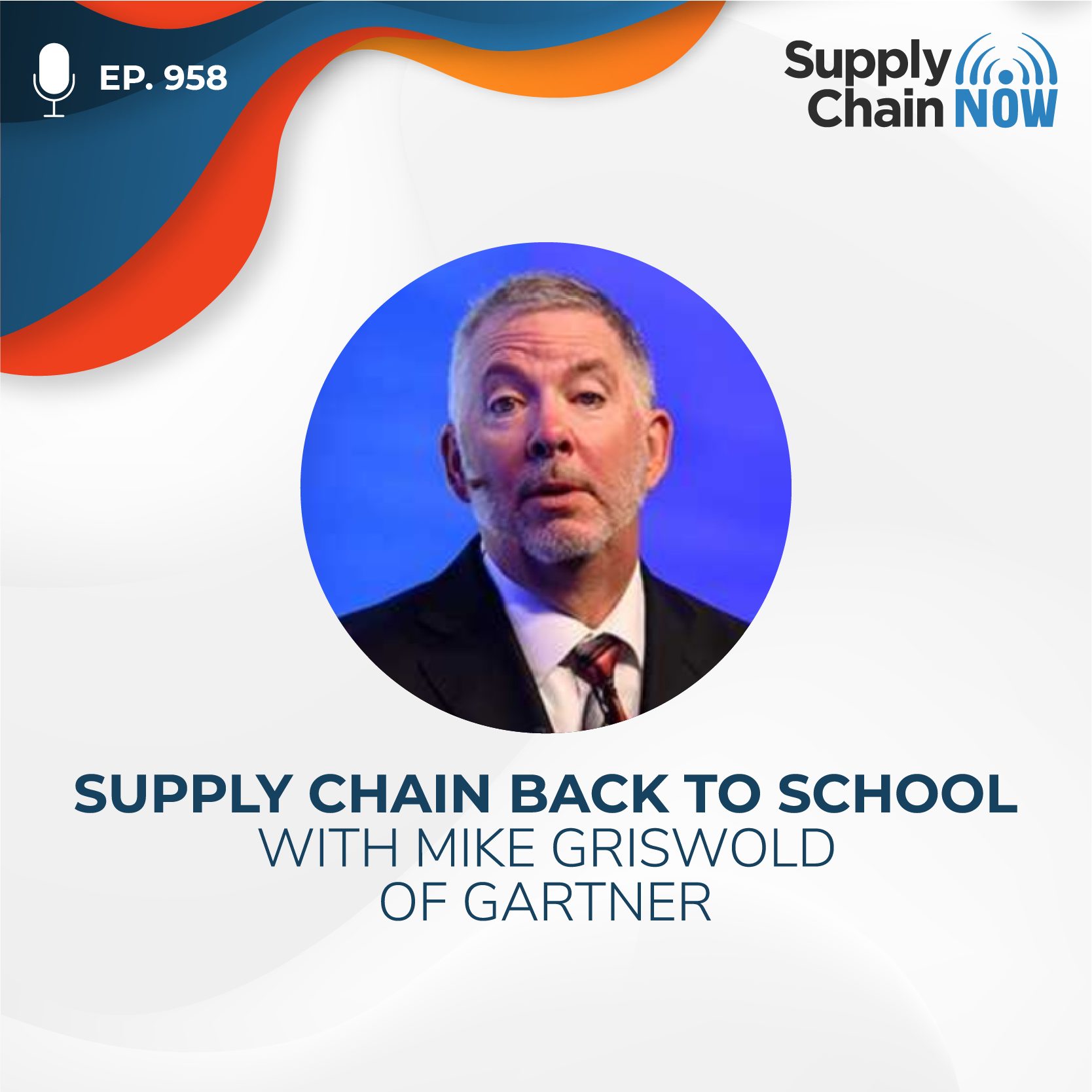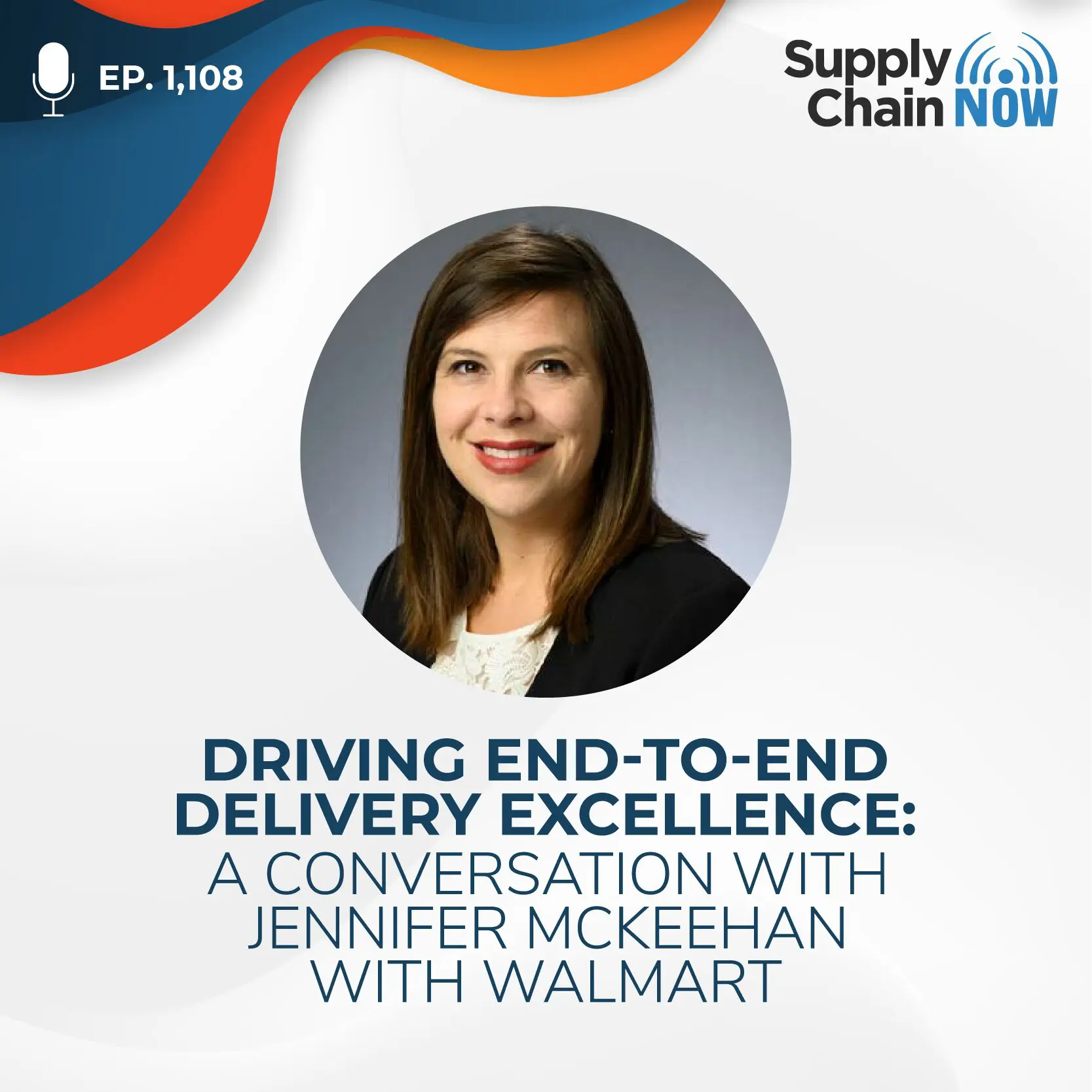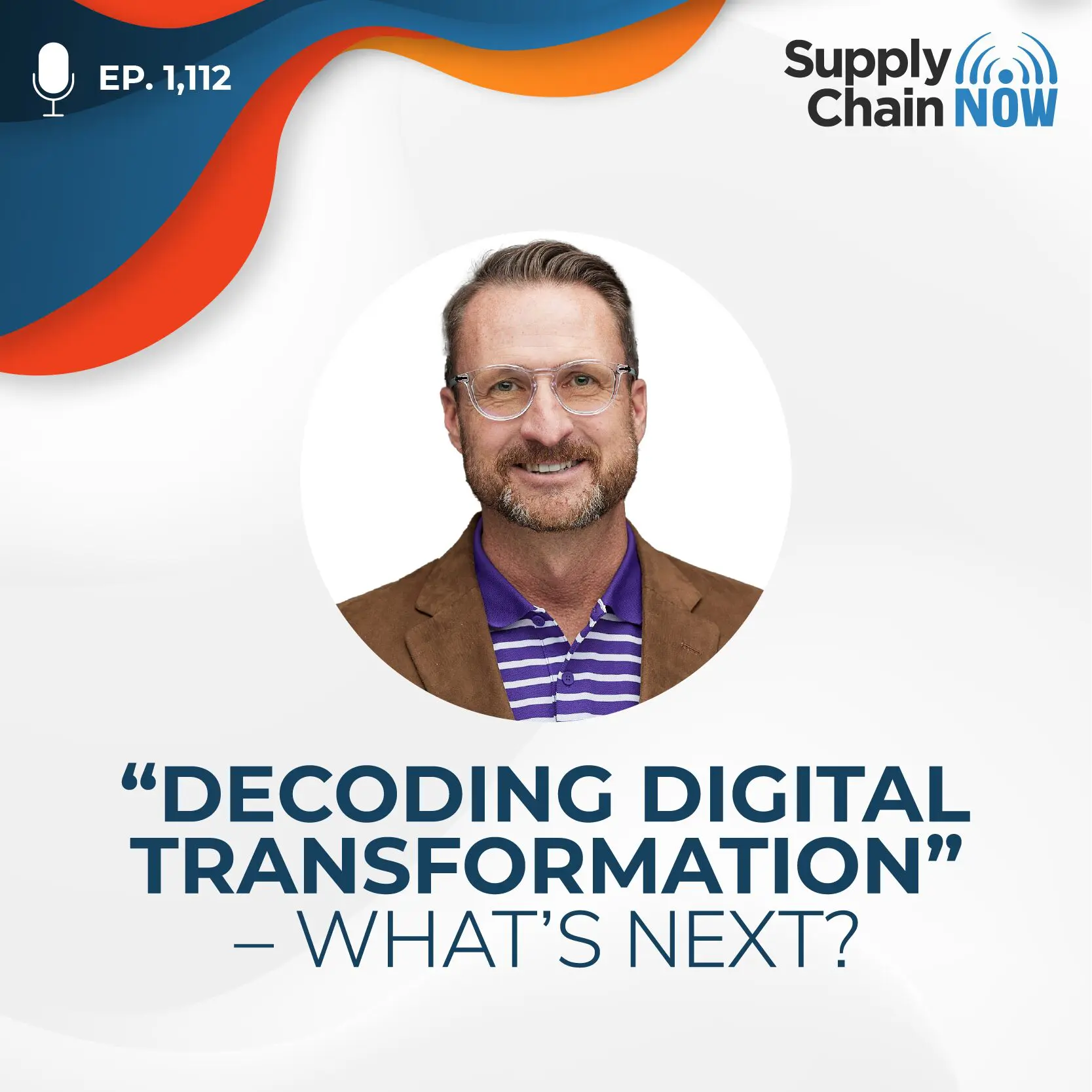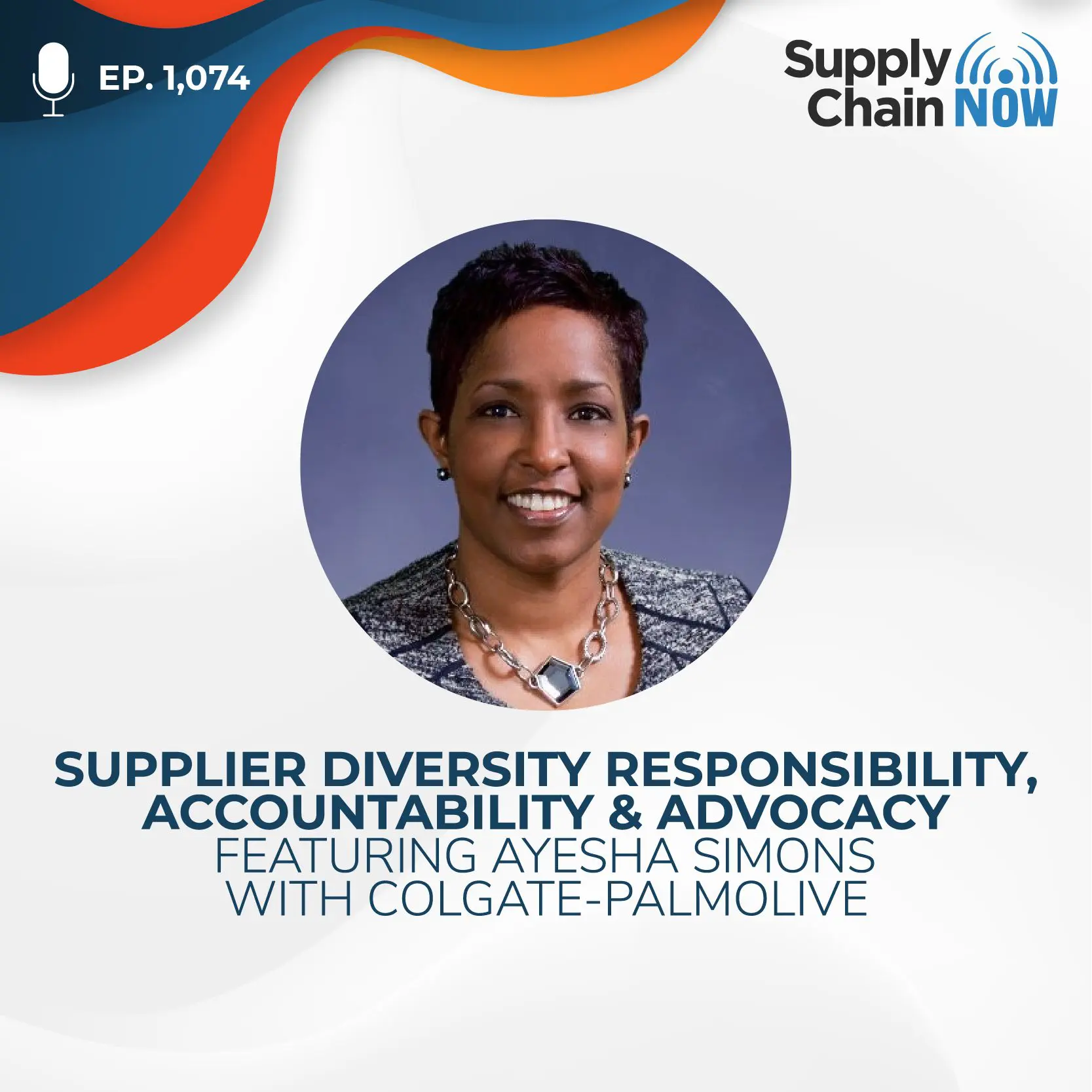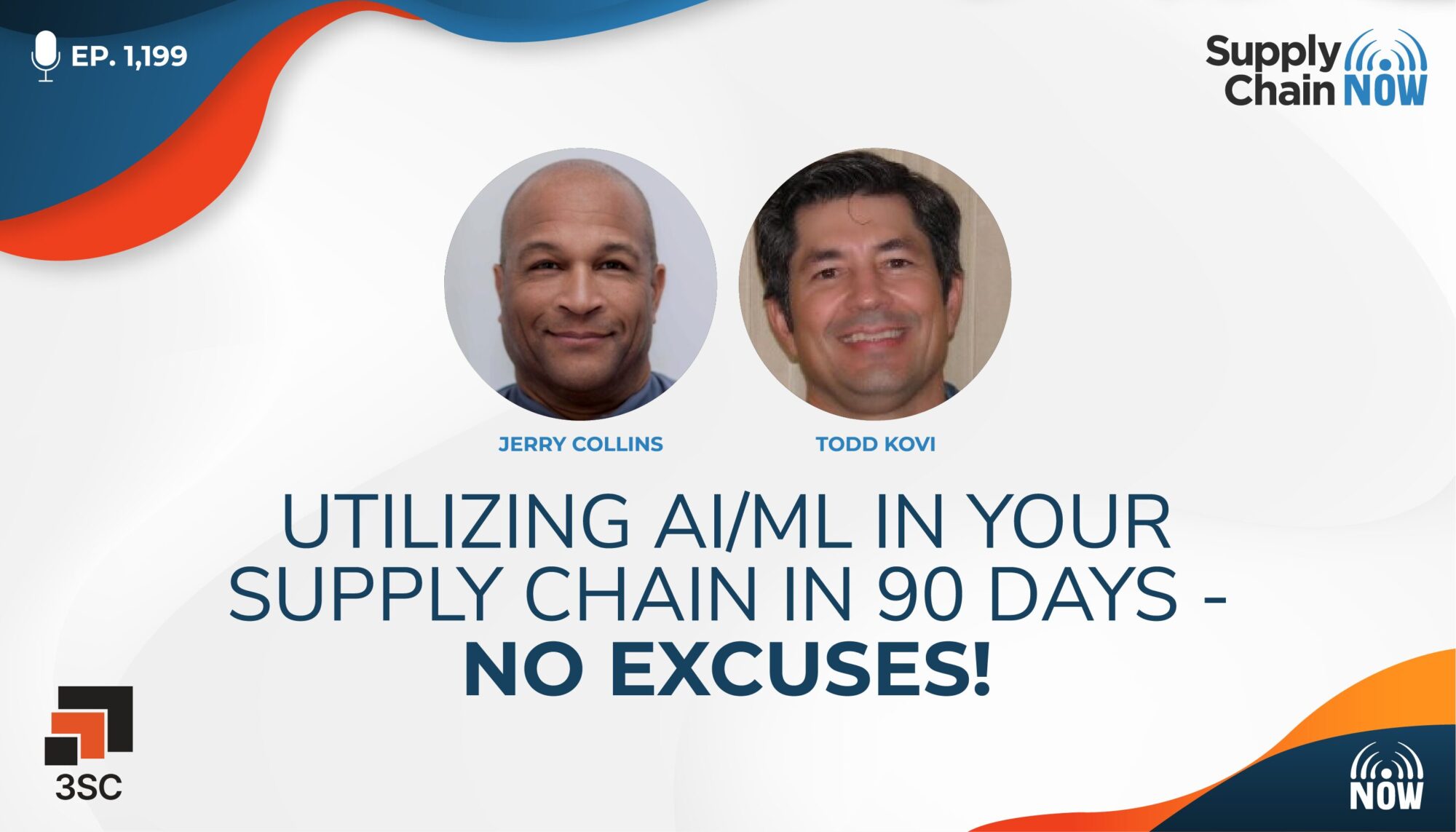
Don't be bashful about going out and getting professionals who manage data for you. If you don't understand the data, find those folks that do.
-Jerry Collins
Episode Summary
Dive into the vital role of modern technology, particularly AI and machine learning, in optimizing supply chains in today’s episode of Supply Chain Now. Hosts Scott Luton and Greg White, along with industry leaders Jerry Collins, CEO and Founder of G&ACII Management Consulting, and Todd Kovi, Partner with Radix Consulting Alliance, discuss how embracing technology benefits customers, suppliers, and the overall ecosystem.
Listen in as the guests highlight key insights:
- The importance of understanding and effectively utilizing AI while debunking misconceptions and fears surrounding its implementation.
- AI’s evolution and its role in decision-making, stressing the need for stakeholder involvement in its deployment.
- The necessity of quality data, problem identification, and a dynamic approach in successful AI implementation.
- Addressing challenges such as dirty data, unrealistic expectations, and the human-technology-paradox in adopting AI solutions.
Join us for this conversation navigating between technological insights and practical advice, urging listeners to approach AI implementation thoughtfully, backed by expertise and a clear understanding of its potential impacts on their operations. Listen in as we aim to demystify AI, encourage strategic use, and promote a holistic understanding of how technology can positively transform supply chain management.
Episode Transcript
Intro/Outro (00:03):
Welcome to Supply Chain Now, the voice of global supply chain. Supply Chain Now focuses on the best in the business for our worldwide audience, the people, the technologies, the best practices, and today’s critical issues, the challenges, and opportunities. Stay tuned to hear from those making global business happen right here on Supply Chain Now.
Scott Luton (00:32):
Hey, good morning, good afternoon, good evening, wherever you are. Scott Luton and Greg White with you here on Supply Chain Now. Welcome to today’s show. Greg, we have got a great show teed up here today. But how are you doing?
Greg White (00:46):
I’m doing pretty well, really. How are you doing?
Scott Luton (00:49):
Wonderful. You said that very matter of fact. I can appreciate that.
Greg White (00:54):
What’s a matter of fact? It’s a matter of fact that I’m doing well. So, yeah.
Scott Luton (01:00):
Well, hey, Greg —
Greg White (01:01):
I’m very direct person, Scott, you probably don’t know that, but –
Scott Luton (01:05):
Not at all. Not at all. Hey, but you’re someone that doesn’t pull any punches. And, Greg, today, that’s one of the themes here, we’re not pulling any punches. We’re going to be talking about how there’s no excuses when it comes to failing to embrace modern technology and better serve your customers, your suppliers, your team, the whole ecosystem, especially with regard to artificial intelligence and machine learning. And with the right approach, Greg, with the right approach, we got to be getting real results in less than 90 days. Am I right?
Greg White (01:35):
That’s the goal. I mean, I think there’s a lot of fear and loathing around AI and machine learning and that sort of thing, mostly because there’s a lot of misunderstanding, but we’re going to talk about that, and —
Scott Luton (01:46):
That’s right.
Greg White (01:46):
Why there’s no need to fear. Underdog is here. And the beauty of this whole 90-day notion is that the way that technology has evolved over the last two decades really makes it table stakes to start seeing results that quickly. There’s no need to wait two, three, four, or five years as I’ve in my consulting days talked to many, many people who are in the seventh year of their two-year ERP implementation. No need to wait for that anymore.
Scott Luton (02:19):
Well, folk, I can’t wait to dive into that. We got two outstanding guests and industry leaders joining us in just a second. But hey, today’s conversation is powered by our friends at 3SC, a leading data analytics company that’s providing AI-powered solutions to better improve supply chain management. You can learn more and request a demo at 3scsolution.com, and we’re going to drop that in the comments as well. All right, Greg, we ready to bring on these two panelists here today?
Greg White (02:47):
Let’s do it. Let’s do it.
Scott Luton (02:49):
All right. So I want to welcome in – we’ve had a lot of fun pre-show with both Jerry Collins, founder and CEO with G&AC Management Consulting, and Todd Kovi, a partner with Radix Consulting Alliance. Hey, hey, Jerry, how you doing?
Jerry Collins (03:03):
Fantastic. Fantastic. How are you doing today?
Scott Luton (03:06):
Great to see you. We’ve really enjoyed your sense of humor in particular. And, Todd, great to see you again. How are you?
Todd Kovi (03:11):
Yeah, good. Awesome.
Scott Luton (03:12):
Wonderful. Well, Greg, we’re global as always, but Jerry and Todd were coast to coast, West Palm Beach for Todd.
Greg White (03:19):
We are coast to coast, huh?
Scott Luton (03:21):
And Union City, California for Jerry, where I know you’ve made a pit stop or two there as well, Greg, right?
Greg White (03:28):
Yep. I may have been seen in a Craig and Auto Parts at some point, now O’Reilly, so only people from California even remember Craig, and so —
Scott Luton (03:36):
Oh, love it, love it. Well, hey, before we get into some of those things Greg and I were chatting about on the front end of the show, y’all know we love to talk and start with a fun warmup question. So, Jerry and Todd, let’s do just that. So it’s an easy one because anyone, anytime says fried chicken to me they’ve got my complete and undivided attention. So, today is National Fried Chicken Sandwich Day here in the States. So basic simple question, and I’m going to start with you, Todd, and work our way around, where do you get your favorite chicken sandwich, Todd?
Todd Kovi (04:11):
So, I won’t say I have a favorite chicken sandwich from a particular company, but I’ll always go for the Nashville hot chicken style, find a local good place that’s got good buttermilk crusted fried chicken sandwich, and that pretty much make my day.
Scott Luton (04:30):
Ooh. All right, Todd, man, I need a napkin. I’m salivating over here. All right, Jerry, want to top that.
Jerry Collins (04:37):
That’s a hard one to top. I’m just going to keep it real, real simple. I can eat a stack of them probably four or five at a time, simple Chick-fil-A sandwich.
Scott Luton (04:47):
Oh, yeah. Oh, yeah. Can’t go wrong. It’s so consistent everywhere you go, as everyone says. Right?
Jerry Collins (04:52):
Very consistent.
Scott Luton (04:52):
All right, Greg, we got Nashville hot chicken, we’ve got Chick-fil-A, what about you?
Greg White (04:57):
Yeah. Well, I am going to name a place. Here in Atlanta, we have this place called South City Kitchen. And first of all, they do fried chicken really well, but they have, or you can have them make a sandwich out of it. It’s a really nice chicken breast sandwich, perfectly breaded, buttermilk breaded. They probably do it at Nashville now. But I love the regular so much that I haven’t done it. But I do have a question for you, Scott. What did the world do before Nashville hot chicken? I mean, really, how did we survive it?
Scott Luton (05:29):
I have no idea. But now that you’ve got my brain down that path, Greg and Todd —
Greg White (05:33):
I know and I know you’ve got a favorite, so tell us.
Scott Luton (05:36):
Yeah, Hattie B’s and Prince’s, both of them are delicious. I’ll take them both. And, Todd, I’m going to have to go check that out this weekend. So thanks so much for making me break my diet, guys. All right. So hey, folks, out there that are tuned in, listening, let us know where y’all get your favorite chicken sandwiches or sandwiches or fried chicken, you name it. We got folks like TSquared up in the Baltimore area. He says, “Bring on the nourishment.” It’s coming TSquared, it’s coming. And as we promised, you can learn more about our sponsor here today, 3SC, one click away right there in the chat. Okay, Greg, Jerry, Todd, I hate to do it. We got to leave fried chicken and we got to start talking about while we’re all here ’cause I think both of y’all, really, this whole conversation I think it’s going to help a lot of folks, open up some eyes along the lines of what Greg’s talking about. No more seven-year returns on outcomes and results. But before we get there, Jerry, I want to start with you for context, right, tell us a little bit about your background, Jerry.
Jerry Collins (06:29):
Certainly. Done supply chain, end-to-end supply chain manager for a little over three decades. So I’m aging myself a little bit here. I started out in the simple. I was in procurement. I was sourcing. I was a production planner for a period of time before I moved a little bit more on the technical side. I got into ERP type of situations. We’re going to talk some more about that as we go along, as some of them that were fantastic, others that were under failures as a result of some of the things that happen to feel we’re going to bring up. But in the high-tech industry, biotech industry, robotics, food, so I’ve been in quite a few different scenarios there when it comes to being able to apply supply chain management to businesses. I love every aspect of it, but now I’m really interested in this whole data management piece of it. So now it’s a huge focus on all things AI and machine learning.
Scott Luton (07:24):
Yes, Jerry. Okay. I’m looking forward to the book coming out, man, with all of that experience and varied experience. And you know what? It gets better, folks, because not only does Jerry bring it, y’all know Greg and I bring it, but, Todd, you’ve got a great background. Tell us more about yourself.
Todd Kovi (07:39):
Yeah. So I started out in industry as a manufacturing, mechanical engineer and kind of worked my way up through different positions, learned a lot of different things, worked in aerospace and automotive, OEM, among others, just over time, really kind of gravitated toward the supply chain challenges stuff. I got into consulting in 2000, been doing that ever since. And I found a lot of similarities of challenges in supply chain that we had resolved and had solutions for and approaches in manufacturing like Toyota approach to doing things. And so, yeah — and I think supply chain over the last 20 plus years has really adopted a lot of those methodologies. So it’s been an interesting transformation and I enjoy it. It’s certainly come a long way. Like Jerry three plus decades that I’ve been in the industry. Yeah.
Scott Luton (08:40):
Yes. Well, and we’ve picked that up in our pre-show conversations. And by the way, Greg, I’m going to get your take on what Todd and Jerry bring to the table. But did y’all see Todd? He didn’t even have to look or change. He just put his finger out and there’d be lights. I love how full and calm you did that, Todd. Gregory, we got what heck of a panel here between Jerry and Todd, huh?
Greg White (08:59):
Well, first of all, I applaud their boldness because Scott and I will never — though we probably have about the same tenure in supply chain. We could’ve said two plus decades. That’s how we do it, Jerry. Never confess to more than two decades, but I think people get it. So I applaud that bold move. But yeah, I mean, look, this is what we do these shows for is for people to meet the practitioners, the doers, right, the thinkers in the industry who are getting it done every day. There’s just so much knowledge in people like Todd and Jerry that they can almost have a cartoon that we want to share with everybody because you can always get some little tidbit, at least a little tidbit out of these actionable insights as you love to say, Scott. And it’s great bringing folks like this to the show.
Scott Luton (09:52):
Agreed, agreed, man. Been there and done it and done it. Okay. Hey, really quick before I move forward, Patric is talking about Raising Cane’s fried chicken in Columbus, Ohio. Patric, thanks so much for making us hungry. And, Allen, great to see you. “Hattie B’s shut the cluck up,” he said. I love that. All right, Allen, good to see you. Okay, we got a lot to get into, folks, and as y’all can tell, we’ve got a truckload of experience and it’s going to offer a lot of actionable insights. So let’s start with this. Look, you can’t have a conversation these days certainly without mentioning artificial intelligence, AI or machine learning, ML, especially AI. So I want to start with this and, Jerry, I want to start with you. Most of our audience knows, they’re probably using it in some different ways. Some of them know they are, others may not know there are. But hey, is there an overlooked element in terms of how we define either one and why are both critically important for where we are and are headed in industry? Jerry, your thoughts.
Jerry Collins (10:50):
Overlooked. I would start with probably ambiguity. That’s one of the things I find with any clients ever talked to about it, is just not having a clear understanding of first off what it is. And secondly, for those who believe that they know what it is, what it is that they’re going to use it for? And it’s unfortunate and it’s kind of typical to see that one individual’s making all the decisions about it without having any stakeholder, a lot of stakeholder involvement, which winds up having a lot of conflict inside of the decision to even use AI. And I also feel if you don’t get the AI piece of it right at the beginning of the machine learning part of it, though not impossible, makes it extremely difficult. So you want to make sure that you’ve got that strategic alignment, not only the understanding but the strategic alignment before you start delving into, “Hey, we’re going to introduce AI into our business.” That’s just not going to — in many cases, winds up having, as you mentioned before, Greg, the seventh-year end of a two-year ERP implementation.
Scott Luton (11:52):
And that’s never fun for anybody. Anybody. Todd, what would you add to Jerry’s response there? I especially appreciate the ambiguity thing. I think a lot of folks, there’s a lot of that out there. Todd, when it comes to any overlooked elements of these AI or ML and maybe, why are they both so critically important right now?
Todd Kovi (12:11):
So I’ll say from my observation and I’ll say, well, probably in the last couple of years or even the last year because now the media has really grabbed onto it as a buzzword, right? AI’s been a lot longer — around a lot longer than most people actually realize. And I think maybe there’s more attention now being paid to it and a desire to understand it more clearly and what the benefits of AI are providing in any particular type of application. And so, I don’t think it’s always visible, although there’s this now perception that hey, I need to have AI. Well, you might already have that in the applications that you’re using to some degree. So at least I would say it gets everyone talking about what this can do for our business, what this can do for streamlining our processes and starting those conversations and learning more about it and how you can benefit from it. I don’t know if that answered it completely, but those are kind of my thoughts.
Scott Luton (13:23):
Todd, I’m with you. Greg, Jerry and Todd are talking your language a good bit I believe, your thoughts.
Greg White (13:30):
Yeah, I think the most overlooked thing about AI is really that it is a very well-established technology, 1952. And the real change that has occurred is that we finally have enough data to allow AI to learn like a human does. We learn from every single input every single day. And because the inputs have been so limited until we’ve gotten all this robust data, we haven’t had enough to really exercise, allow it to exercise its brain, learns pretty much like a human. So when we have enough of these inputs, it can learn very fast, learn very consistently. I think one of the most misunderstood elements of it is that AI does think like a human brain. It does learn like a human brain and we have all these fears around that. But if you think about it, the world is largely full of good people who’ve taken in all these inputs and who have also figured out how to deal with the bad people, that kind of thing. So I think we have to think about it from a how it’s more like us than it is how it’s going to rule us or potentially usurp us or replace us. And if we take that approach, we train humans to be good, we can train AI to do good.
Scott Luton (14:52):
I’m with you. I’m with you. Now back in 1952, AI must have looked like pong or something, I don’t know, very ancient version. And Tim kind of echoes your point, Greg. Tim says, “I remember discussing predictive analytics and data visibility way back in the day.” He’s excited about the possibilities here today for sure. And TSquared, “Sunny’s in Baltimore.” Another one to add to the list. “Best chicken box and half there is.” Love that.
Greg White (15:16):
We should not have got Tyroned on chicken. Now, I’m thinking of places, too. You got both of us on chicken now, so.
Scott Luton (15:22):
Oh, gosh. Endless.
Todd Kovi (15:24):
I’m ready for lunch break.
Scott Luton (15:26):
No kidding, Todd.
Greg White (15:27):
We’ll be back in a minute, folks.
Scott Luton (15:30):
We got way too much to get to here today before we break for lunch for sure ’cause I want to pick y’alls (15:35).
Greg White (15:35):
Put the hammer down, boys. Sorry.
Scott Luton (15:38):
All right. So I want to keep going, keep going. I want to talk about — you know, we’ve had waves and waves of technology. Some have come, maybe all, but some of them certainly have come with all sorts of glorious revolutionary discussion and how everything’s going to be different and all of our problems would go away. Todd, I want to ask you this question. How is AI and ML, artificial intelligence, machine learning, any different than, say, the blockchain wave of technology of years past?
Todd Kovi (16:08):
I’ll add — let’s add barcoding in there, right, and RFID. I think — so a little bit — it is different in the fact that it’s an underlying platform in my opinion that drives a lot of what can be decision-making capabilities of your application. And blockchain is a great tool in terms of being able to provide track and trace. So it’s got a very particular narrow I think use, same as I would say like RFID. RFID came out, everybody thought we were going to be just magically walking out of a store and everything in your cart would get scanned and charged to your electronic wallet and all that stuff. And we realized that yes, there are areas where it’s applicable, but there’s areas where it really doesn’t make sense. Same thing with blockchain is in use all over the place, but AI itself is a platform that can be utilized regardless of the application, whether it is a very narrow, small, let’s just say trying to streamline activities a person is doing, interacting with an app on their phone versus running a whole distribution center or manufacturing facility or looking at the whole entire supply chain, how you might streamline or use the intelligence to improve global trade management type of solutions and things like that. So it’s more of a platform in my opinion that’s utilized across just so many areas.
Scott Luton (17:43):
Well said, Todd. It’s a bit more narrow proof than some other things that you mentioned there I would say. Jerry, what would you to that? Why is AI and ML any different?
Jerry Collins (17:54):
I think to be able to build something that allows you to take a mass amount of data and be predictive with it and be able to project what’s going to happen now, if you want to look three, four, six months down the road, whatever it is that you choose to look at, that you have an opportunity to then take and find some of those things out based on some of the things that you’ve done in the past and be able to adjust your businesses or your processes and such people in some cases to meet those needs and to ensure that those things that you are looking forward to build into your businesses there. Blockchain on the other side, Todd beautifully said, for security. It’s a big security tool. That’s how I look at it just to ensure that those transactional things out there that you need the highest security available to you, that you have it when it comes to utilizing blockchain.
Scott Luton (18:48):
Yeah, well said, Jerry. All right, Greg, your thoughts?
Greg White (18:52):
Yeah. I think one of the biggest differences between AI and ML, and let’s just take this blockchain example, was relayed to me by a cat named Gregor Purdy who’s ex Amazon, Apple, all those things, and he analyzed it pretty deeply as he does everything and his statement was, “Okay, blockchain is a great tool, but it still requires manual input to put those things on the ledger.” AI, you can literally set it off, let it go, and it can tell you what it needs to do next eventually, right? I mean, we’re talking about a technology that at one point created a form, an additional language that its developers didn’t understand and started talking between Google and Facebook for instance. So, I mean it is a learning, ever-evolving ecosystem mechanism, whatever you want to call it, and that just so broadens the application to it. At the same time, it needs to be something — it’s something that you need to have, and Jerry address this right at the front, you need to have an understanding of what it’s used for. Todd mentioned when it should be used because it doesn’t always need to be used. There are things you can still use linear algorithms and things like that for us. I think it’s more challenging to us as humans mentally, but it’s also more enabling because what it allows us to do is to think about the outcome we want and let AI help us get there. With blockchain, you have to describe not just the outcome but the methodology in which it’s employed.
Scott Luton (20:29):
Well said, Greg. And what I’m hearing from all three of y’all I believe, is that just because AI can be used so broadly across industries and functional areas, does it mean you should just grab it and say, what are we going to solve with it now? Is that what we’re saying, Greg?
Greg White (20:44):
Yeah, yeah, it is. I mean, there are so many things that are so simply solved, so easily solved even with rules-based technology or just linear algorithms. There’s just no reason for it. And I think that has been a part of the sort of false start on AI. By the way, I don’t know, Jerry and Todd, if you’ve seen that people just went, AI, let’s use it for this, and in a lot of cases it wasn’t really necessary or accretive to the process.
Scott Luton (21:08):
Well said. Folks, out there tuned in, let us know what you’re thinking. What have you seen that worked well, AI or ML applied and where have you seen it really misused, perhaps, as the analogy we use a lot around here, Greg, running around with a hammer and looking for a nail. Did I get that right, Greg?
Greg White (21:23):
That’s good. Very good.
Scott Luton (21:24):
Okay, we’re good. All right, so Todd and Jerry — Jerry, I’m going to come back with you here. So when we think about leveraging these technologies in technology initiatives or business initiatives, y’all both have shared lots of things with us in the pre-show as well as out there in industry as you are helping organizations and leaders about a few key benchmarks related to truly successful sustainable approaches here. So, Jerry, let’s start with you. What are a couple of those key benchmarks, key things to keep in mind?
Jerry Collins (21:57):
I think we all of us have mentioned it, you’ve got to have the clear problem identification. What is it that you’re trying to solve with it for starters, or if you’re going to likely go off in the wrong direction at the beginning, you’ve got to be able to measure that. Performance metrics are key. You’ve got to have quality data that’s there. You also got to have — you’ve got to audit that data as well because it worked today. It’s not something that had happened today and you just leave it and believe that it’s always going to be as finite, as refined, as positive, as productive as you need when it comes to all of the different data aspects. So you’ve got to make sure that there’s a very good understanding of what those data elements, what they are, and you cannot be afraid to take the model what it looks like, what it looks like today, and based on the findings be able to improve on that. One size doesn’t fit all. That needs to be clearly understood. Today’s solution could turn into a nice challenge for you tomorrow, but there’s plenty of opportunity for you to take if you’re keeping up with your data, with your processes that you’ve got an opportunity to stay in front of those.
Scott Luton (23:06):
Yes, Jerry, I like a lot of what you shared there. I was trying to keep up at home and take my 17 pages of notes, Greg. But one of the last things you said there, today’s solution could be tomorrow’s challenge and being willing to take a really dynamic approach when it comes to creating the model and building the model. That’s an excellent point, Jerry. Todd, what would you add in terms of key benchmarks, key things to keep in mind in terms of the approach?
Todd Kovi (23:31):
Yeah. And I would say to really look at the baseline type of approach to how do we determine where we’re at today, right? Let’s do the analysis, determine and quantify, qualify any SLAs that we’ve defined for ourselves where we need to be in terms of soft and hard costs. And then you have to really establish that as your baseline and then once you start implementing these types of solutions, you try as best as possible. It’s not always a black and white type of delineation between them when you’re trying to determine what your improvements are going to be, but you have to have that good baseline to move off of. I want to just reiterate probably what Jerry said. The quality of the data is so important and to be able to measure the benefits of what you get from AI-power type tools, good baseline quality data, and then you can start to see what improvements may have actually been made and realized in terms of real things like the order to cash cycles, customer satisfaction metrics, those types of things. There’s much more granular-type metrics that you look at for what the tool might be providing, but at the end of the day we’re talking about business and those are going to be key things for business.
Scott Luton (25:00):
So, Greg, as you just listened to probably, if I’m counting here, seven, eight, maybe 10 different key aspects of benchmarks or approaches when we leverage these technologies, your thoughts there, Greg, on what we heard from Jerry and Todd.
Greg White (25:14):
Yeah. This is going to sound familiar to you, Scott. I think when you think about how to employ this technology, AI and ML, you have to begin with the end in mind. What is it you’re trying to accomplish? Todd alluded to that and Jerry did as well. And then, how do you get that? And if you always have that, this is the outcome that we want, this is the result, these are the metrics or whatever that we want to achieve, then you have that as your North Star and then you can build your way kind of backwards through it. These guys are consultants, they know, right?
Scott Luton (25:48):
Yep.
Greg White (25:49):
But not everybody out there is, right, guys? They didn’t go to consulting school like we did. So I think when you start with that end and work your way back, that to me is the number one thing you have to do. The other thing you have to understand is that it is a huge amount of data. If you want to use AI, if you want AI to learn, think of how long or how much data input a human being gets every single day. An AI tool needs that every single moment of every single day, that same amount of input because it can and does learn so fast. I think one of the ways to target areas where you could use AI is where you currently use what I call AI, actual intelligence, human intelligence, HI. And where you have challenges because there are inconsistencies in learning or methodology or memory or reliability or performance because AI, as I said, it learns very similar to how a human being learns, but it never forgets. It never, if you do it right, introduces bias. It never requalifies when there’s no need to requalify. It doesn’t change in its methodology because of some temporary input that doesn’t really impact it. It never has a bad day. It always shows up. It learns literally a million times faster than a human does and it introduces a lot of those consistencies that you hope for out of human beings and I think that is a good place to target it. If you have worked that today is being done by the human mind that isn’t being done consistently, I think that’s a great place to look. That allows technology to do technology things and humans to do human things. Humans are really, really good at making life or death decisions instantaneously with inadequate or even inaccurate data. AI can’t do that. We will always have that position, right? We will always have the sort of real critical thinking role because it takes so much data for AI to get to that point.
Scott Luton (27:54):
Excellent points there, Greg. Excellent. I could barely keep up. I needed an AI note taker just to keep up with the three of y’all here today. Good stuff. All right. We’re talking about some best practices there, but given Jerry and Todd and of course Greg, but Jerry and Todd, all of y’all’s experiences out there with companies that have been doing it, not to pick on anybody, but I bet y’all have seen some areas where customers have fallen short in their approaches in the past. Jerry, any examples come to mind that we can all learn from together?
Jerry Collins (28:25):
There’s quite a few of them, quite a few them that are out there.
Greg White (28:28):
Name them, Jerry.
Jerry Collins (28:30):
I will not name them. But a couple of those situations, a couple of those situations that have been in where just the application was just completely wrong. Again, when you don’t utilize the right reasons for having AI, understanding where it is that it needs to be used, trying to force-feed something that doesn’t belong there, you wind up making bigger messes than what it is. Don’t be bashful about going out and getting professionals that manage data for you. If you don’t understand the data, find those folks that do so. And I think there’s also been quite a show on with a couple of different clients that where it was like they really wanted to know what the data, when you got this mass data and AI said gave you some of those results there, but they were, no, that’s not possible, completely against it. So do you or do you not have truly that desire, the need for it, the desire to implement it, the desire to take those results that you get from that and make those, first off, those considerations with your stakeholders in the business if that’s what it is that you need and should be doing, or are you doing it just because it is, in many cases for a lot of folks, the buzz that you should do and there’s so many tremendous benefits that we kind of alluded to and any number of people can talk about when it comes to AI. But because one doesn’t work for you at a particular time doesn’t mean that it is a failed science. It’s far from it obviously for as long as it’s existed and all the great things that are coming about it from what we’re seeing now.
Scott Luton (30:05):
Yes. One of the points you made, Jerry, is you got to find and work with the experts, whether it’s Jerry and Todd or Greg or 3SC, our friends at 3SC, you name it, so important and don’t embrace the me-too approach is one of the things I heard there, (30:21) when you see everyone else doing it, right? Is that right, Jerry?
Jerry Collins (30:24):
Yess. I want to add one more thing before you go to Todd, and you mentioned 3SC. One of the great benefits about the SC business is that on one side you’ve got folks who believe AI; they’ll try to boil an ocean, okay. At least on the 3SC side, you’ve got a tool that’s modular, if you will. Find those things that you need. Implement. Work on that piece of it to find out just how that works for your business before you start adding others. It’s kind of like the figure out the Rubik’s cube thing. Take the piece that works, move it, try it the next piece of it until you come to the full solution. And that’s where I found that they’ve been extremely beneficial in having those kinds of tools where it’s not all at once, but you have that opportunity to do have a modular, modular solutions if you will. And people — I think you’ll have more folks that’ll embrace that than believing that they’ve got to try to make an entire change to their business as a result of what an AI particular AI solution might be.
Scott Luton (31:26):
Good stuff, Jerry, but Rubik’s Cube, a lot of us just moved these little colored stickers around and took shortcuts there. I’m not putting any fingers. All right, so, Todd, what would you add to that? We’re talking — let me read, so we’re on the same page where you’ve seen customers fall short in their approach here, Todd.
Todd Kovi (31:46):
I’m going to say it’s a little more nuanced than that. I don’t want to say that customers have fallen short in their approach or users. I want to say that maybe there is a misunderstanding of what they might’ve expected to get from a particular application because they don’t yet clearly understand how the AI intelligence is really powering a particular application that they’re deploying within their enterprise, so to speak. And I say enterprise because typically it’s got to be something that’s linked into big data. It doesn’t always have to be. There’s lots of 4Wall applications now that are utilized in distribution centers and stuff that are predominantly for the monitoring and management of the systems in there, and they use learning tools in order to be able to scale and meet peak demands and things like that. So that’s when I say it’s more kind of, I think, nuanced at this point. I don’t think everybody — I think some of us is a little buzzwordy so to speak from an AI standpoint and not all expectations like we just talked about, maybe they haven’t baselined properly, maybe they don’t clearly understand what they were supposed to get out of it or even defined clearly what they were supposed to get out of it. So I think we have to be careful about putting it into just a bucket of, hey, this was failed. I think there’s work to move forward on that. Yeah, AI has been around a long time, but certainly we can modify how we measure those things going forward and how we understand what the tool’s really going to be able to do for us in any particular situation.
Scott Luton (33:30):
Yes, Todd. Greg, I’m going to pose one more question to Jerry and Todd and then I’m going to get your feedback on what they’re sharing. But Rubik’s cube, Andre’s talking about how a lot of companies is still stuck in the ’80s and ’90s, and Tim’s talking about how dirty data will cause more problems than anything. We’re going to talk about data here more in a second. But, Jerry, let’s talk about, does technology always have to be involved? That’s kind of related to some of the points we’re making here. Your thoughts, Jerry?
Jerry Collins (33:55):
It doesn’t always have to be. I mean, there’s some things that are going to be just flat-out humans do based on the size of your business, based on just flat out on what your needs are. You also see a lot of customers who will — they see the latest, greatest thing that’s out there and say, “I’ve got to have it.” But what are you going to use it for? It doesn’t matter, I got to have it. And you’ll see them try to force-feed that into their operations and it wind up causing much more turmoil than what it was that they already had wasted — lots of revenue opportunities lost, spent money that just absolutely didn’t have to be their hiring or letting go of resources that because you improperly looked at what it was that you were adding to the business. And it really comes down to context. What is it that you are really understanding what your business is about, where it is that you want, where you need to be, what are your competitors doing, what do your customers need and require before you really make that truth about whether or not it continues to be some smaller versions. As Todd’s mentioned, there’s a lot of different products out there that can be used in certain situations versus trying to go through and do a whole AI, machine learning review and implementation into your business.
Scott Luton (35:06):
Yes. Don’t create organizational heartburn, which you were talking to on the front end of your response there, Jerry. Todd, what would you add? Does technology always got to be involved or what?
Todd Kovi (35:15):
So I’ll just say I am a KIS kind of person, keep it simple. I think that there are those things —
Scott Luton (35:21):
Oh, not Gene Simmons (35:23).
Todd Kovi (35:25):
You know, the keep-it-simple approach, but I do want to add this. So I’m a technology person and I’m a mechanical engineer and my background is in control systems and automation. And when you look at the processing power and the low cost of what technology is today compared to what it was 20 and 30 years ago and just the very simplified approach to deploying solutions, I think you have to seriously look at each and every opportunity as is there something that makes sense that we can apply a technology solution for? Because the cost, how we have accelerated our ability to implement solutions within even a small area of the organization or organization-wide has improved dramatically over time and I would expect we see that to continue on. So maybe the answer to that question will be in the future, is there any reason why we’re doing this manually?
Scott Luton (36:29):
Excellent. Good point there, Todd. Greg, whether we’re talking some shortcomings and shortsighted approaches or technology being in or being out, your thoughts here, Greg.
Greg White (36:40):
Yeah. Well, I mean as far as shortcomings or falling short, I think that’s sort of the technology paradox is you go buy a technology and you go, “Okay, that problem’s fixed,” like magic happens when you do that, right? And I think what companies have to do to the point that Jerry and Todd both made here is you have to recognize that it is a combination of people and process and technology. I mean, you are ultimately serving the organization and the organization is made up of people. Ultimately — if you’re using technology or you’re not, if you’re doing it manually, you are ultimately trying to create an optimal process wherein they’re fail safes or it’s fail proof. And then technology applies, to Todd’s point, when humans can’t do that. I mean if you think about technology in its purest sense, we deal with technology on everything every single day. This is technology. If you think about AI and ML as the specific technology we’re talking about here, certainly it’s not applicable to every problem and I think we’ve hammered that point home pretty clearly, but that doesn’t mean that it can’t be more involved in the process. And I think we’ll find to — Todd, you put a very fine point on it, at some point the question won’t be, should we use technology for this? The question will be, should we use human beings for this, right? The technology in some aspects of business will be presumed. It already is, right, in some cases. We assume we’re going to use computers. I think all the way back to the whole John Henry story, the steam engine. How long can we actually continue to drive those nails into those rails before we discover that a steam engine can do it better, right? There will always be those things that will be hard for us to let go of, but that ultimately technology can handle better. And I think what we’ve seen universally is that it frees human beings to do human being things, right? So I think part of this discussion, part of the reason we even have these discussion is because there’s so much of that underlying fear around AI and what it can and should be, but ultimately we are its ruler, it is not ours.
Scott Luton (39:09):
Love that, Greg. Simon, great to have you back. It’s been too long. Simon says, “AI and ML is all about finding the best tasting recipe. Get some good ingredients, add them carefully in all sorts of different ways to ultimately getting the winning flavor. It takes a lot of experimentation to get a signature dish.” Well said, Simon.
Greg White (39:25):
This is what we get when we do this show at lunchtime, guys. (39:29) every time. We all get hungry all over again. That is a brilliant assessment right there.
Scott Luton (39:34):
I’m with you. Good to see you, Simon. All right. So really quick, I got a couple more questions and we’re going to make sure folks can connect with you all and get some resources from 3SC. Size and scope of the approach when it comes to AI and ML and leveraging them. Your thoughts there, Jerry?
Jerry Collins (39:49):
I think in many cases we’ve probably covered a lot on the topic, but even so it still goes back to fully understanding what your business is about and where you want to be. Again, going back to let’s ensure that stakeholders, those folks that are going to be impacted, they understand that process of determination. What is you’re trying to do, how it impacts them, and ensuring that we’ve got their needs considered before decision is made. And the communication of how any of those implementations are going is key because sometimes they have to sacrifice a little bit here in order to get more here based on need, whether it’s internal operations, whether it’s customer, whether it’s a lack of resources that are there. The other piece of it is also making sure when you are scoping these things out. Don’t be bashful about putting down — if you’ve got a laundry, your laundry list if you will, of things that you need and you require from this technology, then you find out, you put down 50 different things and here’s what we’re trying to get out of this, and it turns out that it’s 200 than it actually was. Think about how folks will be turned off with its use because they’re going to be confused as to whether or not it’s going to ever really meet the requirements that you started talking about in the beginning.
Scott Luton (41:10):
Yes. And confusion as it was in 1952 and when AI was rolled out, Greg, as it is in 2023, is still a bad thing for organizations, I believe. All right. So, Todd, I don’t want to — is there anything new? When we think about size and scope, anything else you want to add before I move on and talk about some other things? Anything else that we haven’t covered that you want to share, Todd?
Todd Kovi (41:30):
The only thing I would bring up is I think that there’s some opportunities out there to look for businesses to look at those areas where they’ve got complexity and speed of decision making that’s really required. And those are key areas that I think I would tend to recommend focusing on because generally the learning applications that are out there are going to bring value to the business sooner in those areas than, say, something that requires a little bit bigger lift to stand up and whatnot and easier to see the results of those efforts for sure.
Scott Luton (42:07):
Yes. All right. We got a lot to squeeze in as we come around the home stretch. Good stuff there, Todd. Let’s — really quick, I’m going to reference back in Greg’s opening seventh year of implementations. Lots of our listeners, lots of business leaders here, they’ve written the check in tons of technology investments. Jerry, what is one piece of advice you would offer those folks that may be different than what they’ve already been told?
Jerry Collins (42:31):
You cannot fear what the data is going to show you. You cannot fear taking and making change to what you currently are doing. Those things that don’t work today, if you do not take and evaluate them properly, take advantage of AI if it’s applicable and machine learning where it’s applicable or else you’re still going to be doing the same things tomorrow that you’re doing today. And what do you want to tread in the mud for? That just makes no sense there.
Scott Luton (42:58):
No fun. No fun. All right. Todd, one piece of advice for folks who’ve already written those checks when it comes to technology investments, your thought.
Todd Kovi (43:06):
Yeah, I think the one piece of advice I’d give is have realistic expectations and don’t get discouraged by maybe something that is not met your immediate level of satisfaction, but think about the bigger picture. Because as a learning system, which is what AI engine really is, some of it is just takes a little more time or a little better data or a little more data and it will happen.
Scott Luton (43:30):
And, Greg — thank you, Todd. Gregory, what would you add? I know you’ve been around the technology block of time or two, your thoughts here.
Greg White (43:36):
Yeah, a time or two. Know when to give up or know when to move on. I mean, in your seventh year of your two-year ERP implementation, it might be time to confess that you made a mistake. But also, don’t do that without going back to basics. Solve small proximate problems first, right? The way that you win hearts and minds is early and impactful results. And the way that you do that is by solving a problem that a human being has. This is too hard for me to do. This process is too inconsistent, it’s too much work. I have to take it home with me. Whatever it is, solve those problems because then people see the power of these implementations and then they get behind it. And I think, I can’t even remember who said it, but boiling the ocean. Was that you, Todd? I think you said that. Some of these companies try to boil the ocean, right? They do everything all at once, and as Jerry has attested, sometimes that fails catastrophically. There are stories about companies who’ve had 40 million, 400 million, 4 billion-dollar implementations that nearly bankrupted the company. So have some patience and some realistic expectations. I would say, Jerry, expect to be disappointed at some point in the process and just know how to deal with that. There’s always these ebbs and flows. There’s always the trough of despair right before you come out of it and the sun begins to shine again. So expect those kind of things and that is how you can make, just philosophically how you can make a success of even a long bad implementation. You can recover it, but at some point you got to know when you can’t.
Scott Luton (45:21):
Yes. It’s like the lyrics to The Gambler, “know when to fold ’em” and that trough of despair, it’s always eloquent when you bring that up, Greg. All right, so we’ve talked about data a lot, and I wish we had another hour to talk about data ’cause there’s lots of misconceptions out there, Greg. We’ve had plenty of these conversations. But your quick response here before we make sure we can connect folks with Jerry and Todd. Folks are out there if they’re already thinking regardless of where they’re an organization, but my data is too messy or it’s way too complicated. Jerry, what would you tell them?
Jerry Collins (45:52):
Yeah, it is in many cases. I mean, I’ve had clients where the data was amazing between spreadsheets and it was on somebody’s, their own computer and just embrace it. Yes, it is. But guess what? There are solutions to it. There’s no doubt there are solutions to it. You cannot be afraid to take and challenge getting that data all to where you can see what it is that you’ve got, how’s it best used, how does it impact your business. How does it set you up to figure out how you can be better than where you are today and what great things you could do in the future with it? But you know what? We all fear the unknown. And I think that’s definitely what happens in many, many places where you should be afraid of it, but you should be more afraid of the fact that you haven’t taken steps to take and better define what it is, how best you can take advantage of it, and then look for those things that are going to make you better as you go along with it.
Scott Luton (46:52):
Yes, yes, yes. All right, Todd. Todd, your thoughts about those data concerns?
Todd Kovi (46:57):
Yeah, the way they address data concerns is to figure out why you have data concerns in the first place. So at the end of the day, we keep talking about data lakes and big data and everything that’s out there, but the processes that create the data are the problem that you have to go after and start solving too, right? So I would say that’s my recommendation at this point because that’s the root cause of it all at the end of the day, and that’s one of the things that helps clean up the feedback loops that are necessary to really get good quality output from AI empowered applications.
Scott Luton (47:36):
Excellent point, Todd. All right. So, Greg, I’m going to circle back and get your key takeaway.
Greg White (47:40):
Oh, no. I have to comment here. I’m sorry.
Scott Luton (47:43):
All right. Go right ahead.
Greg White (47:45):
I’m sorry. Somebody is making somebody some system something is making decisions that are not catastrophically failing the company with that messy data now. Figure out how that’s being done, how they’re working around that data, working in that data or working on that data and employ that in your solution. Look, in retail, we have about 70%, usually about 70% what’s called perpetual inventory accuracy. Sometimes it gets much, much higher right after an inventory, but it fades really quick because of all sorts of reasons. But we still use technology and the technology was still better than the manual process with only 70% accurate data. So somehow decisions are getting made, figure out how that’s being done. That will also help you, to Jerry and Todd’s points, to find the weak points in those data because some human or some system is working around those failure points. And that pinpoints where you need to work on the data rather than trying to do an entire data cleanse. Right? And even if you’re stuck with bad data, build that into the decision-making or the analysis process. Embrace it like Jerry said.
Scott Luton (48:57):
Embrace it. Excellent point there, Greg. And Simon says, “Celebrate the red.” Debate red, investigate the red, do all that stuff. Good stuff there, Simon. All right, Jerry, Todd, Greg, excellent comments here. All right. We’re going to share a couple of things from 3SC in just a second. Again, big thanks to our friends over at 3SC for powering today’s conversation. Jerry, if we want to track you down, I know you’re a globe trotter, you and Todd both do a lot of travel and help a lot of folks out, but how can folks sit down and grab a chicken sandwich or a nice adult beverage and talk shop with you? How can folks connect with you, Jerry?
Jerry Collins (49:32):
Probably the best way is via LinkedIn right now, Jerry Collins. You’ll see this face on there. You’ll know who it is, real simple.
Scott Luton (49:41):
I love that. I love simple going back to Todd’s KIS method. So we’re going to drop Jerry and Todd’s LinkedIn here. Todd, how can folks connect with you?
Todd Kovi (49:49):
Yeah. I’m easy to find. I’m the only Todd Kovi in the world apparently, and that’s truthful.
Greg White (49:55):
Wow! That’s a blessing.
Todd Kovi (49:57):
Yeah, check our website, at radixconsultingalliance.com. We tried to come up with a longer URL but couldn’t figure one out.
Scott Luton (50:07):
I love that. Love your sense of humor as well. Really have enjoyed it, both of y’all. We’re dropping those links in the chat. Greg, the other thing that we are dropping in the chat, a few other links from our friends at 3SC. So again, big thanks to the team over there, leading data analytics company, doing big things when it comes to AI powered solutions that optimize supply chain management amongst other things. A couple of resources here. Learn more about their solutions and hey, check out up in the right-hand corner of their site, you can see it right here. Request that demo. Don’t take our word for it. Kick the tires and request that demo. Also, you can also check out Gartner’s assessment of 3SC as well. We’re dropping both of those links in the chat and we encourage y’all to connect with the team over there. And again, hey, Greg, we try to keep it easy, right? One click away from our listeners connecting with our guests or 3SC or you name it. So, Greg, I think we have time before we sign off. Your final key patented takeaway from today’s conversation.
Greg White (51:09):
Don’t fear AI. Don’t over apply it. Don’t force feed it. What you need to do is think about those things that we humans struggle with and figure out how we can use AI to augment that solution. Whether it’s with good data or whether it’s with bad data, just figure out a way to get started with it. But remember, begin with the end in mind. Have that North Star and work back through your process and your methodology for using AI based on that outcome that you want.
Scott Luton (51:41):
Greg, what a great way to close this conversation. Big thanks, Jerry Collins, founder and CEO — founder and CEO with G&AC Management Consulting. Jerry, it’s really been a pleasure chatting with you here today.
Jerry Collins (51:57):
My pleasure as well. Thank you. Thank you for the opportunity.
Scott Luton (51:59):
You bet. And, Todd, on other side of the coin, you and Jerry, by the way, make one heck of a one-two punch here. Todd Kovi, partner Radix Consulting Alliance. Todd, thanks for carving some time out with us here today.
Todd Kovi (52:11):
Yeah, thanks. Appreciate the opportunity as well.
Scott Luton (52:14):
You bet. We’ll have to have y’all back. All right, Greg, always a pleasure to knock out these conversations. This was a good one.
Greg White (52:19):
Likewise. Yeah, it is a good one. Thanks for joining us, gentlemen. That was incredible information, great insights.
Jerry Collins (52:25):
Absolutely. Thank you.
Scott Luton (52:26):
From folks that have been there and done it. Of course, big thanks to y’all — that’s right. Big thanks to all y’all folks that are tuned in here. I know we couldn’t get to everybody’s comments and questions, but thanks. Big thanks, of course, to our friends over at 3SC. Y’all check out what they’re doing, 3scsolution.com. We’ve got links there in the chat as well. But whatever you do, folks, to echo what Greg said, don’t fear it. Lean into the challenge. Help your team, right? Eliminate the ambiguity and the confusion and the stress. There’s lots of stress out there these days. There’s opportunities abound. But you got to take something that Greg, Jerry and Todd shared here and put it in the action. Deeds not words. So with that said, on behalf of our entire team here at Supply Chain Now, Scott Luton challenging you to do good, to give forward and to be the change that’s needed. And we’ll see you next time right back here at Supply Chain Now. Thanks, everybody.
Intro/Outro (53:17):
Thanks for being a part of our Supply Chain Now Community. Check out all of our programming at supplychainnow.com and make sure you subscribe to Supply Chain Now, anywhere you listen to podcasts. And follow us on Facebook, LinkedIn, Twitter, and Instagram. See you next time on Supply Chain Now.
Featured Guests

Jerry Collins is an accomplished and seasoned leader with extensive experience in creating and implementing effective supply chain strategies, while providing risk mitigation, and sustainability solutions, with expertise in spearheading international and cross-border M&A integrations and ensuring compliance with FDA, CLIA, CAP, ISO, and SOX. He is the CEO and Founder of G&ACII Management Consulting. Connect with Jerry on LinkedIn.

Todd Kovi is a partner at Radix Consulting Alliance. Radix Consulting Alliance is a professional consultancy specializing in extended supply chain solutions and related business enterprise challenges. We provide realistic and sustainable solutions that provide high-value ROI for our clients. Connect Todd with on LinkedIn.
